Are you interested in exploring historic castles? These are the must-see castles in Germany:
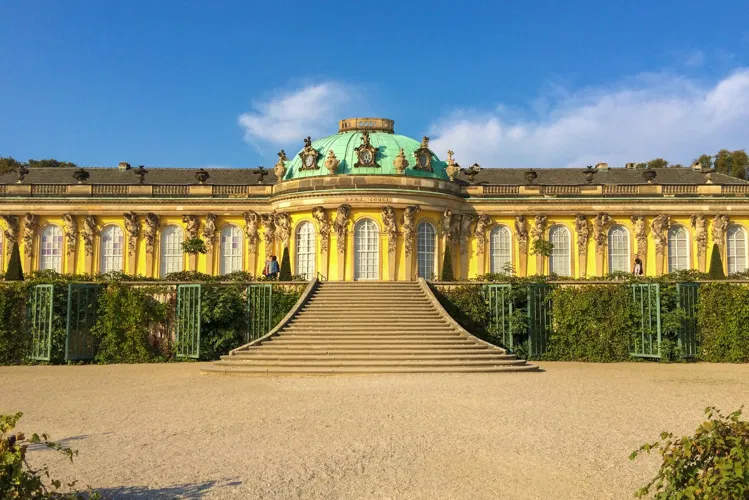
Sanssouci Palace
PotsdamSanssouci, also known as Vanangur, is a summer palace of Frederick II, King of Prussia, located in Potsdam, near Berlin. It is considered the most beautiful rococo palace in Germany and is a landmark of the city of Potsdam. The palace is listed as a UNESCO World Heritage Site and is often referred to as the German version of Versailles.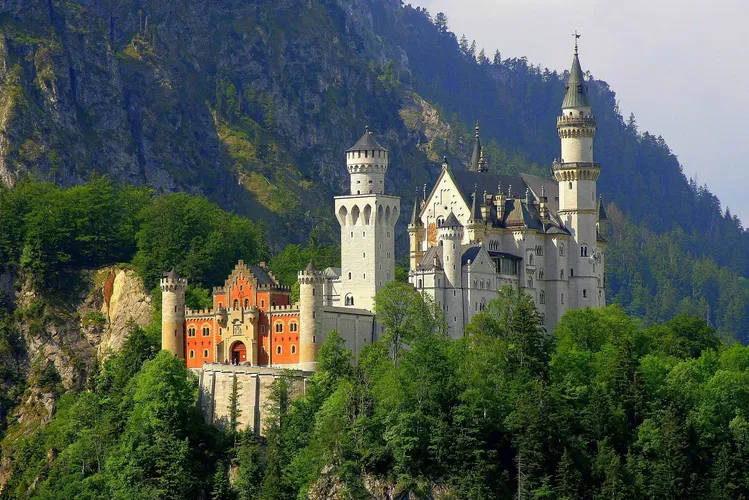
Neuschwanstein Castle
SchwangauNeuschwanstein Castle, a 19th-century palace, is located on a hilltop above the village of Hohenschwangau near Füssen in southwest Bavaria, Germany. The castle was built in a neo-romantic style, which is a revival of medieval architecture. The location of the castle offers a panoramic view of the surrounding landscape, making it a picturesque spot for visitors.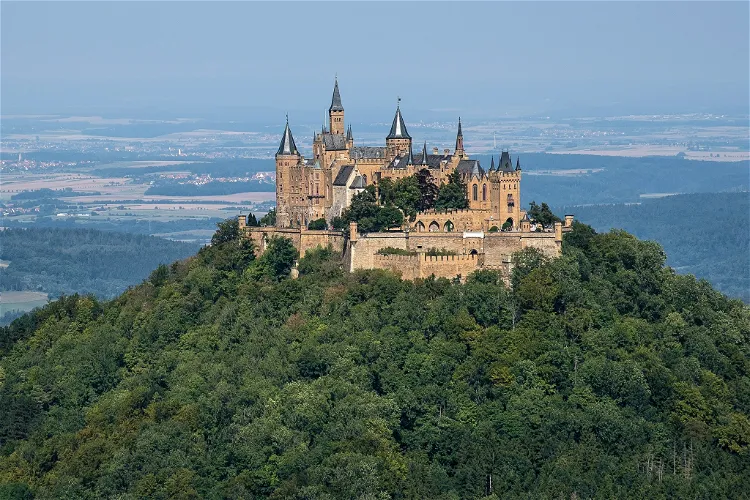
Hohenzollern Castle
ZimmernBurg Hohenzollern, a castle of the princely Hohenzollern family, is situated between the municipalities of Hechingen and Bisingen in Germany. The castle stands on an 855-meter high mountain, colloquially known as Zollernberg or Zoller. This location offers visitors a unique and breathtaking view of the surrounding landscape.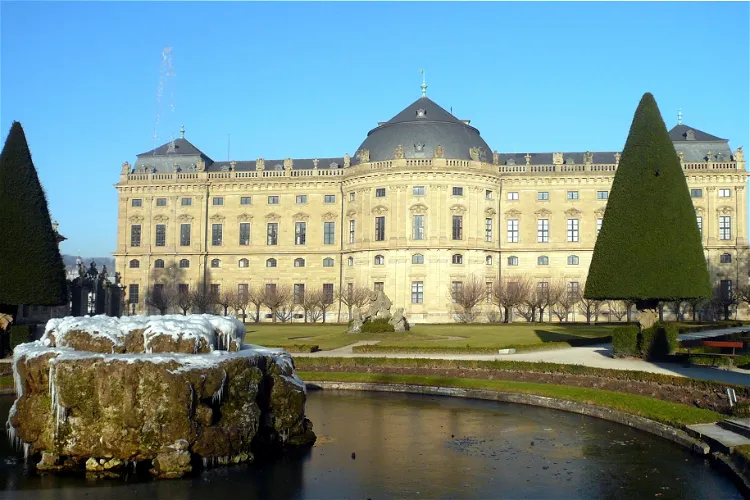
Würzburg Residence
WürzburgThe Würzburg Residence is a former episcopal palace and a combination of rococo and baroque architecture. This historical building, which was built on the orders of the two prince-bishops von Schönborn, is a testament to the architectural prowess of the 18th century. The construction lasted from 1720 to 1744 and was designed by Johann Balthasar Neumann. The late baroque residence is considered one of the most important of its kind.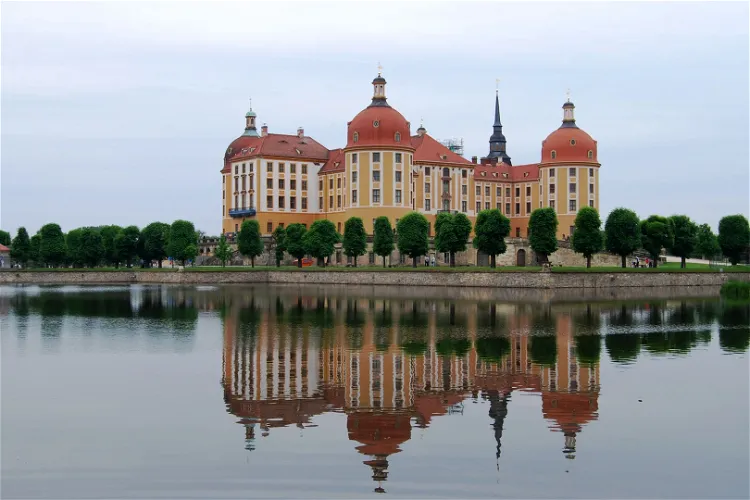
Moritzburg Castle
MoritzburgSchloss Moritzburg, a baroque hunting lodge, is located in the municipality of Moritzburg, near Dresden in the Free State of Saxony, Germany. The castle was built in the 16th century by Elector Moritz of Saxony and was later remodeled by Augustus the Strong. This historical monument is a testament to the architectural prowess of the time and offers a glimpse into the lives of the nobility who once resided here.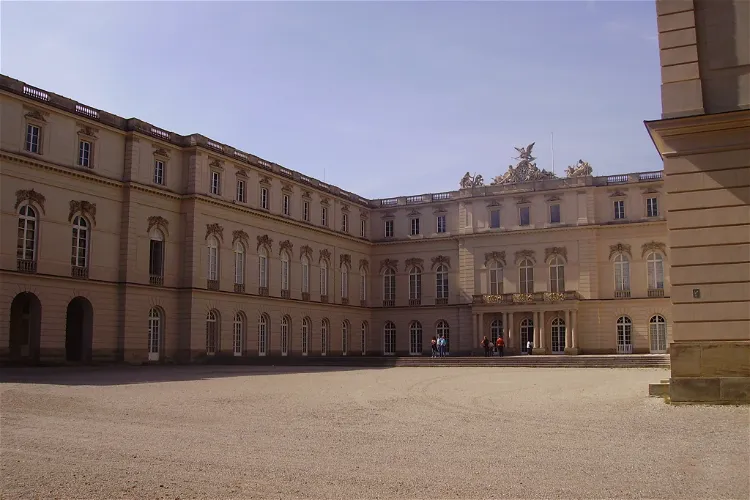
Herrenchiemsee
ChiemseeHerrenchiemsee is a castle located on an island in Lake Chiem, approximately 80 kilometers east of Munich. This grand structure was commissioned by King Louis II of Bavaria, a monarch known for his extravagant architectural projects. The castle's location on an island adds to its allure, offering visitors a unique experience of exploring a historical monument surrounded by the natural beauty of a lake.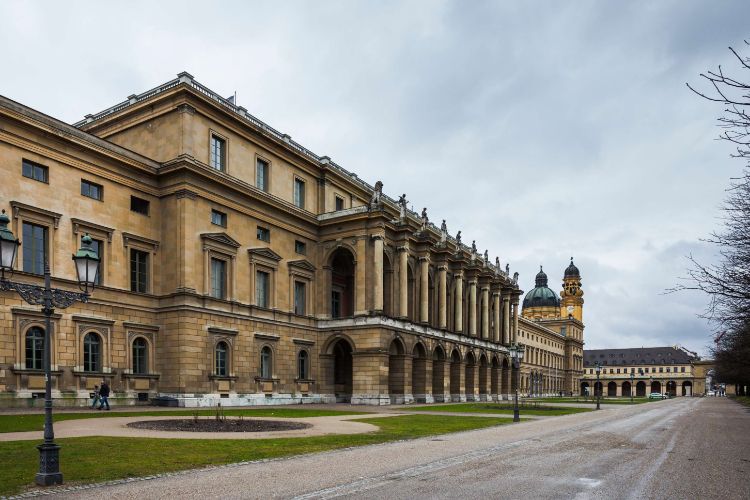
Munich Residence
MunichThe Munich Residence (Münchner Residenz) was a classicist-style city residence in Munich. Bavarian dukes, electors from 1623 and Bavarian kings from 1806 to 1918 stayed here. This complex is Germany's largest palace within city walls and one of Europe's most important museums for room decoration. It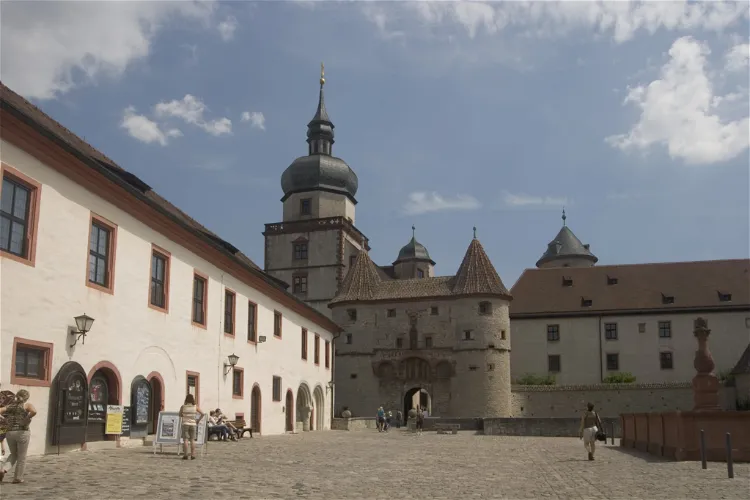
Marienberg Fortress
WürzburgMarienberg Fortress, the oldest structure in the city of Würzburg, Germany, stands on a hill by the Main River. This historic site was once the residence of counts before becoming the seat of prince-bishops. Its strategic location and rich history make it a fascinating destination for tourists interested in history and architecture.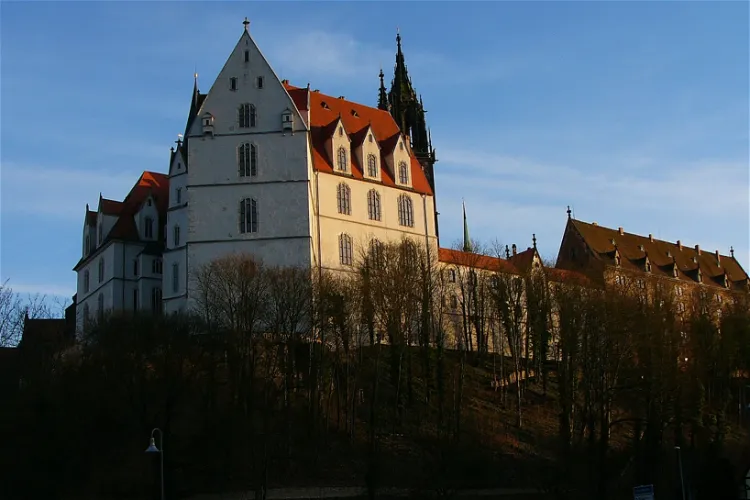
Albrechtsburg Castle
MeissenAlbrechtsburg is a late Gothic castle situated in the heart of Meissen, in the federal state of Saxony, Germany. This historic castle, with its rich history and architectural beauty, offers a unique glimpse into the past. It was built in the late Gothic period and has since been a significant landmark in the city. The castle's location in the city center makes it easily accessible for tourists.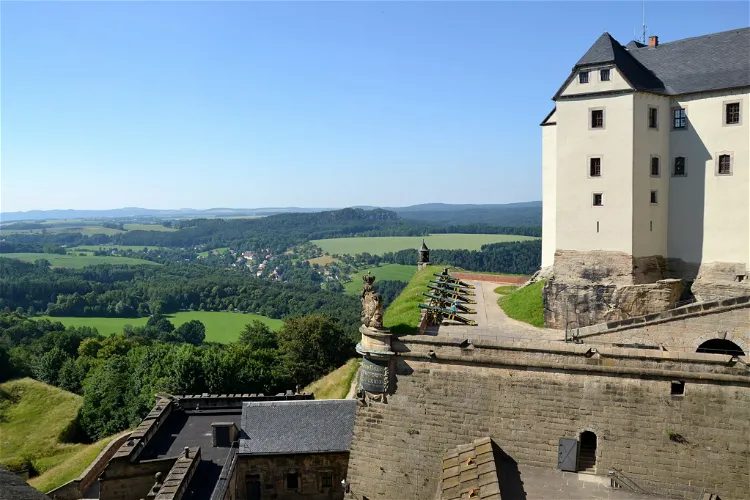
Königstein Fortress
KönigsteinKönigstein Fortress, located in the German state of Saxony, is one of the largest mountain fortresses in Europe. It is situated in Sächsische Schweiz, a part of the Elbe Sandstone Mountains. The fortress is built on a plateau named after it, standing 352 meters above sea level and to the west of the town of Königstein on the left bank of the Elbe in the district of Sächsische Schweiz-Osterzgebirge.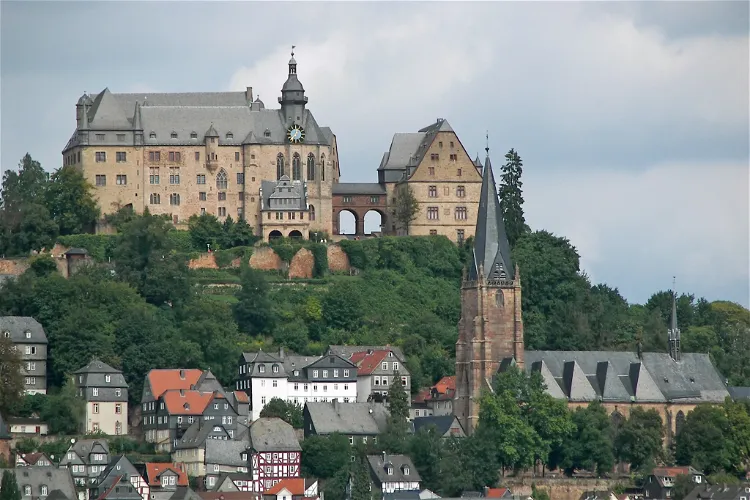
Marburger Schloss
MarburgMarbach Castle, located in the German city of Marburg, is a significant historical site. The city of Marburg originally formed around this fortress, which was constructed in stages starting from the 11th century. This castle has witnessed numerous historical events and changes, making it a fascinating destination for those interested in history and architecture.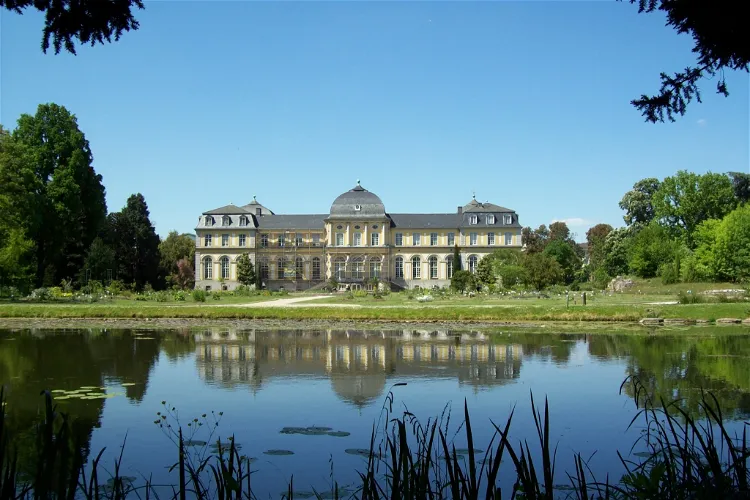
Poppelsdorf Palace
BonnPoppelsdorf Palace, located in the Poppelsdorf district of Bonn, western Germany, is a Baroque building that is now part of the University of Bonn. This historical structure adds a touch of elegance and grandeur to the university campus, making it a point of interest for visitors.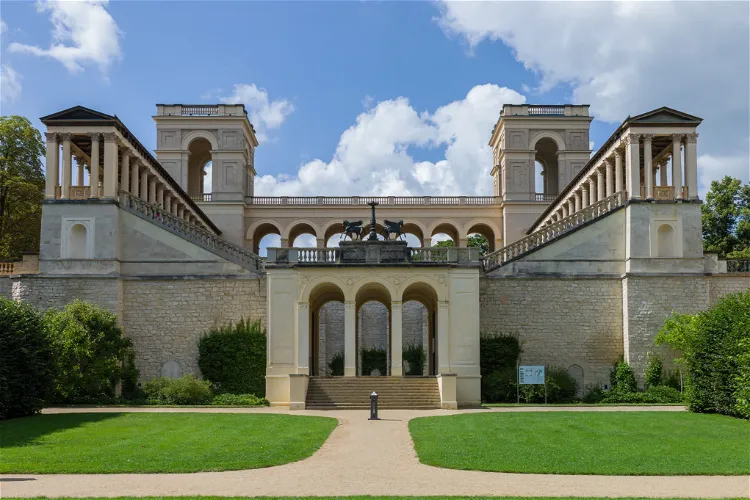
Belvedere on the Pfingstberg
PotsdamThe Belvedere on the Pfingstberg is a palace situated in Potsdam, Germany. It is located north of the New Garden, at the summit of Pfingstberg hill. This location offers a unique vantage point over the surrounding area, making it a popular spot for visitors.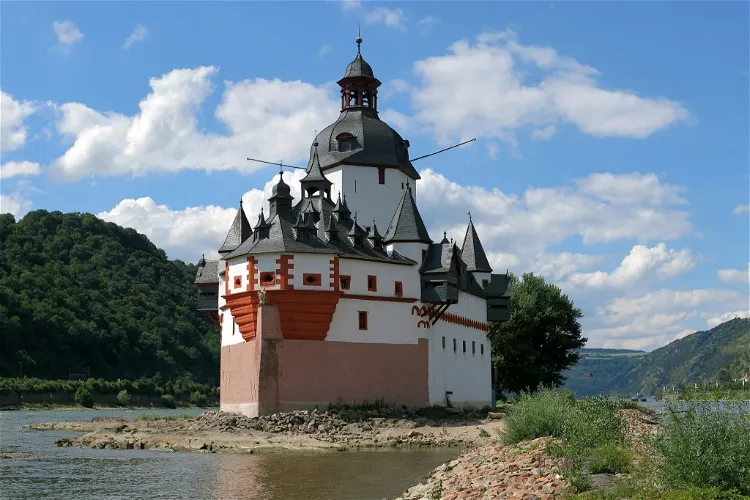
Pfalzgrafenstein Castle
KaubPfalzgrafenstein Castle, also known as 'the Pfalz', is located on Falkenau Island in the River Rhine near Kaub, Germany. This former toll castle is renowned for its unique and picturesque setting. The castle's keep, a pentagonal tower with its point upstream, was built between 1326 and 1327 by King Ludwig the Bavarian. The castle is accessible to the public and can be reached via a ferry service from nearby Kaub, depending on river conditions.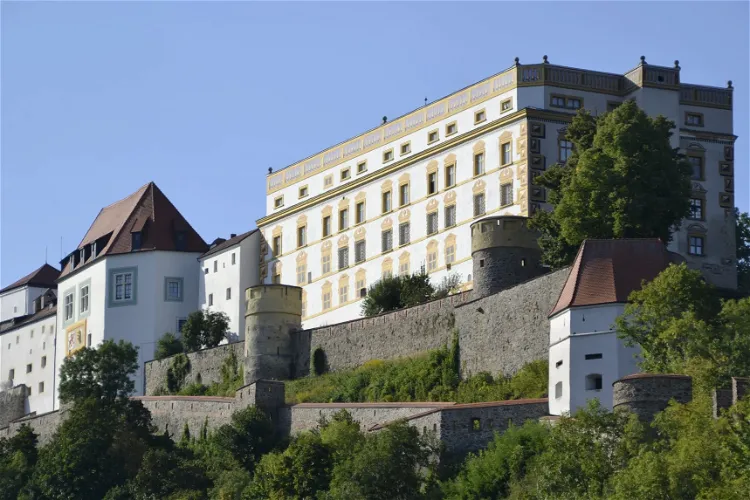
Veste Oberhaus
PassauVeste Oberhaus is a historic castle located on the left side of the Danube River, directly opposite the old town of Passau. The castle was established in 1219 and served as the residence of the prince-bishop of the Hochstift Passau for a significant period of time. This castle is a symbol of the city's rich history and offers a unique insight into the past.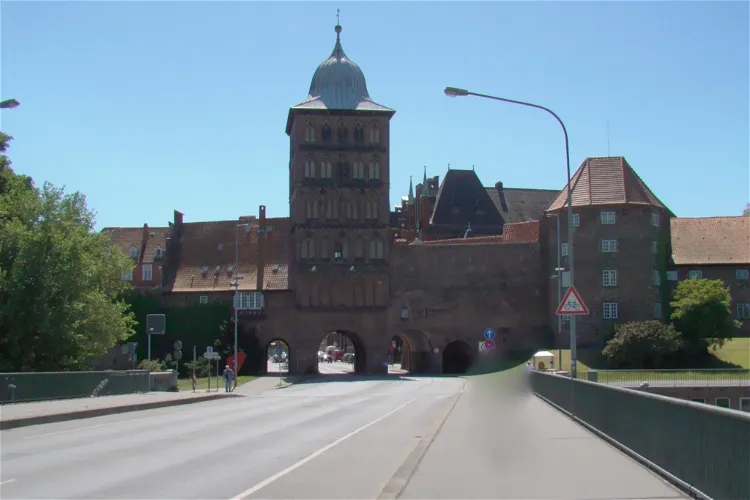
Burgtor
LübeckBurgtor, along with Holstentor, is one of the two medieval city gates that still stand in Lübeck. These gates are a testament to the city's rich history and architectural prowess. They have withstood the test of time and provide a glimpse into the city's past. Tourists visiting Lübeck can explore these gates and learn about their historical significance.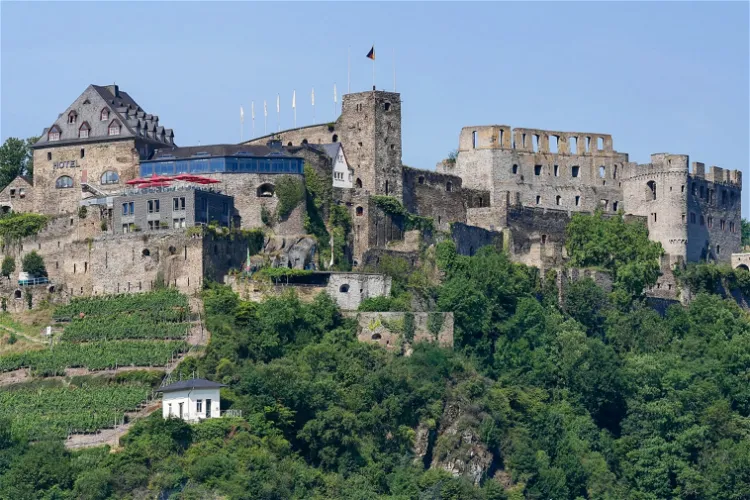
Rheinfels Castle
Sankt GoarRheinfels Castle, located in Sankt Goar, Germany, is a historic castle ruin that dates back to 1245. It was initiated by Count Diether V of Katzenelnbogen and stands majestically above the left bank of the Rhine. This castle offers a glimpse into the rich history of the region and is a significant landmark.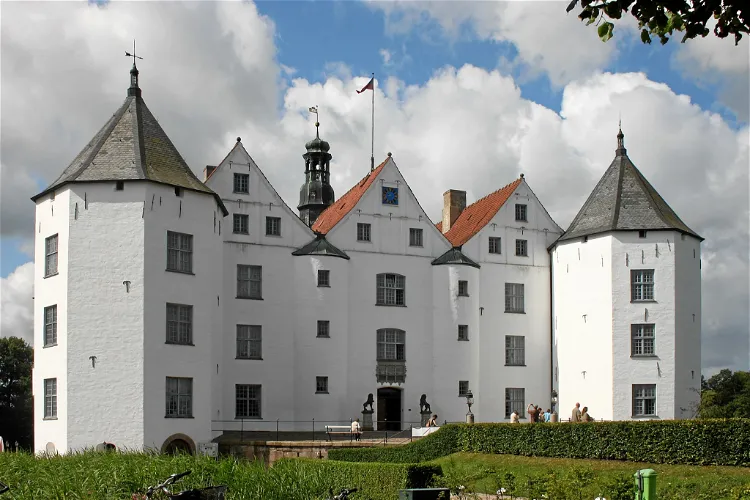
Glücksburg Castle
Glücksburg (Ostsee)Lyksborg Slot, also known as Schloss Glücksburg in German, is a castle located in northern Germany. It was constructed between the years 1582 and 1587 by Hans the Younger, who was the son of Christian 3. This castle is recognized as one of the most significant Renaissance castles in the North.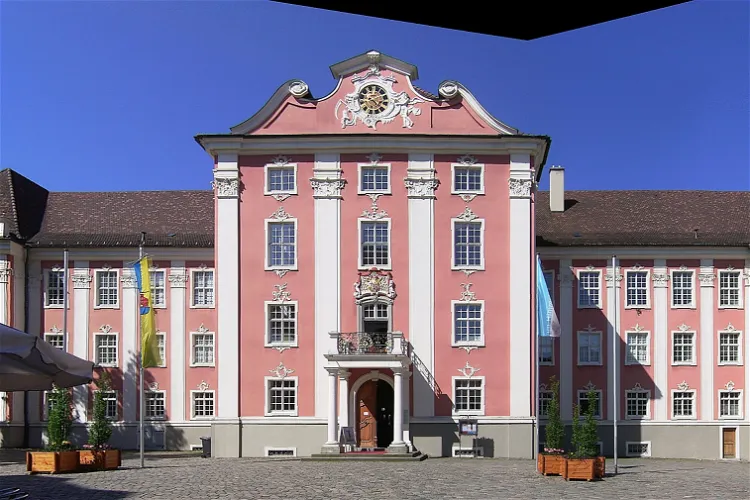
New Castle
MeersburgToday, the Neues Schloss Meersburg houses several museums, providing a diverse range of exhibits for tourists to explore. The Town Gallery (Städtische Galerie) and the Dornier Museum occupy the 2nd floor, while the Palace Museum of the Prince Bishops (Fürstbischöfliche Schlossmuseum) is located on the 3rd floor. The latter offers visitors the chance to view the residential and representation rooms of the prince bishops, refurnished with contemporary appointments from that era.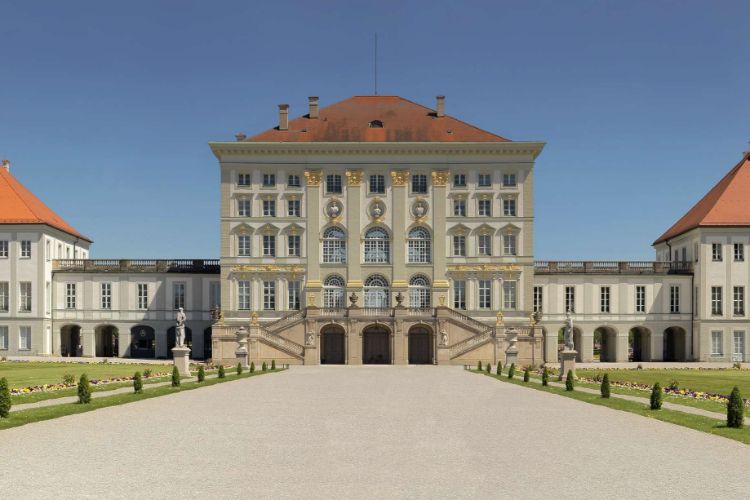
Nymphenburg Palace
MunichDesigned by Agostino Barelli, the name of this palace literally translates as the Castle of the Nymphs. When the Bavarian royalty in the 17th century wanted to take a summer break, they would go to the Nymphenburg Palace. Today, it is open to the public and home to several historical museums. You ca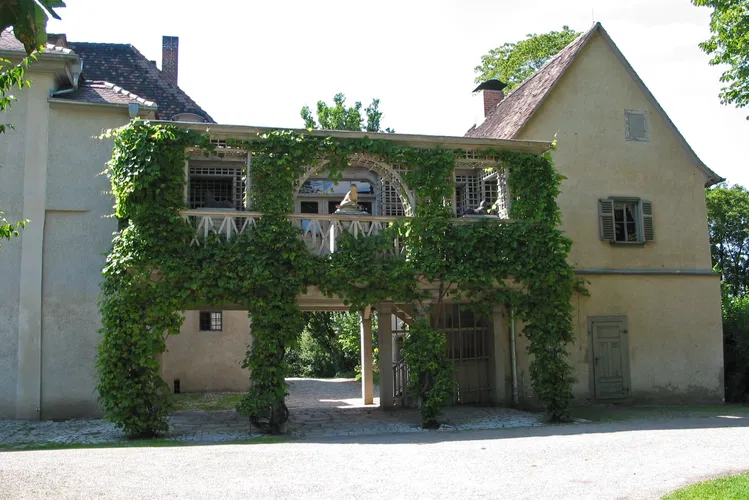
Tiefurt House
WeimarTiefurt Castle is a quaint castle situated on the banks of the Ilm River. It is nestled in the village of Tiefurt, which is approximately four kilometers away from the heart of the city of Weimar. This location makes it a peaceful retreat away from the bustling city center, yet close enough for easy access.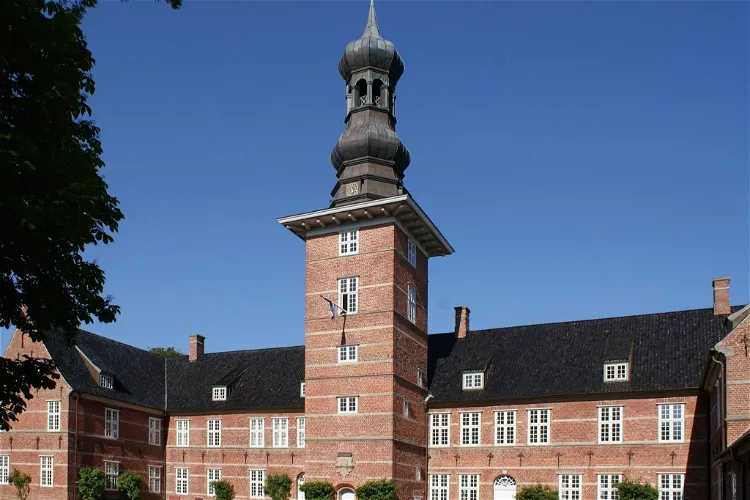
Schloss vor Husum
HusumSchloss vor Husum, also known as Husum Castle, is a historic building that stands as a testament to Dutch Renaissance architecture. Located in the town of Husum, in the Schleswig-Holstein region of northwestern Germany, the castle was constructed between the years 1577 and 1582. The man behind its creation was Duke Adolf von Schleswig-Holstein-Gottorf, who commissioned the building as his temporary residence during his stay on the west coast.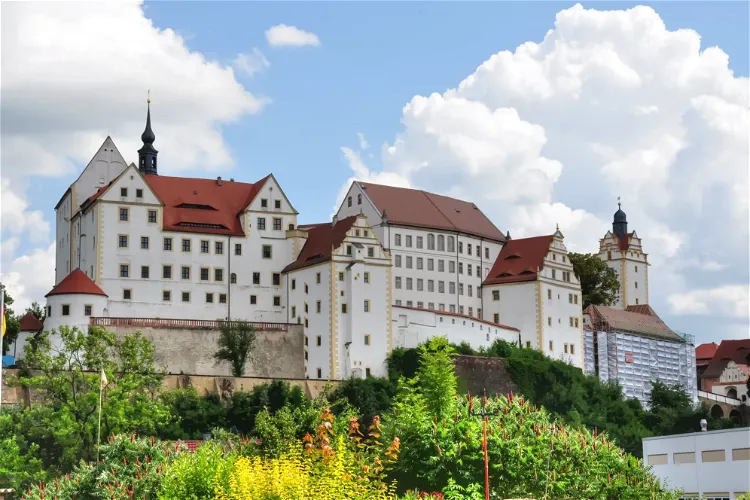
Colditz Castle
ColditzColditz Castle, a historical monument with origins dating back to the 11th century, is situated in the town of Colditz, nestled between Leipzig and Dresden in Saxony. The castle was built under the permission of Emperor Henry IV by Margrave Wiprecht of Groitzsch. It was strategically placed on a hill, providing a commanding view over the left bank of the Mulde river.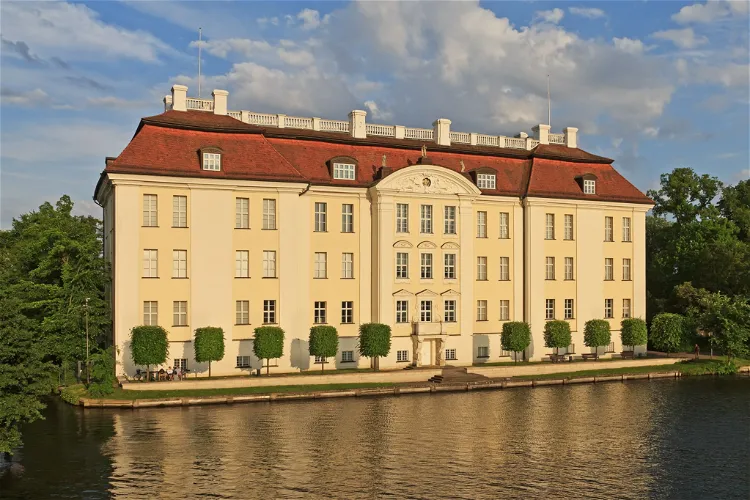
Köpenick Palace
BerlinKöpenick Palace is a unique baroque palace that is surrounded by water. It was built by the Hohenzollern electors of Brandenburg and is located on an island in the Dahme river. This location adds to the charm and beauty of the palace, making it a picturesque spot for visitors.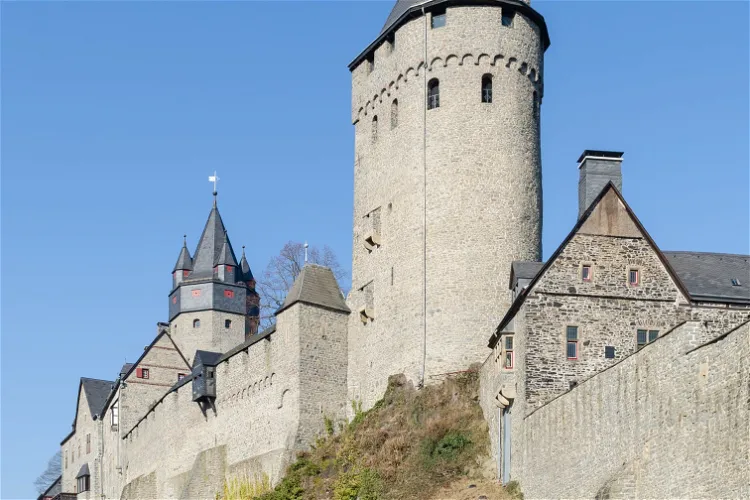
Altena Castle
AltenaAltena Castle is a significant historical site located in the town of Altena in North Rhine-Westphalia. The castle, which is a medieval hill castle, is situated on a spur of Klusenberg hill, near the Lenne in the Märkischer Kreis. This location offers visitors a unique opportunity to explore a piece of history while enjoying the beautiful surrounding landscape.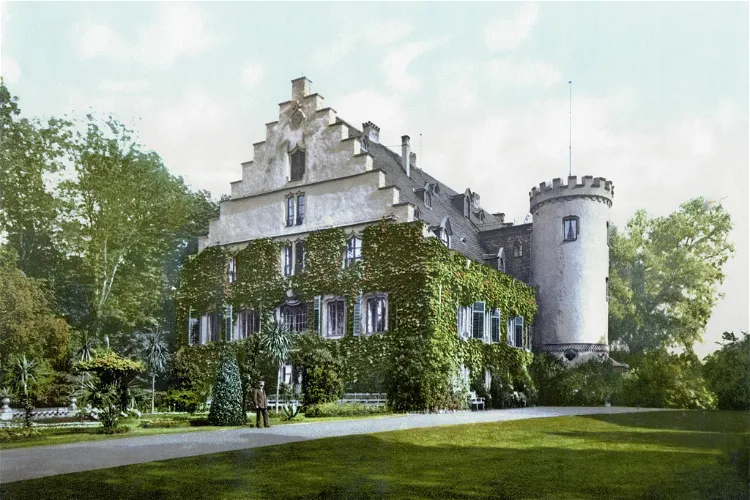
Schloss Rosenau Coburg
RödentalSchloss Rosenau, also known as Palácio Rosenau, is a historical site located between the cities of Coburg and Rödental, in Bavaria, Germany. This former castle, which was later converted into a country house, offers a unique glimpse into the past. Its location makes it easily accessible for tourists visiting either Coburg or Rödental.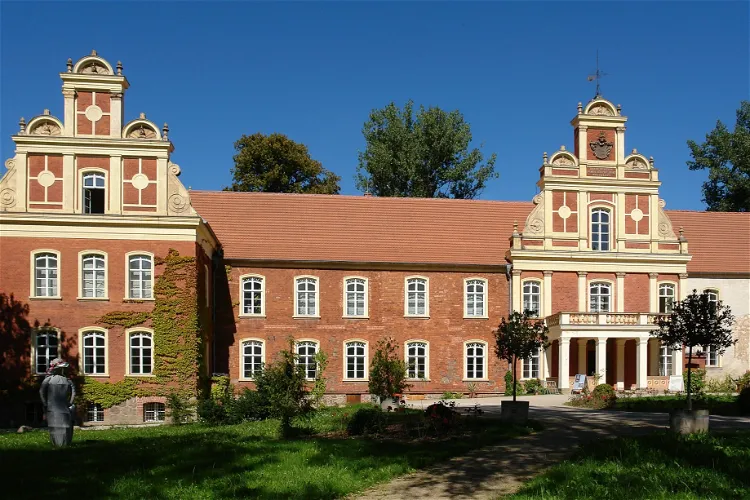
Castle Meyenburg
MeyenburgSchloss Meyenburg, located in the town of Meyenburg in Prignitz, is a former noble seat of the von Rohr family. Today, it is primarily used as a fashion museum. The castle has a rich history dating back to the 14th century when it was owned by the von Rohr family. It remained in their possession until 1945. The building itself is a two-story brick structure with two wings, shaped like an 'L'. It incorporates parts of the medieval city fortification of Meyenburg and dates back to the 15th century, with the rest of the building dating back to the 16th century.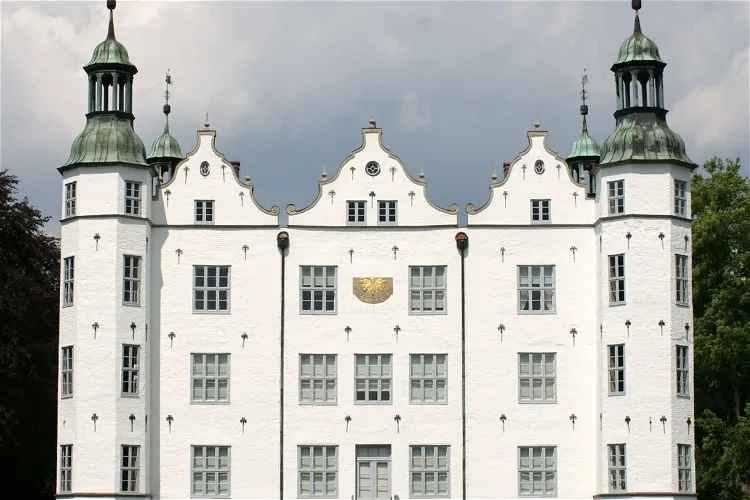
Ahrensburg Palace
AhrensburgSchloss Ahrensburg, also known as Ahrensburg Palace, is a former mansion situated in the southern region of Schleswig-Holstein, Germany. Its location is conveniently close to the city of Hamburg, making it an accessible destination for tourists visiting the area.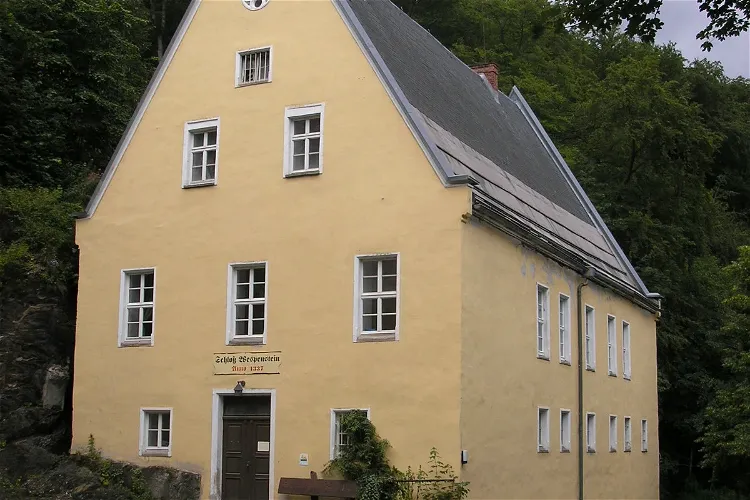
Schloss Wespenstein
GräfenthalSchloss Wespenstein is a historic castle located in the city of Gräfenthal in Thuringia, right on the border with Bavaria. The castle played a significant role in securing the pass section of a medieval army and trade route that stretched from Leipzig via Saalfeld to Nuremberg over the ridge of the Thuringian Slate Mountains. This strategic location underscores the historical importance of the castle.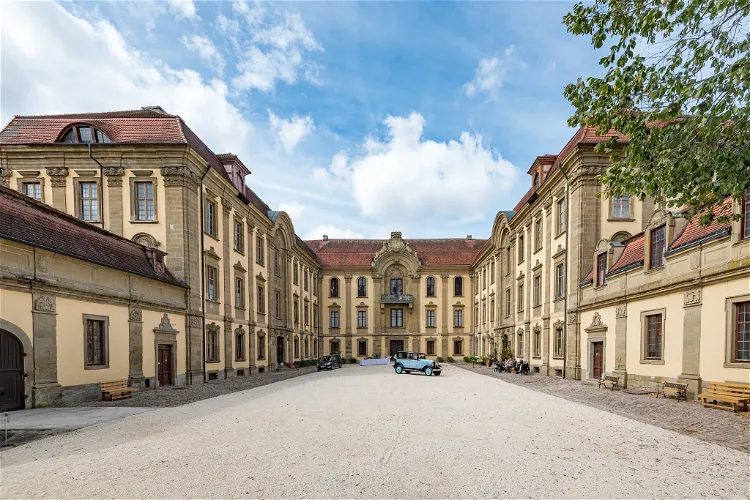
Schloss Schillingsfürst
SchillingsfürstSchloss Schillingsfürst is a castle located in Schillingsfürst near Ansbach in Middle Franconia, Bavaria. It serves as the seat of the old noble family branch Hohenlohe-Schillingsfürst. The castle's history and its connection to the noble family make it a significant site for those interested in history and architecture.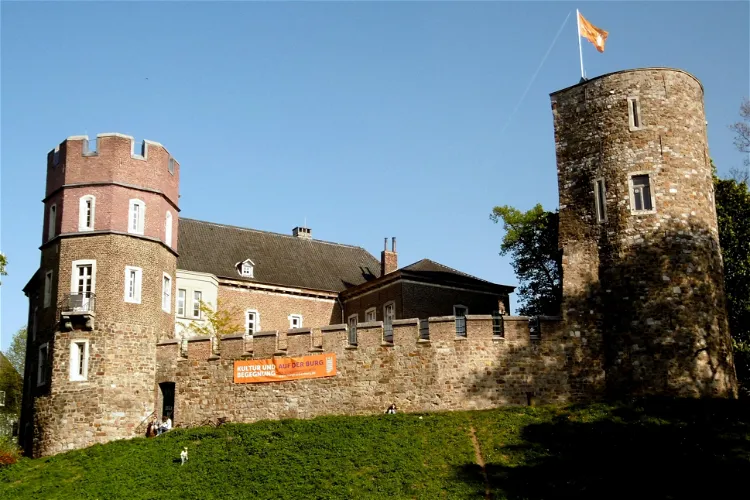
Frankenberg Castle
AachenThe Frankenberg Castle, also known as Burg Frankenberg, is a historical site located in the Frankenberg area of Aachen Mitte, a district of Aachen, Germany. The castle's name originates from the concept of a 'Franke', a type of castle that did not owe fealty to any others. However, shortly after its construction, the castle became a fief of a Graf, equivalent to a Count, and later belonged to the Duchy of Jülich-Cleves-Berg.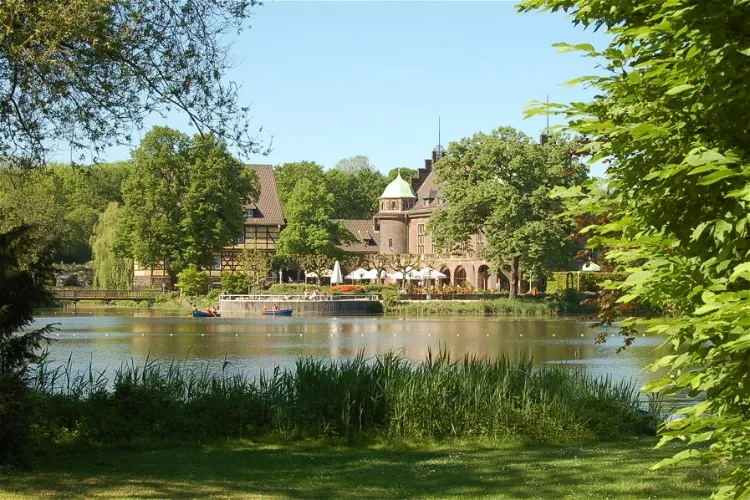
Gladbeck City Museum / Wittringen Castle
GladbeckWittringen Castle, also known as Schloss Wittringen, is a unique architectural marvel located in the state of North Rhine-Westphalia, Germany, near the city of Gladbeck. This fortified castle is surrounded by water, providing a picturesque setting that is sure to captivate any visitor. Its strategic location and historical significance make it a notable point of interest for those exploring the region.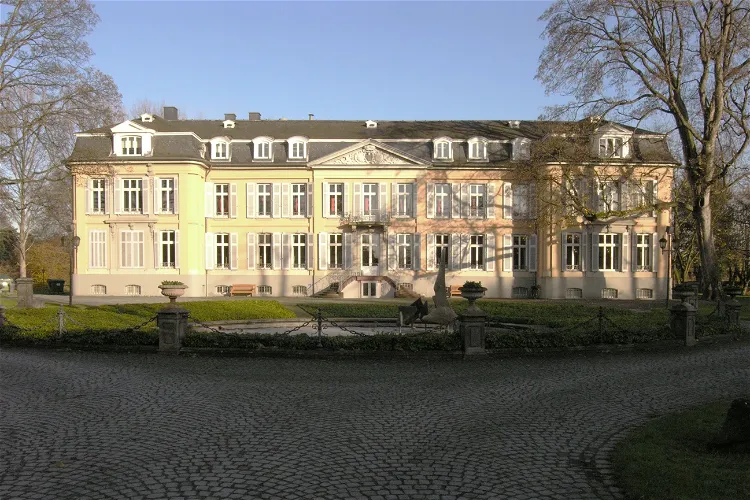
Morsbroich Museum
LeverkusenThe Museum Morsbroich is a contemporary art museum situated in Leverkusen. It was inaugurated in January 1951, making it the first modern art museum in the Federal Republic of Germany after the end of the Second World War.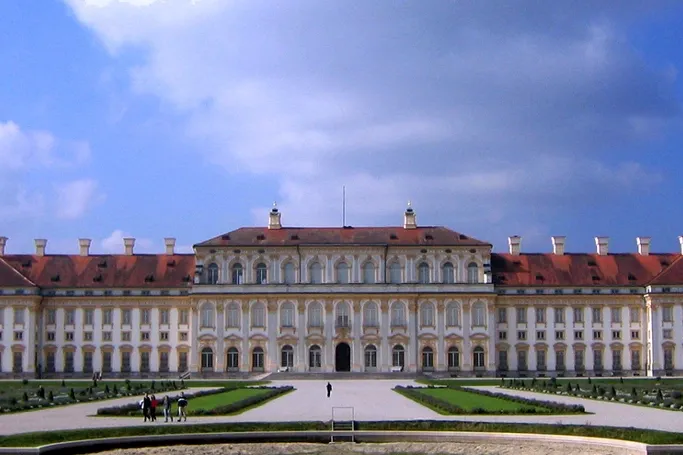
New Schloss Schleißheim
MunichSchleißheim Palace, located in the municipality of Oberschleißheim, north of Munich, is a German palace complex that consists of three palaces. These are the Old Schleißheim Palace and the New Schleißheim Palace, both situated in the western area of the park, and the Lustheim Palace, which is located in the eastern area of the park. Each palace offers a unique glimpse into the history and architecture of the region.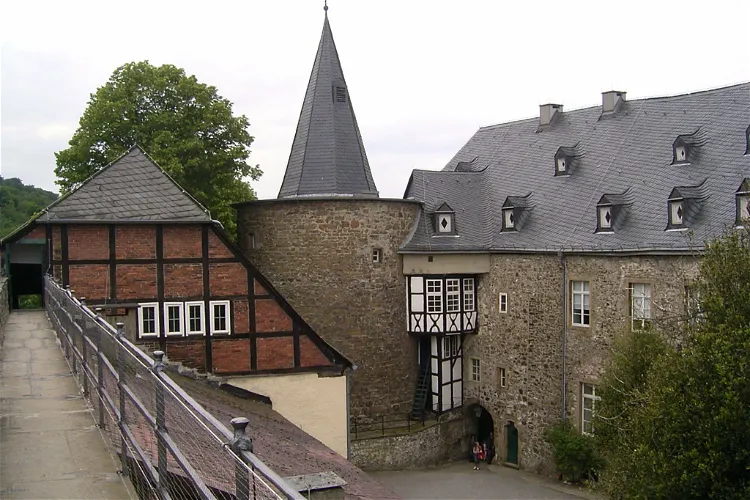
Hohenlimburg Castle
HagenHohenlimburg Castle, located in North Rhine-Westphalia, is a unique historical site as it is the only hilltop castle in Westphalia that has been largely preserved in its medieval original state. This makes it a significant destination for those interested in medieval architecture and history. The castle's location on a hilltop offers picturesque views, earning it the nickname 'Westphalian Heidelberg'.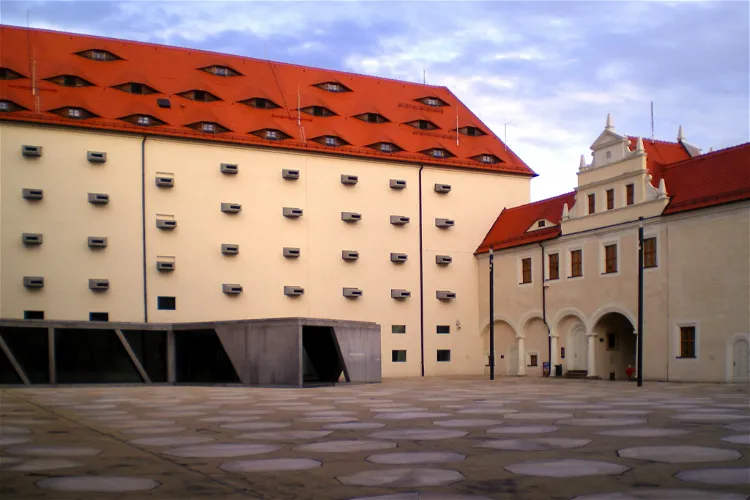
terra mineralia
FreibergTerra Mineralia, located in Freudenstein Castle in Freiberg, is a mineral exhibition that boasts over 3500 exhibits. This makes it one of the largest mineral exhibitions in the world, offering a unique opportunity for visitors to explore a vast collection of minerals, gemstones, and meteorites from around the globe.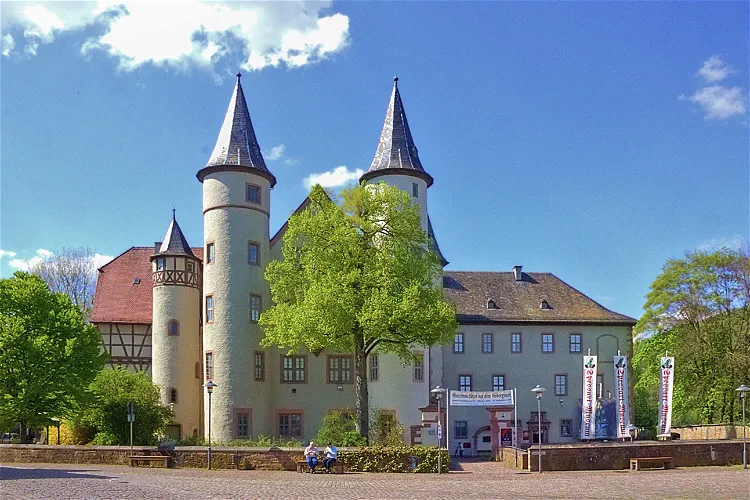
Spessartmuseum
Lohr am MainThe Spessartmuseum, located in Lohr Castle in Lohr am Main, is a place where visitors can delve into the history of the castle and the Spessart region. The museum provides a comprehensive overview of the past, offering a unique insight into the historical context of the area.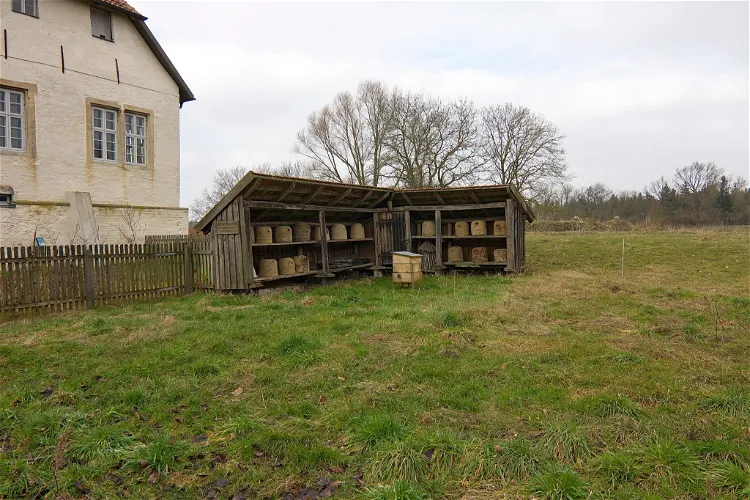
Burg Brome
AltendorfBurg Brome, located in Brome, Lower Saxony, is a partially well-preserved, medieval moated castle. It is considered one of the most significant historical fortifications in the Gifhorn district. The castle's rich history and architectural features make it a fascinating destination for tourists interested in medieval architecture and history.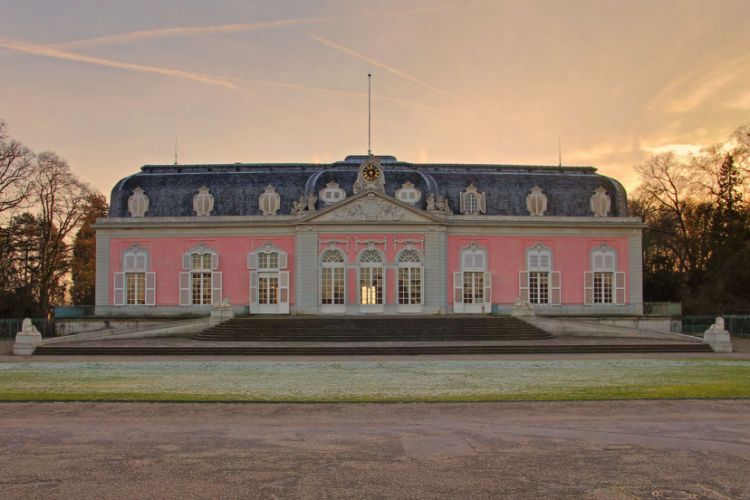
Schloss Benrath
DüsseldorfSchloss Benrath (Benrath Palace) is a Baroque-style maison de plaisance - a pleasure palace - in Benrath, a borough of Düsseldorf. The palace was built for the Elector Palatine Charles Theodor and his wife, Countess Palatine Elisabeth Auguste of Sulzbach.Construction of the palace began in 1755 and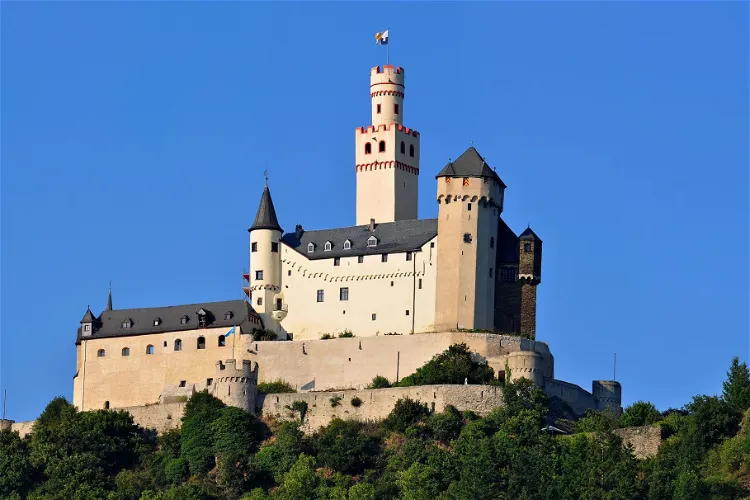
Marksburg
BraubachThe Marksburg is a significant historical site located above the town of Braubach in Rhineland-Palatinate, Germany. It is recognized as one of the main attractions of the Rhine Gorge, a UNESCO World Heritage Site. This castle offers a unique glimpse into the past and is a testament to the rich history of the region.
Langenburg Castle
LangenburgOne of Germany's castle gems. The Renaissance courtyard is simply charming and the automobile museum is also worth a visit.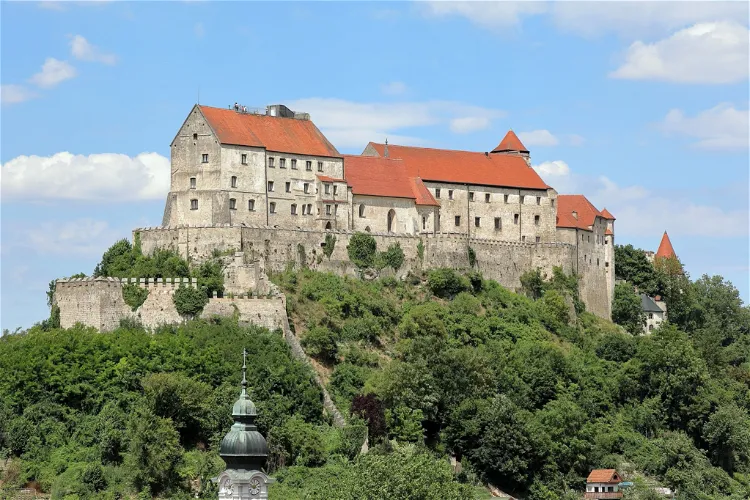
Burghausen Castle
BurghausenBurghausen Castle, located in Upper Bavaria, holds the distinction of being the longest castle complex in the world, a fact confirmed by the Guinness World Record company. This unique feature makes it a notable destination for tourists interested in historical architecture and castles.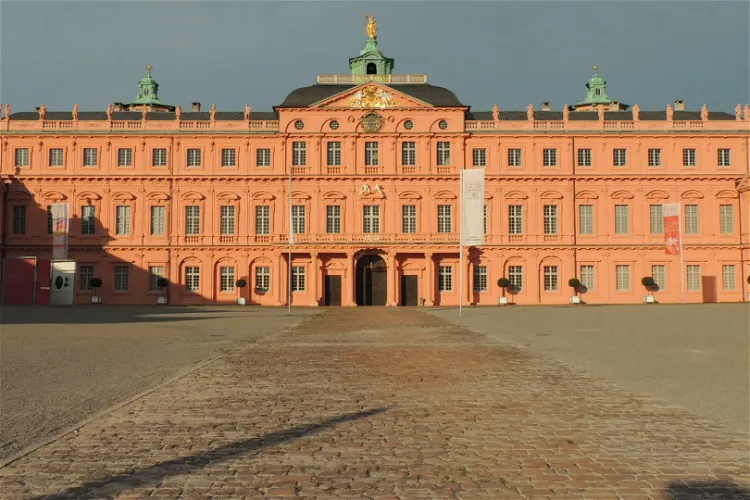
Schloss Rastatt
RastattSchloss Rastatt, situated in Baden, Germany, is a historical site that was once the residence of the Margraves of Baden. The castle was constructed in 1700 by the Italian architect Domenico Egidio Rossi for Margrave Louis William of Baden. This historical context adds to the rich tapestry of the castle's past, making it a fascinating destination for those interested in history and architecture.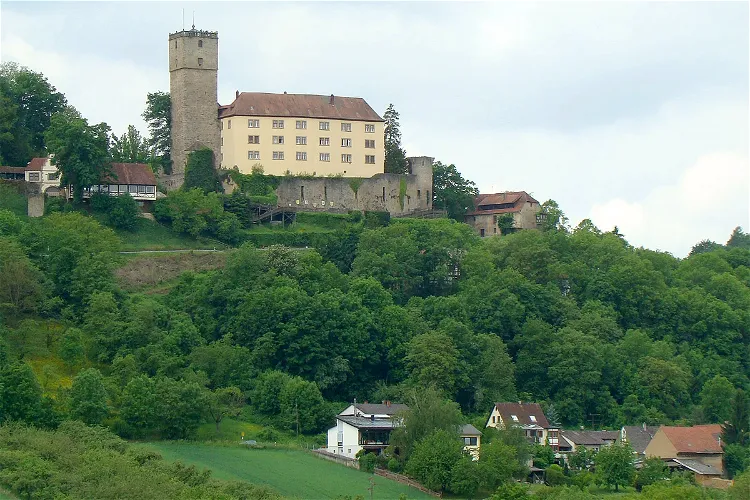
Burg Guttenberg Haßmersheim
NeckarmühlbachBurg Guttenberg is a late medieval castle situated above Neckarmühlbach, a district of Haßmersheim in the Neckar-Odenwald district in Baden-Württemberg. The castle has never been destroyed and has been continuously inhabited for almost 800 years. Since the mid-15th century, it has been occupied by the Gemmingen-Guttenberg line of the Barons of Gemmingen.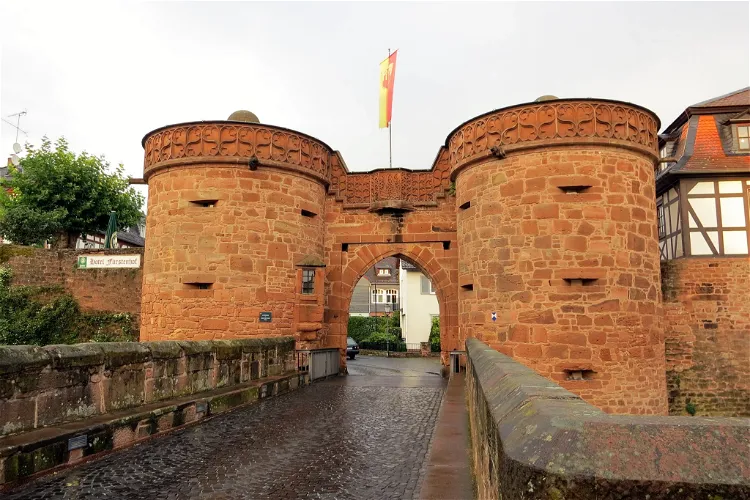
Sandrosenmuseum
BüdingenThe Untertor, also known as the Jerusalemer Tor or Kreuztor, is a medieval double tower gate that forms the western entrance to the historic old town of Büdingen in Hessen, Germany. This prominent structure is a symbol of the city and is considered a protected cultural asset under the Hague Convention for the Protection of Cultural Property in the Event of Armed Conflict. The gate is notable for its fish bladder tracery and lion-shaped water spouts.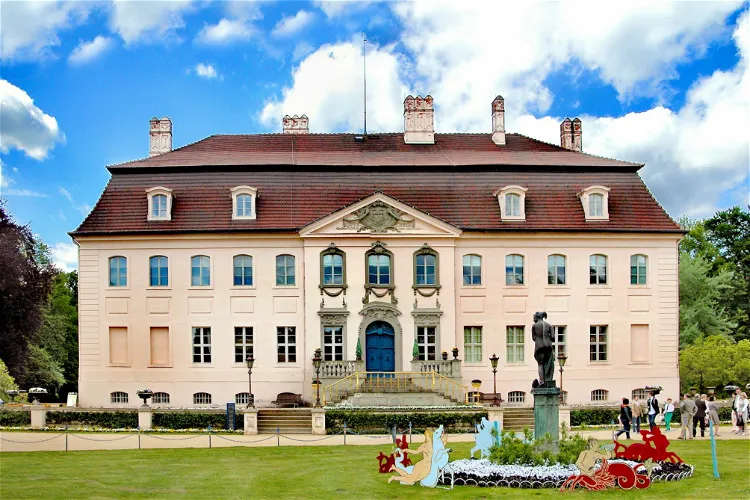
Branitz Palace - Stiftung Fürst-Pückler-Museum
CottbusBranitz Palace, located in Cottbus, Brandenburg, is a baroque palace featuring interiors designed by Prince Hermann von Pückler-Muskau. The palace was constructed in the 1770s, and most of its furnishings date back to around 1860. This historical site offers visitors a glimpse into the past, showcasing the architectural and interior design styles of the period.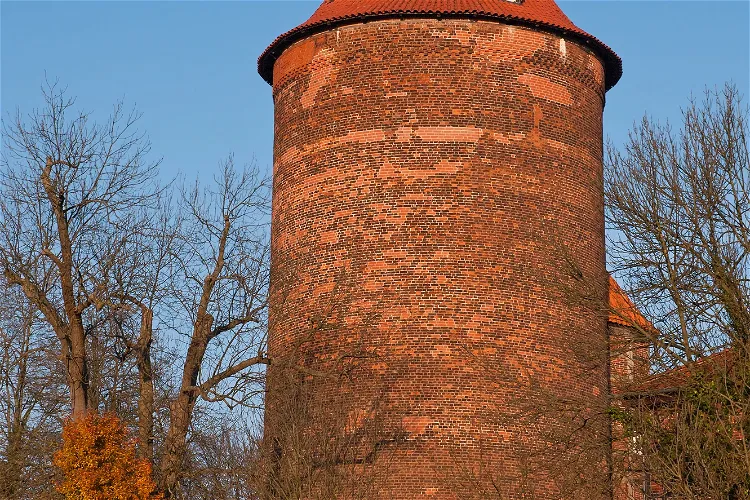
Museum im Waldemarturm Dannenberg
DannenbergThe Waldemarturm, located on the Amtsberg in Dannenberg (Elbe), is a former keep and the only remaining part of a medieval castle and the later Dannenberg Castle. This historical structure offers a glimpse into the past and provides a unique perspective on the region's history.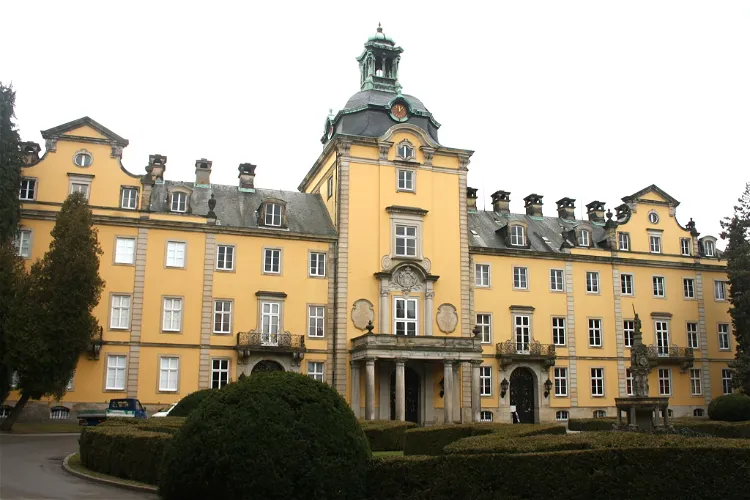
Schloss Bückeburg
BückeburgVisitors can explore Schloss Bückeburg through pre-booked tours. These tours offer a comprehensive experience of the castle, including themed tours that may include a visit to the mausoleum, a meal at the castle restaurant, or horse riding demonstrations. This provides a unique opportunity to delve into the history and culture of the castle and its surroundings.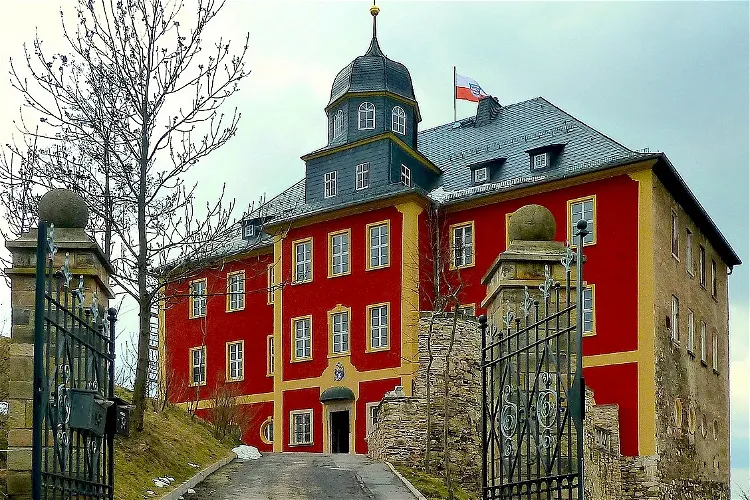
Schloss Brandenstein
RanisSchloss Brandenstein, also known as Burg Brandenstein, is a historic castle located in the Brandenstein district of the city of Ranis in the Saale-Orla district in Thuringia. The castle is situated on a Zechstein reef, a unique geological feature that adds to the charm and historical significance of the site.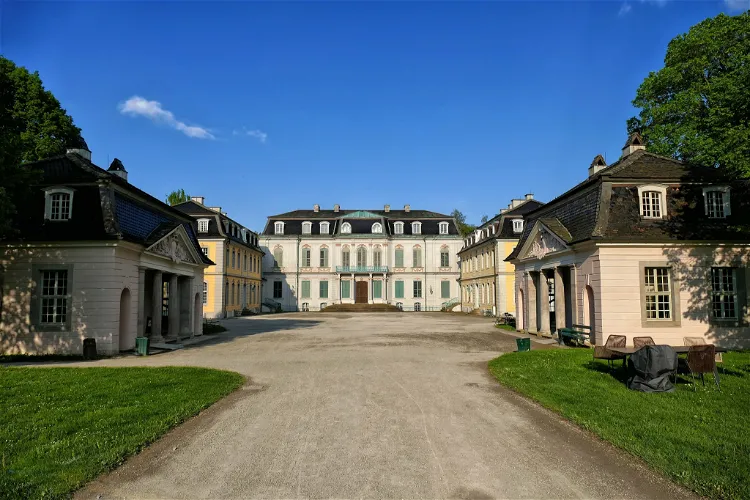
Schloss Wilhelmsthal
CaldenVisitors can explore the castle building as part of daily tours. The park, which has been part of the European Garden Heritage Network since 2009, is freely accessible all year round until dusk. This offers a great opportunity to enjoy the beautiful surroundings and the historical architecture of the castle.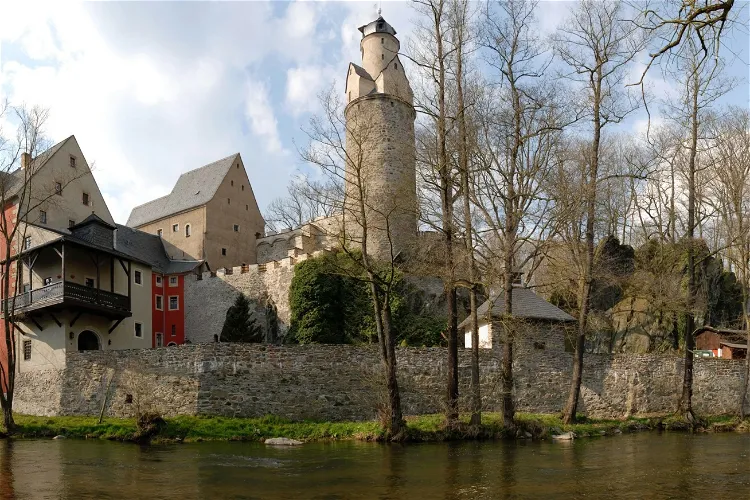
Stein Castle
HartensteinStein Castle, also known as Burg Stein or Burg und Schloss Stein, is a historic Saxon castle situated in the village of Stein, within the municipality of Hartenstein. The castle is located southeast of Zwickau, on the rocky banks of the Zwickauer Mulde, in the eastern German state of Saxony. This location offers visitors a unique blend of natural beauty and historical significance.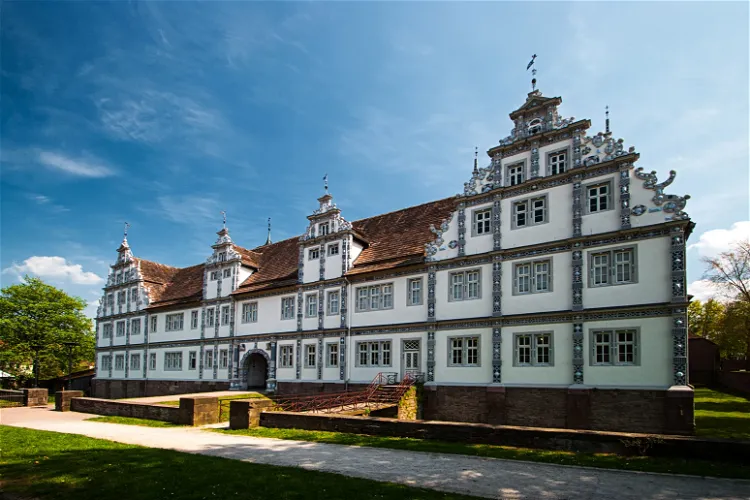
Bevern Castle
BevernBevern Castle, situated in the southern part of the Holzminden district in Lower Saxony, is a significant architectural monument of the Weser Renaissance. The castle was constructed between 1603 and 1612 by Statius von Münchhausen, replacing an old manor that previously occupied the site.
Burghausen Castle
BurghausenBurghausen Castle, located in Burghausen, Upper Bavaria, holds the distinction of being the longest castle complex in the world, measuring 1051 meters. This record has been officially confirmed by the Guinness World Record company. The castle's impressive length and historical significance make it a unique destination for visitors.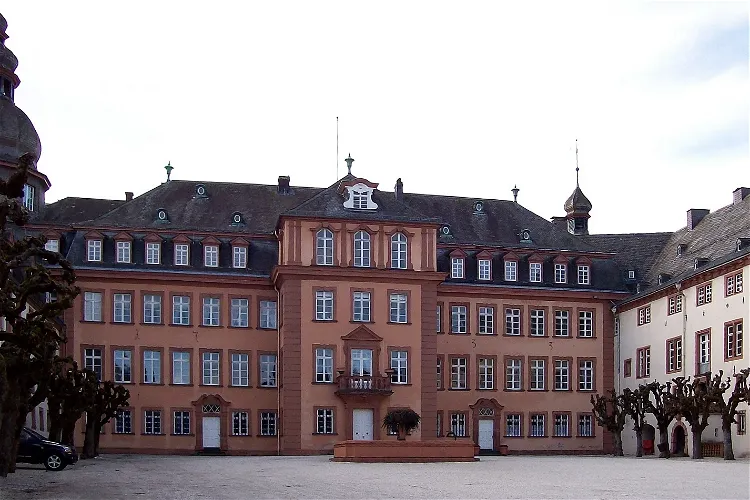
Schloss Berleburg
Bad BerleburgSchloss Berleburg, situated in the rural town of Bad Berleburg in Germany, is the official residence of the Princes of Sayn-Wittgenstein-Berleburg. This historic castle, with a history spanning over 600 years, is currently occupied by Gustav, the 7th Prince of Sayn-Wittgenstein-Berleburg. The castle's rich history and its royal residents make it a fascinating destination for tourists interested in history and royalty.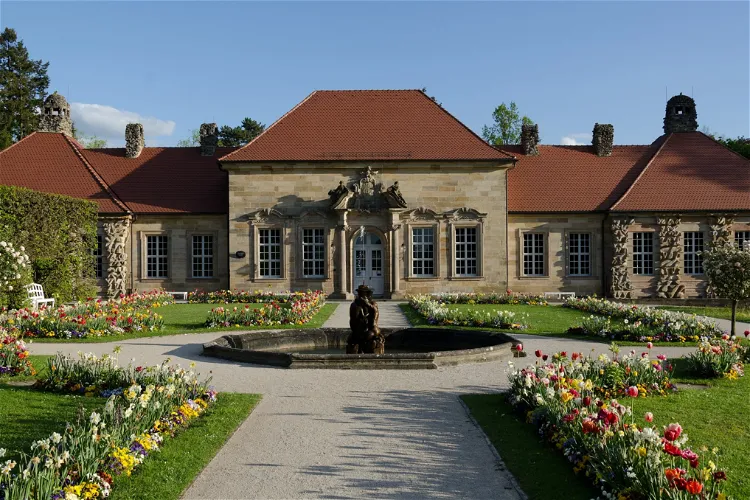
Old palace, Eremitage
BayreuthThe Old Palace, or 'das alte Schloß' as it is known in German, is a historic site located within the Hermitage Park in the city of Bayreuth. This palace is one of two castles within the park and is a significant part of the city's history. It's important to note that this Old Palace should not be confused with another Old Palace located in the city center.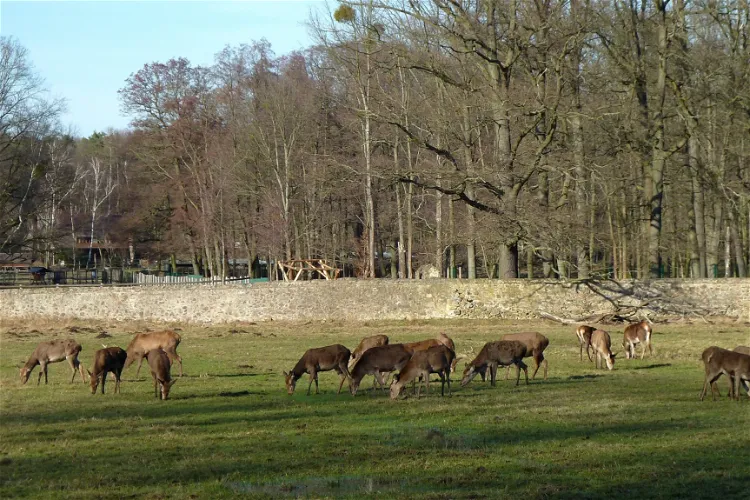
Wildgehege Moritzburg
MoritzburgThe Wildgehege Moritzburg is a wildlife park that spans approximately 40 hectares. It is situated in the Saxon municipality of Moritzburg, about ten kilometers north of Dresden, near the Moritzburg Castle. As a historical hunting enclosure, it is part of the overall Moritzburg ensemble. The park is home to various native wildlife species, with a focus on the historical development of the wildlife park. The significance of hunting, forestry, and nature conservation and their impact on the forest ecosystem are presented.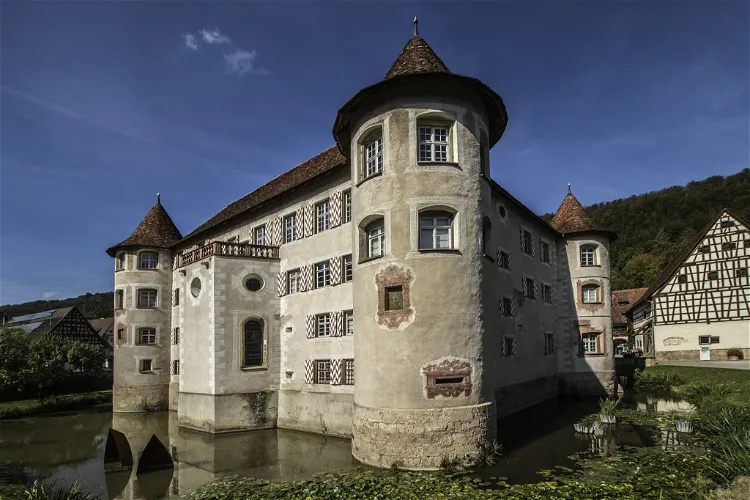
Wasserschloss Glatt
Sulz am NeckarWasserschloss Glatt is a historic site located in the village of Glatt, a district of Sulz am Neckar in the valley of Glatt, Rottweil district, Baden-Württemberg. It is recognized as one of the oldest Renaissance castles in southern Germany and is among the few preserved moated castles in the state of Baden-Württemberg. This makes it a significant landmark for those interested in history and architecture.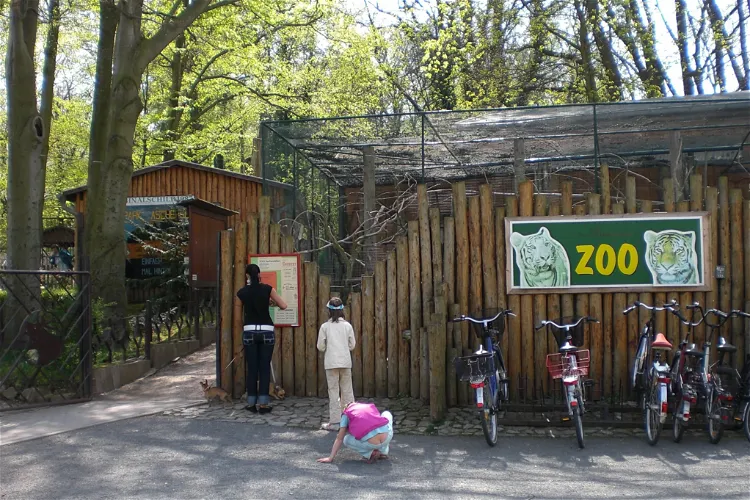
Zoo Aschersleben
AscherslebenThe Zoo Aschersleben is a popular destination located in the southwest of the city Aschersleben in Saxony-Anhalt. It attracts approximately 100,000 visitors each year, making it a frequented spot for both locals and tourists alike. The zoo offers a unique blend of natural beauty and diverse wildlife, providing an engaging and educational experience for all ages.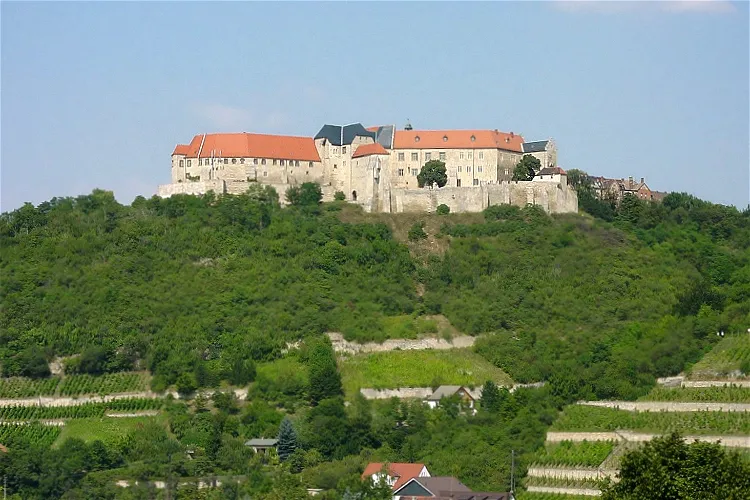
Neuenburg Castle
Freyburg (Unstrut)Neuenburg Castle is a prominent hilltop castle that offers a panoramic view of Freyburg, a charming town in the state of Saxony-Anhalt, Germany. Its elevated position not only provides a strategic advantage but also offers visitors a unique perspective of the surrounding landscape.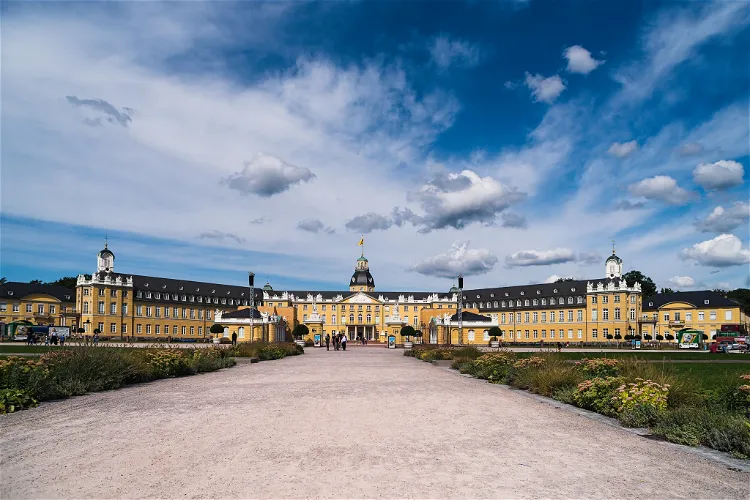
State Museum of Baden
KarlsruheThe Badisches Landesmuseum, or the Baden State Museum, is a significant historical and artistic institution in Baden-Wurttemberg. Established in 1919, the museum has been housed within the castle in Karlsruhe since 1921. This location adds a unique historical charm to the museum, making it a fascinating destination for tourists interested in history, art, and architecture.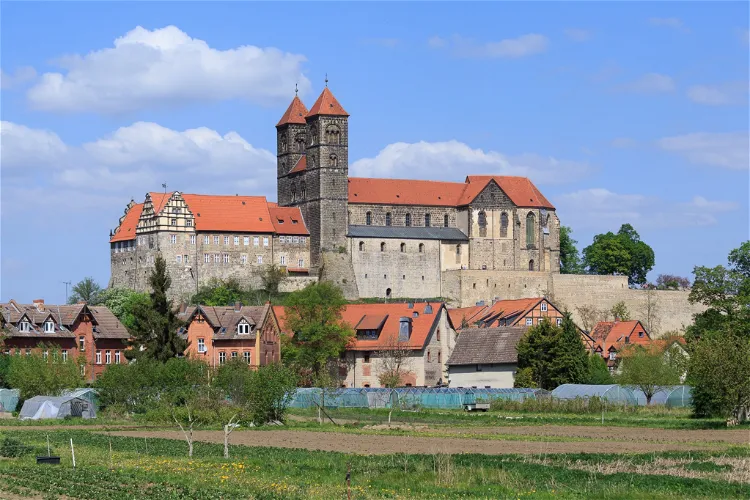
Stiftskirche St. Servaii Domschatz Quedlinburg
QuedlinburgThe Stiftskirche St. Servatius, also known as the Quedlinburg Cathedral, is a Protestant religious building located in Quedlinburg, Germany. This historic structure is a significant part of the city's cultural and religious heritage.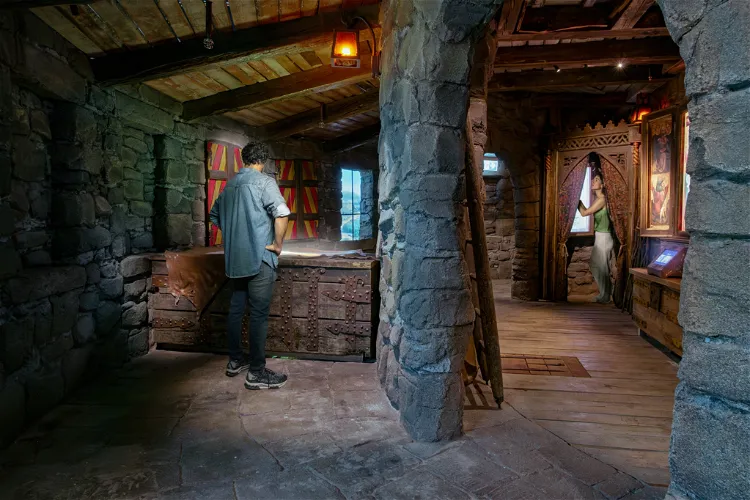
Deutschlandmuseum
BerlinThe immersive history experience! Travel through 2000 years of German history: sneak round a castle, operate Gutenberg’s printing press, dance in the roaring 20s and see the ruins of Berlin after WW2. Finish in the 1990s on a Berlin S-Bahn. THEA Award Winner 2024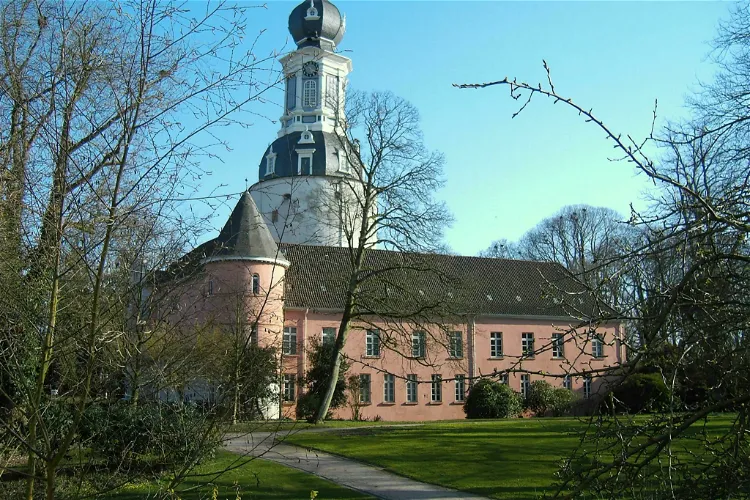
Schlossmuseum Jever
JeverThe Schlossmuseum Jever, situated in the town of Jever, is a cultural and historical museum that provides insights into the history of Jever Castle. It also houses collections that shed light on the cultural and regional history of Jeverland. This museum is a great place for tourists who are interested in learning about the rich history and culture of this region.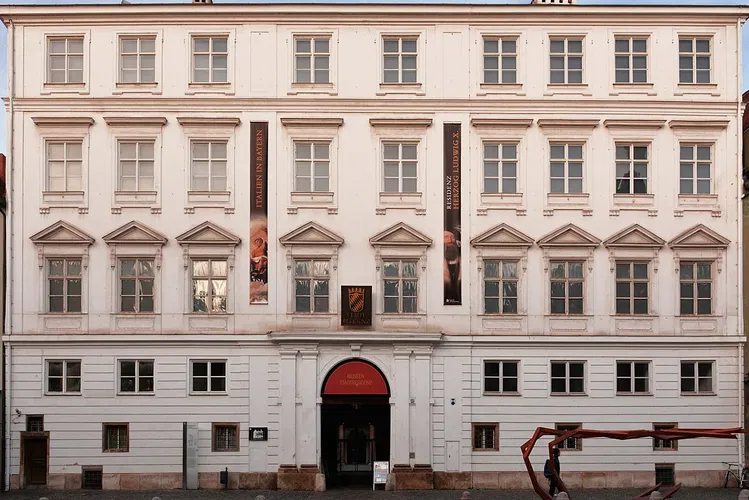
Landshut Residence
LandshutThe Stadtresidenz Landshut is a palace that was constructed in the heart of Landshut's old town under the reign of Duke Ludwig X between the years 1536 and 1543. After its construction, it was used by various nobles for residential purposes. This historical building offers a glimpse into the architectural style and living conditions of the nobility during the Renaissance period.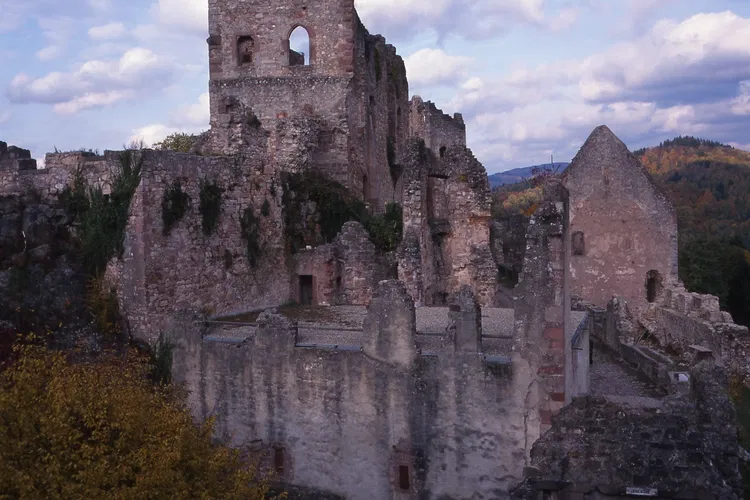
Hochburg
Emmendingen (Kernstadt)The Hochburg, also known as the 'high castle', is a historical castle ruin located between the city of Emmendingen and the village of Sexau in the Baden region of southwest Germany. This strategic location offers visitors a unique opportunity to explore the rich history of the region while enjoying the scenic beauty of the surrounding landscape.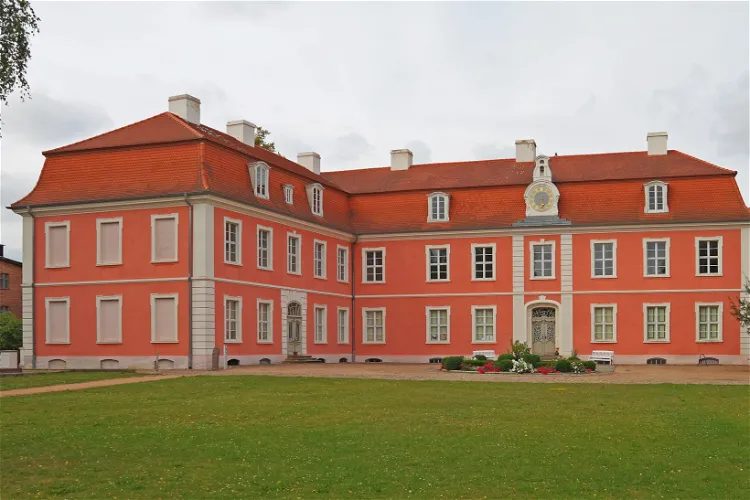
Schloss Museum Wolfshagen
Groß Pankow (Prignitz)Schloss Wolfshagen is situated in the district of the same name, within the municipality of Groß Pankow. It is approximately eight kilometers west of Pritzwalk in the northwest of Brandenburg. The castle is located on the Stepenitz, about four kilometers away from the B 189.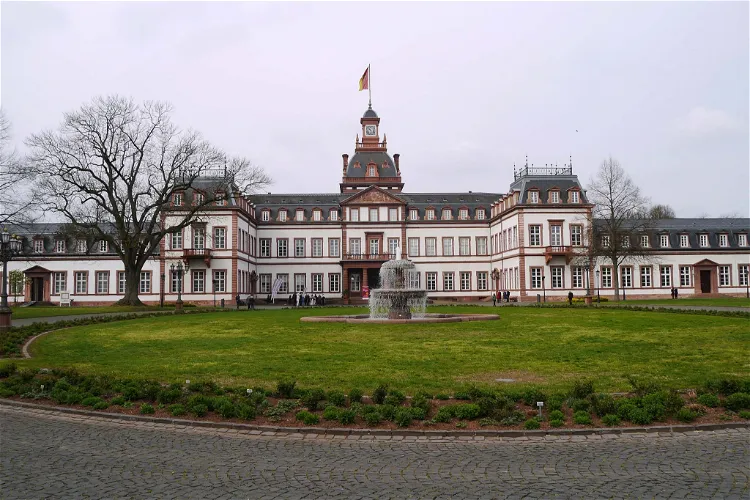
Grimm's Fairy Tale Empire
HanauGrimmsMärchenReich is a museum located in the city of Hanau, which is known as the birthplace of the famous fairy tale collectors, the Brothers Grimm. This museum is dedicated to the life and works of these renowned figures, offering a unique insight into their world and the fairy tales they collected.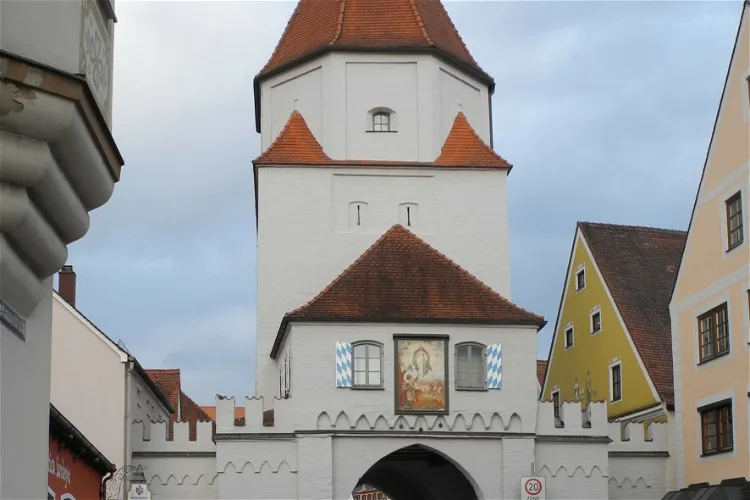
Wittelsbacher Museum
AichachThe Wittelsbacher Museum, previously known as the Wittelsbachermuseum Aichach, is an archaeological museum situated in the Swabian town of Aichach on the Paar in the district of Aichach-Friedberg. This museum is a significant destination for those interested in archaeology and the history of the region.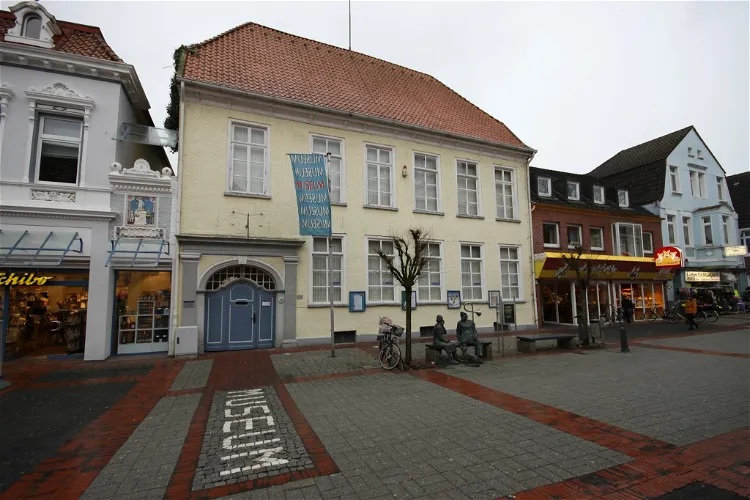
Aurich History Museum
Landkreis AurichThe Historical Museum of Aurich is situated in the East Frisian county town of Aurich. It is housed in a historical building known as the Old Chancellery. The museum is a part of the Ostfriesland Museum Association, a network of museums in the region that work together to promote and preserve the history and culture of East Frisia.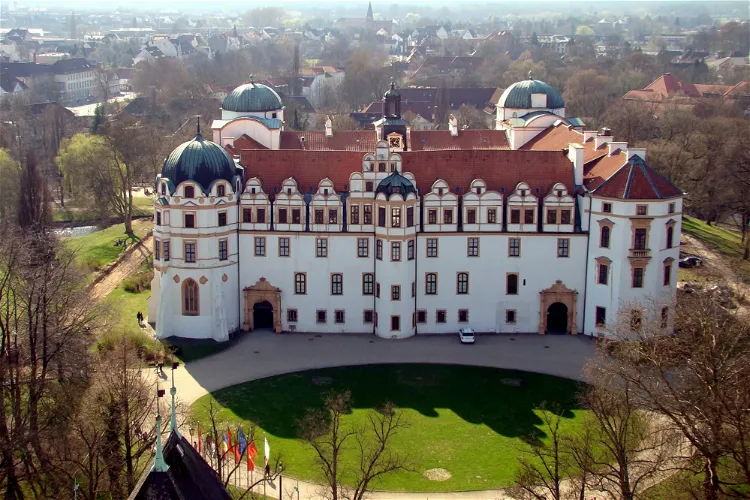
Residence Museum in Celle Castle
CelleThe Residenzmuseum is located within the historical rooms of Celle Castle, which have been transformed into a museum. This offers visitors a unique opportunity to explore the castle's rich history and architectural beauty.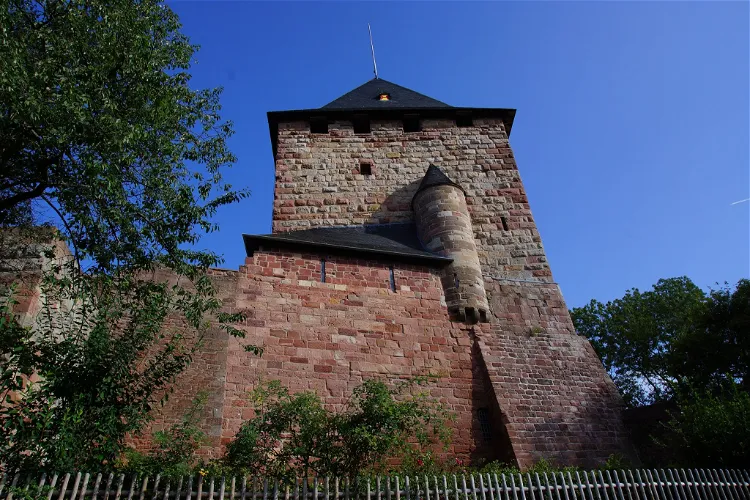
Castle Museum Nideggen
NideggenThe Castle Museum Nideggen is situated within the historic Nideggen Castle in the Düren district of North Rhine-Westphalia. This location provides a unique setting for the museum, enhancing the historical experience for visitors.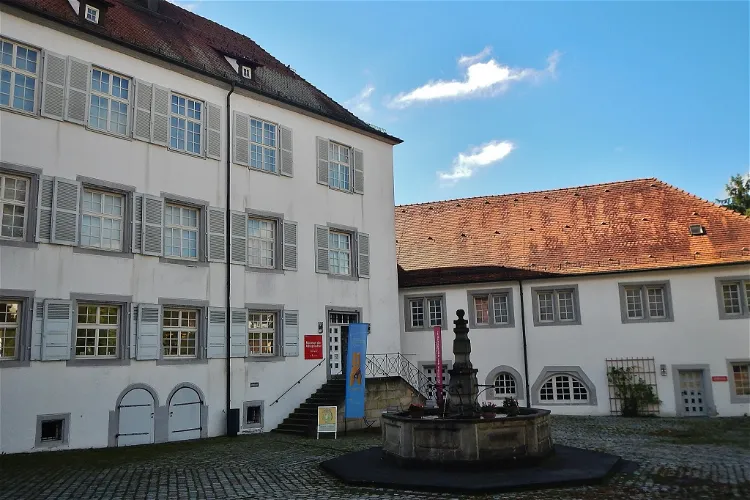
Museum of everyday culture
WaldenbuchThe Museum of Everyday Culture, located in Waldenbuch, Germany, is a significant branch of the Landesmuseum Württemberg. This museum is dedicated to cultural history, showcasing a wide range of topics from traditional folk art to modern pop culture. It is one of the most important museums of folk culture in Germany, making it a worthwhile destination for those interested in understanding the cultural evolution of the region.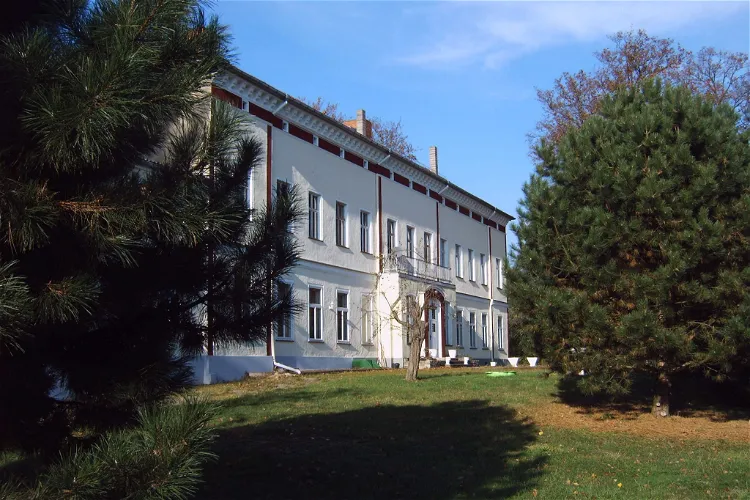
Förderverein Schloss Parchen e.V.
GenthinSchloss Parchen, also referred to as Byernsches Gutshaus, is a historical building situated in the district of Parchen in the city of Genthin, Saxony-Anhalt. This location is steeped in history and offers a unique insight into the region's past. The castle's origins are unknown, but it is mentioned as early as 1276 in historical records.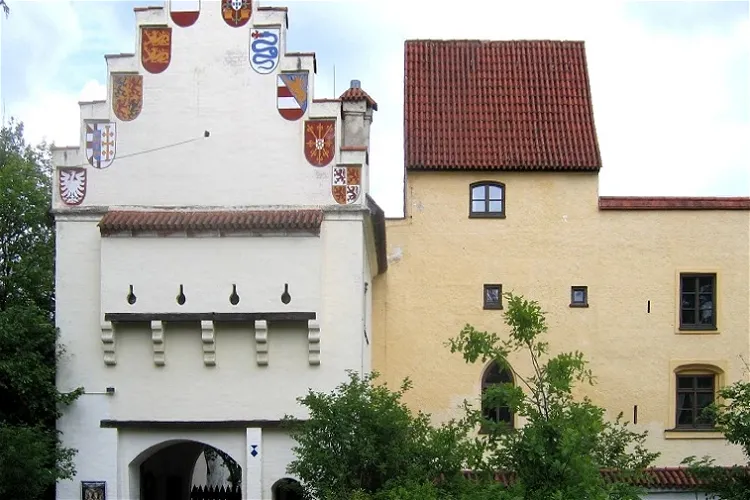
Burgmuseum Grünwald
GrünwaldThe Burgmuseum Grünwald provides detailed information about the history of Grünwald Castle, as well as the broader history of castles in Bavaria. This allows visitors to gain a comprehensive understanding of the region's past, from the specific context of Grünwald Castle to the wider historical landscape of Bavarian castles.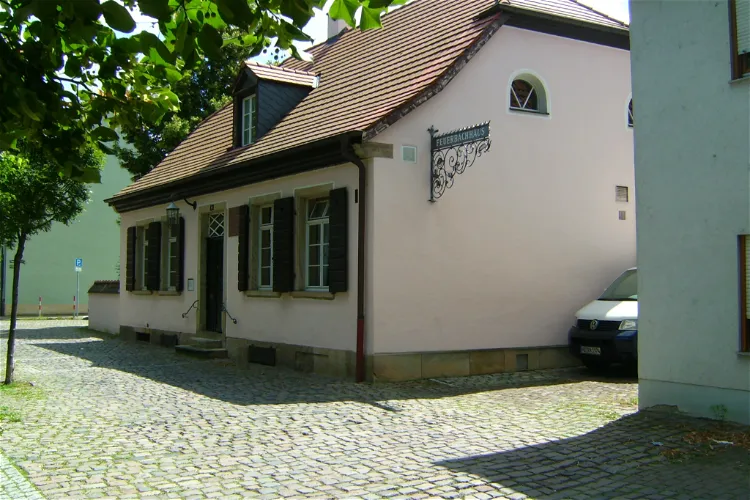
Feuerbachhaus
SpeyerThe Feuerbachhaus is a museum located at Allerheiligenstraße 9 in Speyer, dedicated to the Feuerbach family. This location is significant as it was the home of the archaeologist Joseph Anselm Feuerbach and his family for ten years. His son, the renowned painter Anselm Feuerbach, was born in this house.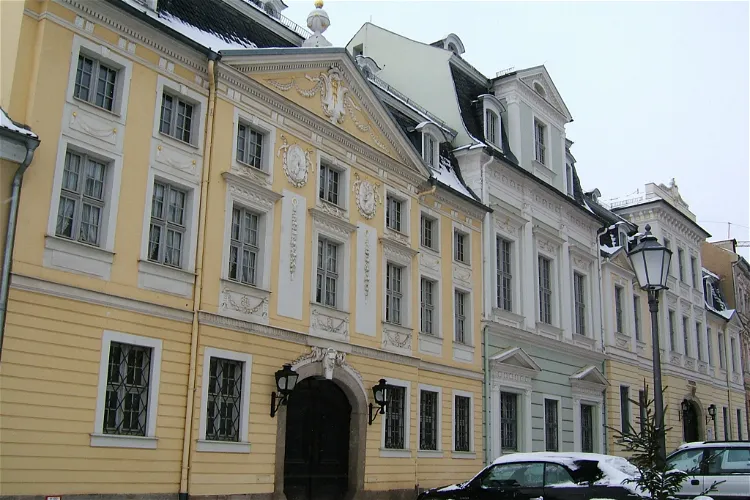
Vogtlandmuseum
PlauenThe Vogtlandmuseum Plauen is a cultural-historical museum that provides a deep dive into the history and culture of the Saxony Vogtland region. The museum is housed in three protected former residential and commercial buildings located in Nobelstraße, Plauen. These buildings themselves are a part of the region's history, adding an extra layer of authenticity to your visit.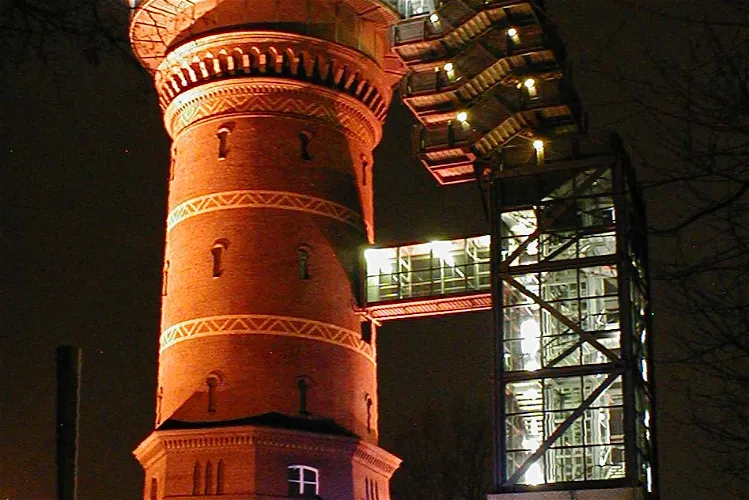
Stadtmuseum Hattingen
HattingenThe Stadtmuseum Hattingen, located in the Blankenstein district, was opened in 2001. It is housed in the old administrative buildings that were built between 1840 and 1904. The museum is situated in the heart of the village, in close proximity to the Blankenstein Castle and Gethmannschen Garten, making it a convenient location for tourists to visit.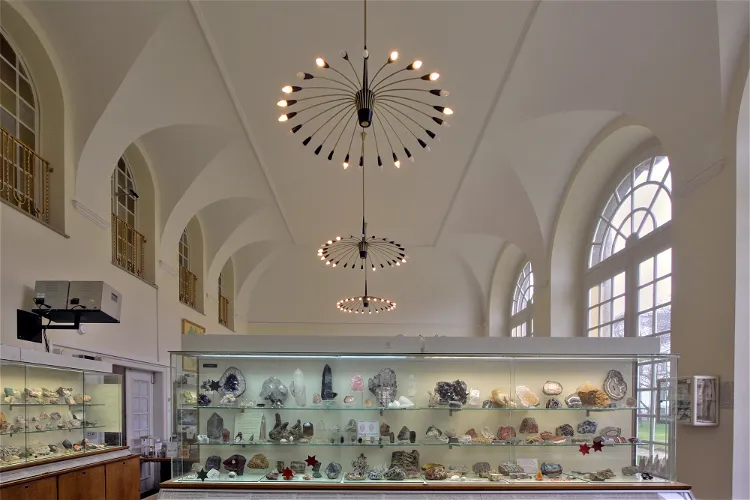
Mineralogisches Museum der Universität Bonn
BonnThe Mineralogical Museum of the University of Bonn is a unique museum dedicated to minerals and is situated in the historic Poppelsdorfer Castle. This location not only provides a rich historical backdrop for the museum but also adds to the overall experience of the visitors.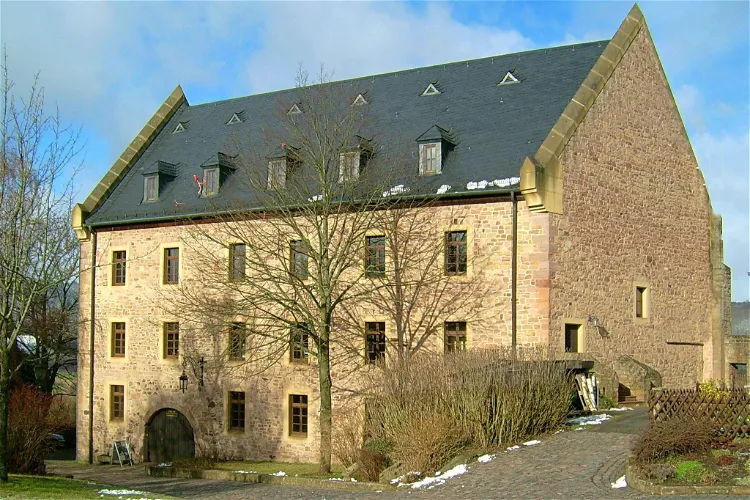
Palatine Musikantenland Museum
ThallichtenbergThe Palatine Musikantenland Museum is situated at the historic Lichtenberg Castle, near the town of Thallichtenberg in the county of Kusel. This location offers visitors not only a chance to explore the rich history of West Palatine wandering musicians but also to enjoy the scenic beauty of the surrounding area.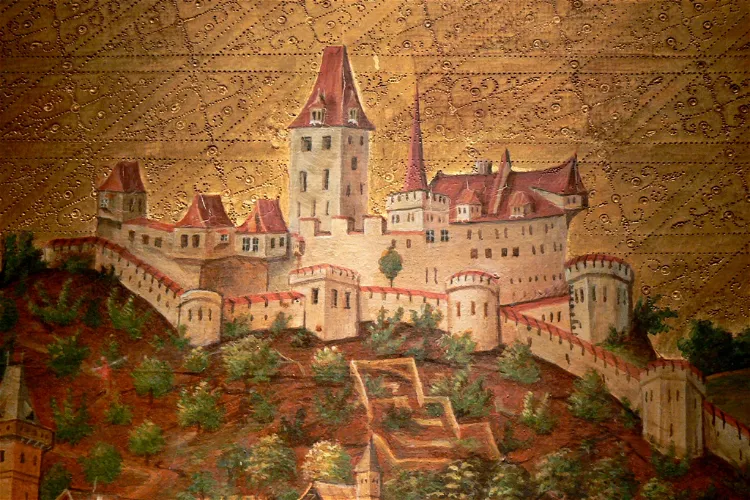
Oberhausmuseum
PassauThe Oberhausmuseum is situated in the Veste Oberhaus, one of the largest preserved castle complexes in Europe, located in the city of Passau. This unique location adds to the historical significance and charm of the museum, making it a fascinating destination for tourists interested in history and architecture.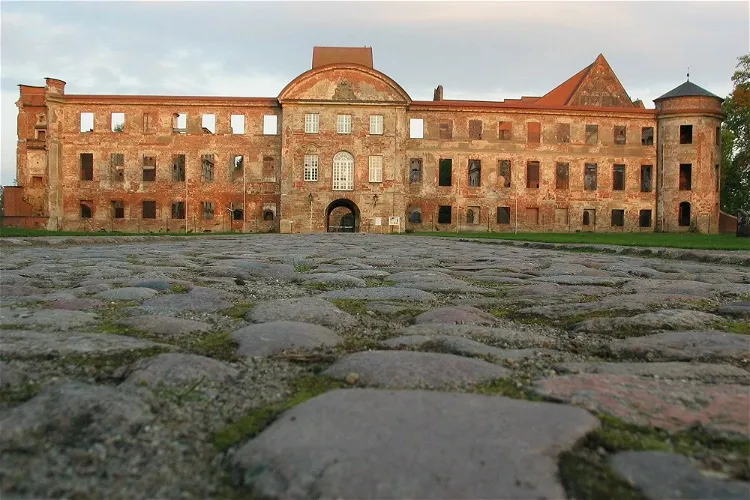
Dargun Palace
DargunDargun Palace, originally known as Dargun Abbey, is a historical site located in Dargun, Mecklenburgische Seenplatte, in Mecklenburg-Vorpommern, Germany. The site was initially a Cistercian monastery, which was later converted into a palace. The transformation of the monastery into a palace marks a significant shift in the history and function of the site, making it a point of interest for visitors.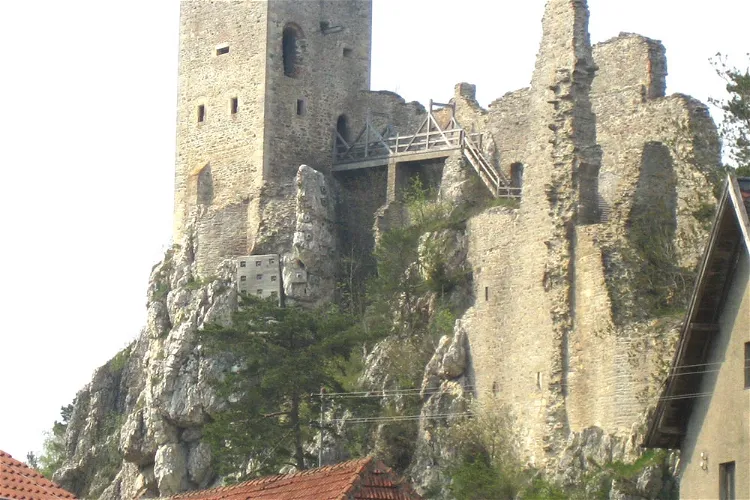
Weißenstein Castle
RegenWeißenstein Castle, also known as Burgruine Weißenstein in German, is a historical site located in the municipality of Weißenstein, in the borough of Regen, Bavaria. The castle is situated on a quartz ridge known as the Pfahl, at an elevation of 758 metres. Although it is now in ruins, the castle's rich history and unique location make it a fascinating destination for visitors.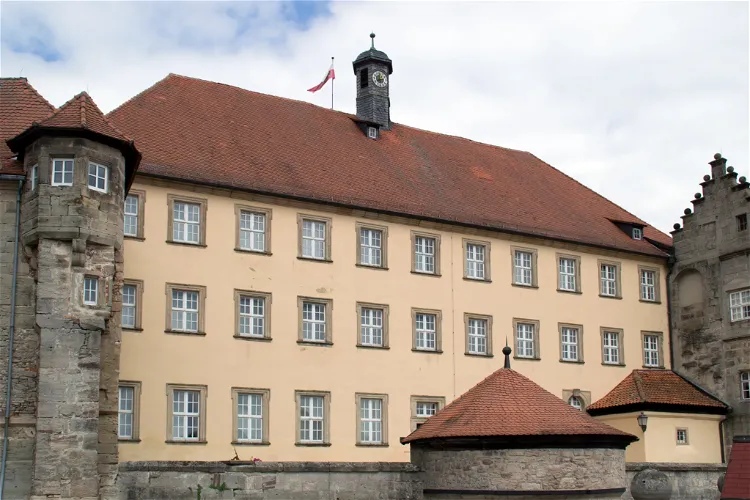
Fränkische Galerie
KronachThe Fränkische Galerie, located in the Upper Franconian city of Kronach, is a branch museum of the Bavarian National Museum in Munich. This connection to the Bavarian National Museum ensures a high standard of exhibits and a strong historical significance.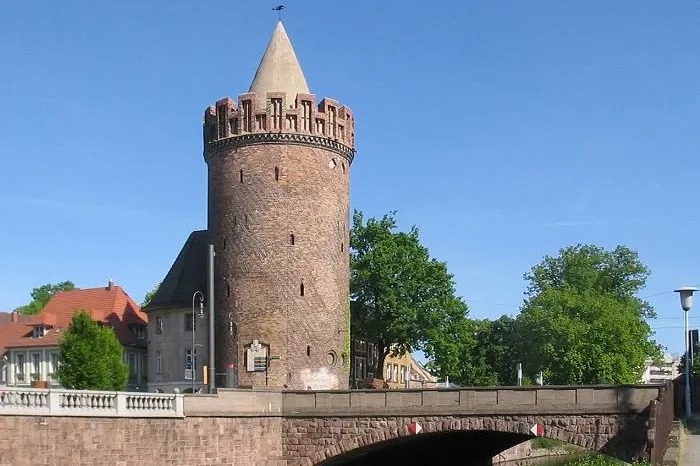
Steintorturm
Brandenburg an der HavelThe Steintorturm is a significant historical structure in Brandenburg an der Havel. It stands as one of the four remaining gate towers of the two cities of Brandenburg, out of the original eight. This tower is part of the medieval fortification system that once consisted of ten gates, making it a key part of the city's historical defense system.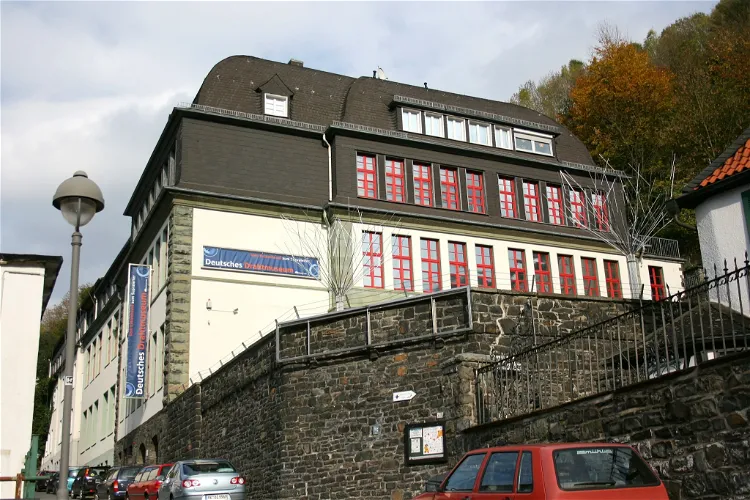
Deutsches Drahtmuseum
AltenaThe Deutsches Drahtmuseum in Altena is a unique institution, being the only one of its kind in the world. It was established in 1965 by the Altena district, following the initiative of industrialist Paul Rump. This museum offers a unique insight into the history and significance of wire in industry and everyday life.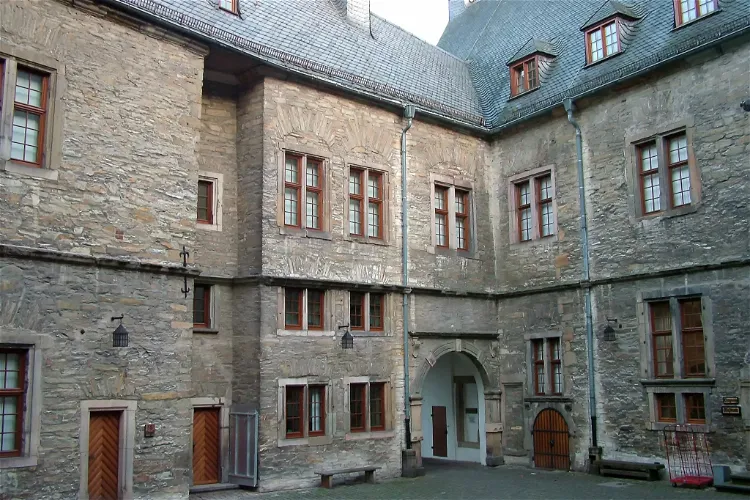
Wewelsburg District Museum
BürenWewelsburg is a Renaissance castle situated in the village of the same name in Nordrhein-Westfalen, Germany. The castle is surrounded on three sides by the village, which is now part of the city of Büren. The castle was built in its current form between 1603 and 1609 as the second home to Prince-Bishop Dietrich von Fürstenberg. Today, the castle appears as a remodeling and inclusion of earlier buildings on the site, with the first buildings erected as early as the 8th and 9th centuries.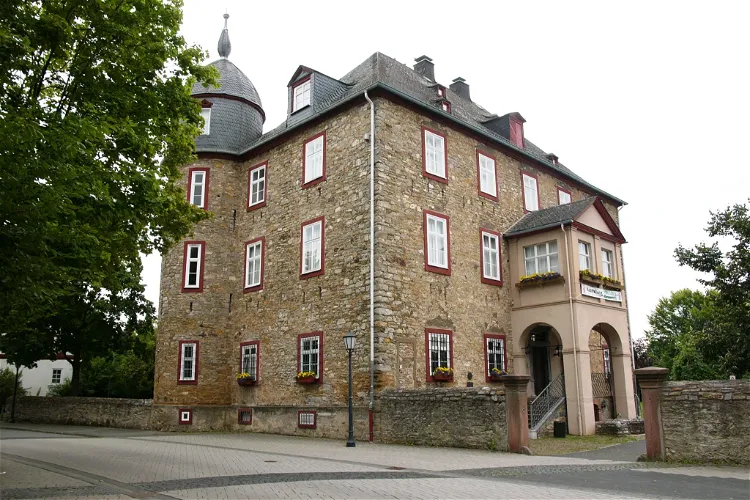
Schloß Werdorf
AßlarSchloss Werdorf, also referred to as Werdorfer Schloss, is a baroque castle situated in Werdorf, a part of Aßlar in the Lahn-Dill-Kreis in central Hesse. The castle was constructed in the period from 1686 to 1690, showcasing the architectural style of the baroque period. Its historical, artistic, and scientific significance makes it a cultural monument.
Oberhausmuseum Passau
PassauThe Oberhausmuseum is situated in the Veste Oberhaus, one of the largest preserved castle complexes in Europe, located in Passau. This unique location adds to the historical significance and charm of the museum, making it a fascinating destination for tourists interested in history and architecture.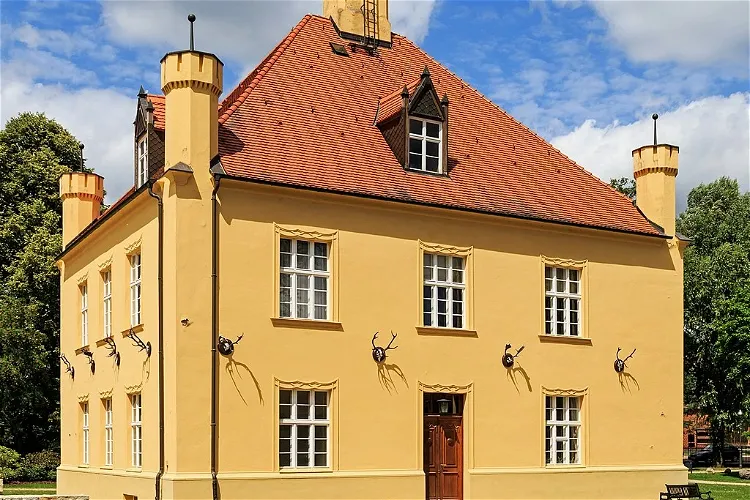
Hunting lodge Gross Schoenebeck
Groß SchönebeckThe construction of the hunting lodge Gross Schoenebeck, which is in the early Baroque style, was initiated by the Great Elector in 1660. This was done in place of a destroyed castle. The construction was only completed under the reign of King Friedrich Wilhelm I. The lodge was originally surrounded by a moat, adding to its historical charm.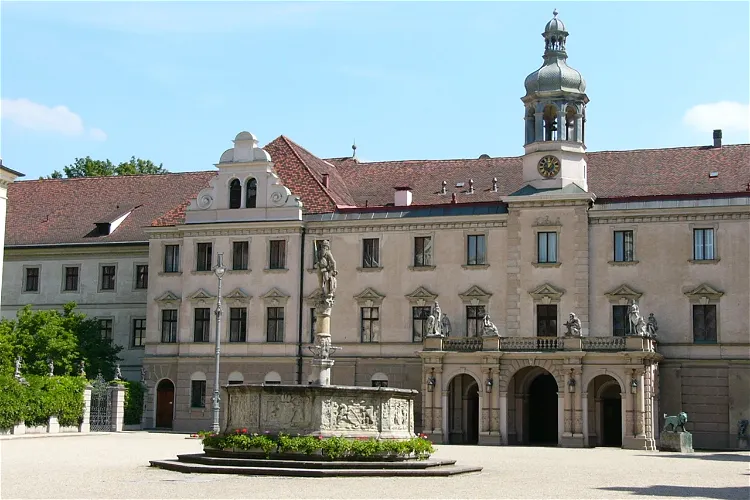
Palace Museum with Saint Emmeram Cloisters and Carriage Museum
RegensburgSlot Sankt Emmeram, also known as Slot Thurn und Taxis, is a significant historical site in Regensburg. It is the family castle of the Thurn und Taxis family, who had the right to deliver mail within the German lands and the Holy Roman Empire for centuries. Today, it serves as a residence for the family members and a museum for the public.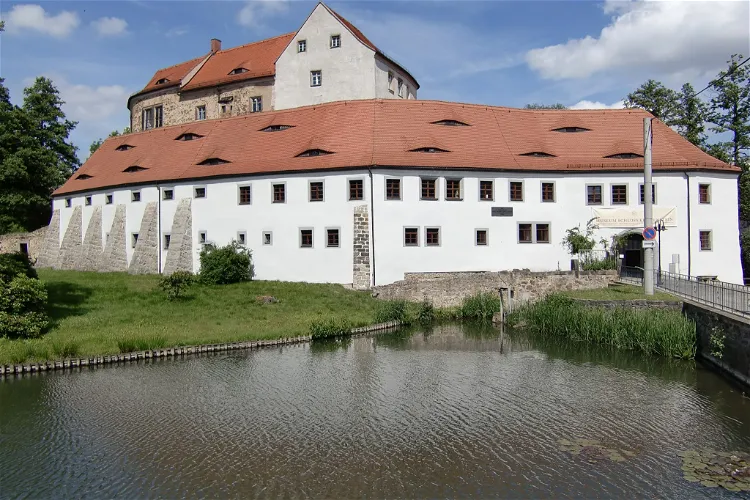
Museum Schloss Klippenstein
RadebergSchloss Klippenstein, located in Radeberg near Dresden, is a protected monument that has been standing since December 1953. This historical site offers a glimpse into the past and is a significant part of the city's heritage.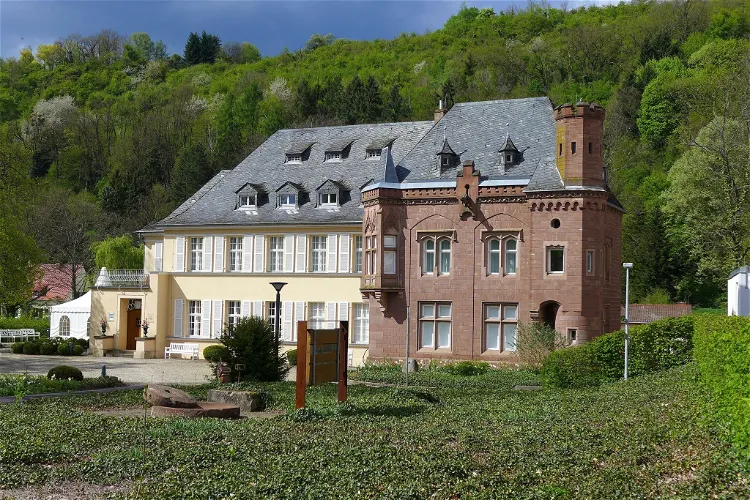
Museum Schloss Fellenberg
MerzigSchloss Fellenberg, located in Merzig, is a unique blend of history and architecture. Originally constructed as a mill, it was later transformed into a castle-like structure by Swiss manufacturer Wilhelm Tell von Fellenberg after 1858. This transformation is a testament to the architectural evolution of the building, making it a point of interest for those who appreciate historical architecture.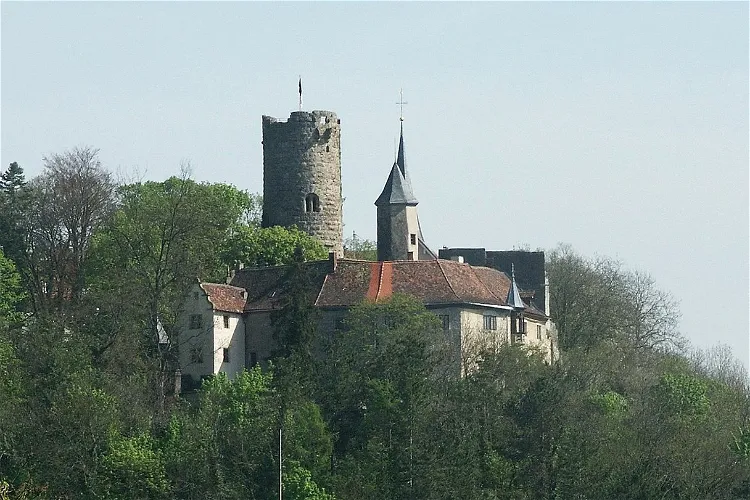
Krautheim Castle
KrautheimBurg Krautheim, also known as Krautheim Castle, was constructed in 1213 by Wolfrad I. von Krautheim. It is located on a mountain spur above the town of Krautheim in the Hohenlohe district in Baden-Württemberg, Germany. The castle's strategic location offers a panoramic view of the surrounding area, making it a fascinating destination for tourists.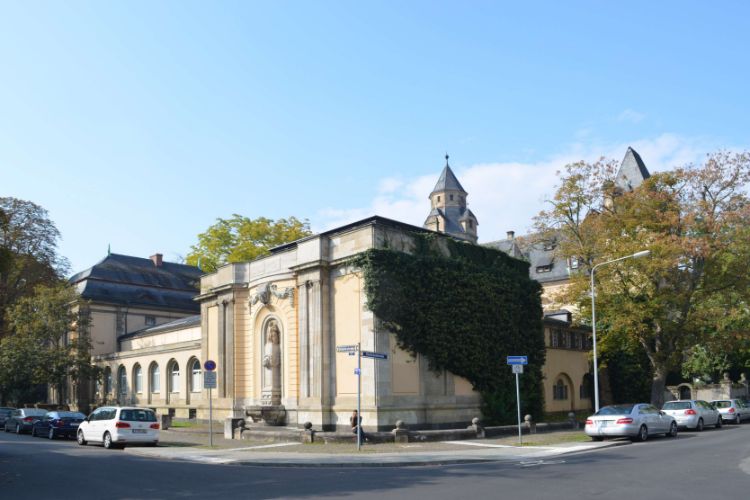
Liebieghaus
FrankfurtThe Liebieghaus is a late 19th-century castle-like villa in Frankfurt that was built in 1896, in a palatial, Historicist style, as a retirement home for textile manufacturer Baron Heinrich von Liebieg. The Liebieghaus is home to a sculpture museum, the Städtische Galerie Liebieghaus. The museum hold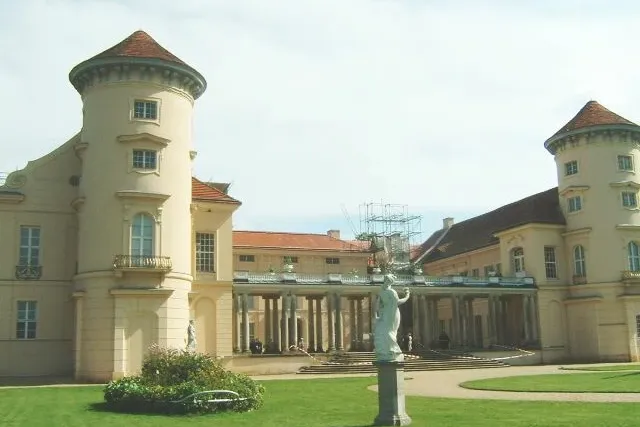
Kurt-Tucholsky-Literaturmuseum
RheinsbergThe Kurt Tucholsky Literature Museum, located in Rheinsberg Castle, is a place dedicated to the life and work of the renowned German-Jewish journalist, satirist and writer, Kurt Tucholsky. The museum provides an in-depth look into Tucholsky's life, his literary contributions, and his influence on German literature.- 96
Fachsenfeld Castle
AalenIn 1982, Baron Reinhard von Koenig-Fachsenfeld established a foundation to preserve Schloss Fachsenfeld and its surrounding park. Today, the castle is home to the Baron's collections and a museum, offering visitors a unique insight into the history and culture of the region. 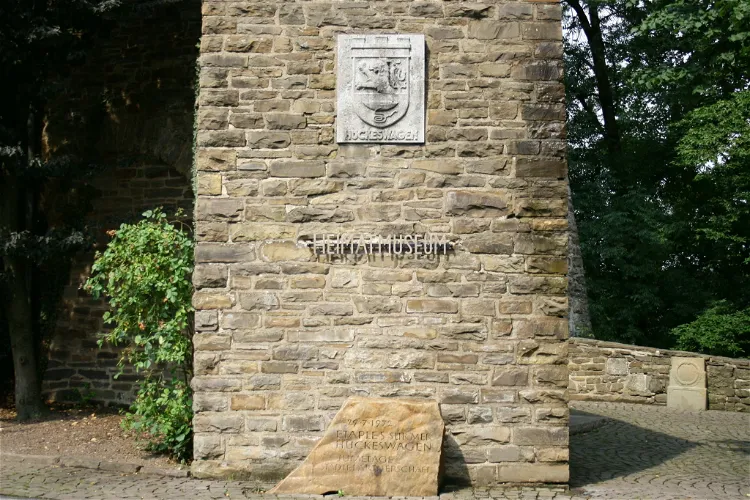
Heimatmuseum Hückeswagen
HückeswagenThe Heimatmuseum Hückeswagen is situated in the eastern hall building of the Hückeswagen Castle. This location adds a historical charm to the museum, making it a unique destination for tourists interested in history and architecture.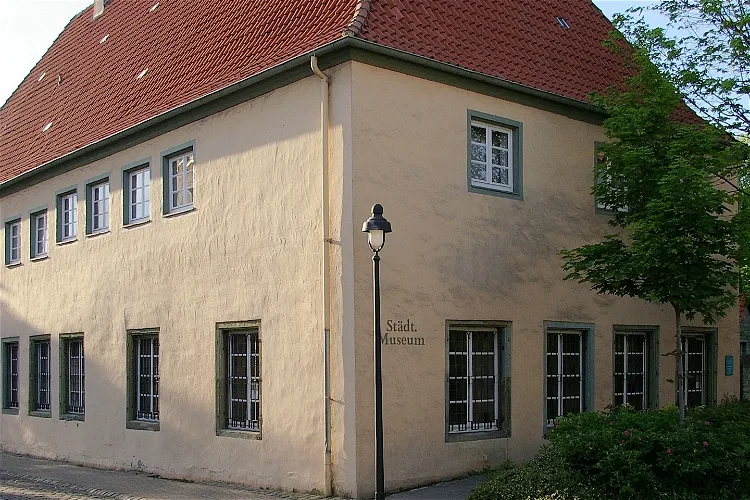
Städtisches Museum am Rykenberg
WerlThe Städtisches Museum Am Rykenberg – Wendelin-Leidinger-Haus is the local museum of the city of Werl. It is a place where visitors can learn about the history and culture of the city. The museum is named after Wendelin Leidinger, who was a local historian and caretaker of the house for many years.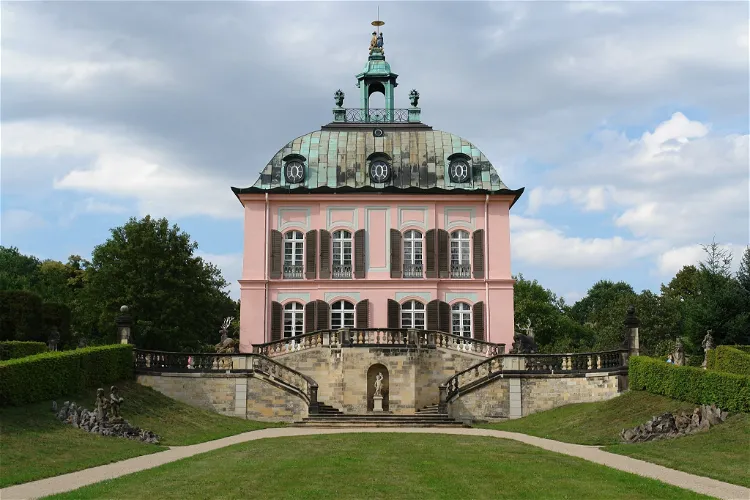
Fasanenschlosschen Moritzburg
MoritzburgThe Fasanenschlösschen, or 'Little Pheasant Castle', derives its name from the pheasant breeding that was carried out on its grounds. It is situated in the pheasantry of the Moritzburg castle park, which was established in 1728. This unique aspect of the castle's history adds an intriguing layer to its appeal, offering visitors a glimpse into the past practices of the region.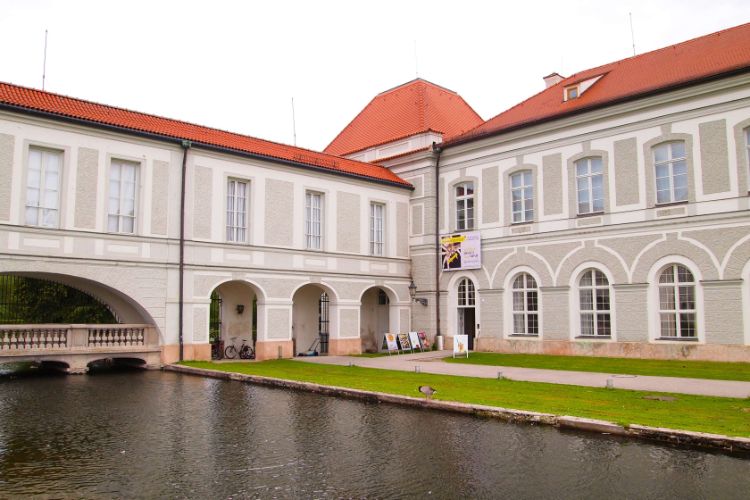
Museum Mensch und Natur
MunichLocated in the Nymphenburg Castle, the Museum Mensch und Natu is dedicated to natural history. Walk through its interactive exhibits, see life-sized replicas and marvel at its highlight "JJ1", alias Bruno the Bear - the first brown bear to appear in the country after almost 200 years.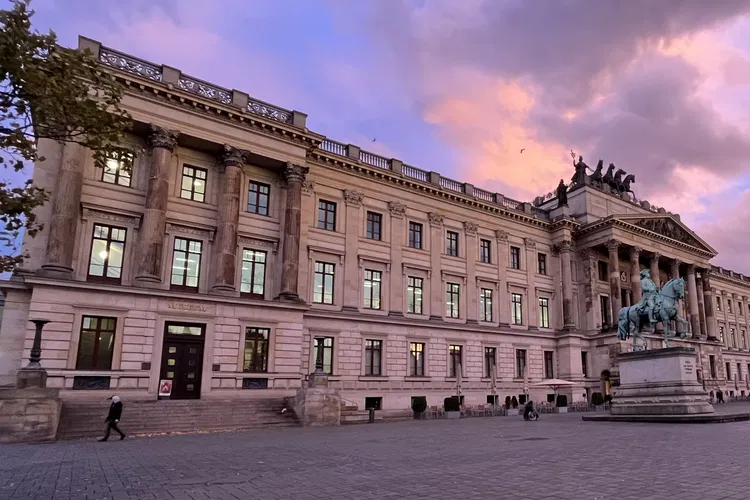
Brunswick Palace Museum
BrunswickThe Schlossmuseum Braunschweig is a history museum that is situated in the Brunswick Residenzschloss, which was reconstructed in 2007. This museum offers a unique opportunity to explore the rich history of the region, as it is housed in a building that has been a significant part of the area's past. The museum's location in the Brunswick Residenzschloss adds an extra layer of historical significance to the exhibits and artifacts on display.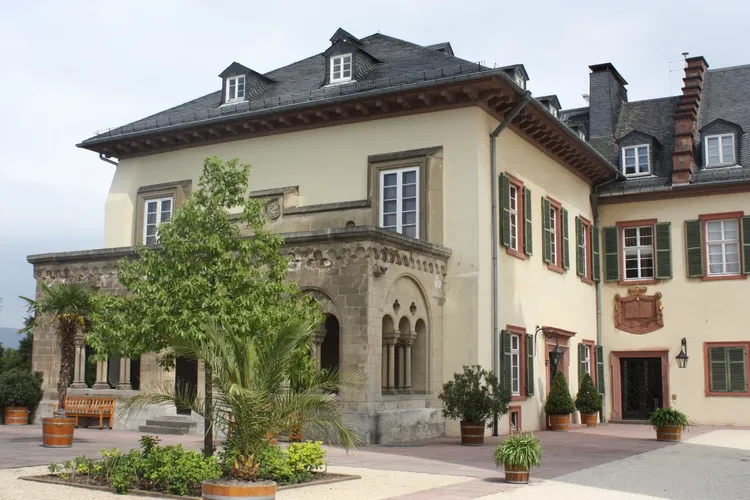
Bad Homburg Castle
Bad Homburg vor der HöheBad Homburg Castle, also known as Homburg Palace, is a significant historical site located in the German city of Bad Homburg vor der Höhe. The castle was originally the residence of the Landgraves of Hesse-Homburg, making it a place of great historical significance.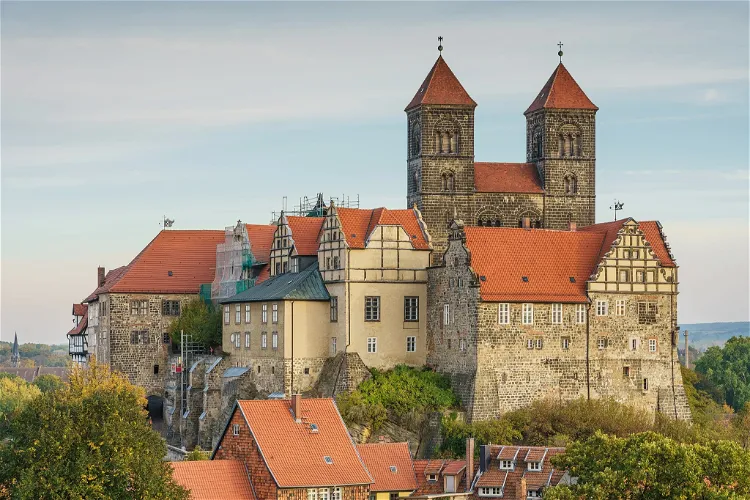
Schloßmuseum
QuedlinburgQuedlinburg Castle, also known as Schloss Quedlinburg, is a historical site that was originally part of the Quedlinburg Abbey. This castle is a significant part of the town's history and offers a glimpse into the past. Visitors can explore the castle and learn about its origins and the role it played in the history of Quedlinburg.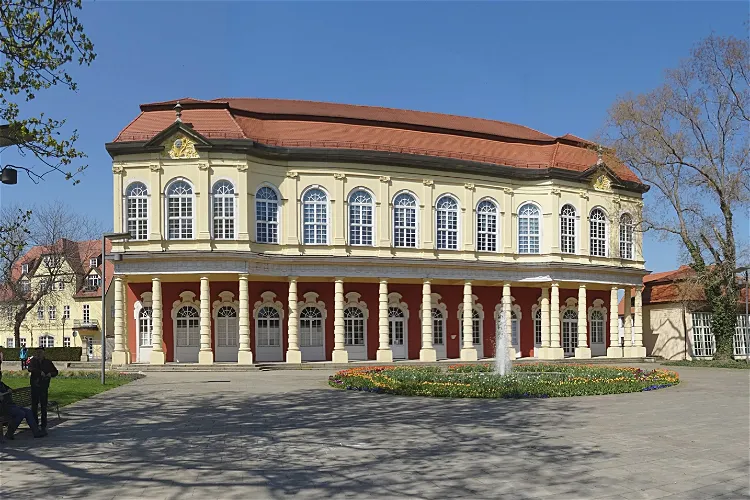
Kulturhistorisches Museum Schloss Merseburg
MerseburgSchloss Merseburg is a castle built in the Renaissance style, situated in the city of Merseburg in Saxony-Anhalt. Historically, it served as a royal palace, a bishop's seat, and a ducal residence. This rich history adds to the cultural and architectural significance of the castle, making it an interesting site for tourists.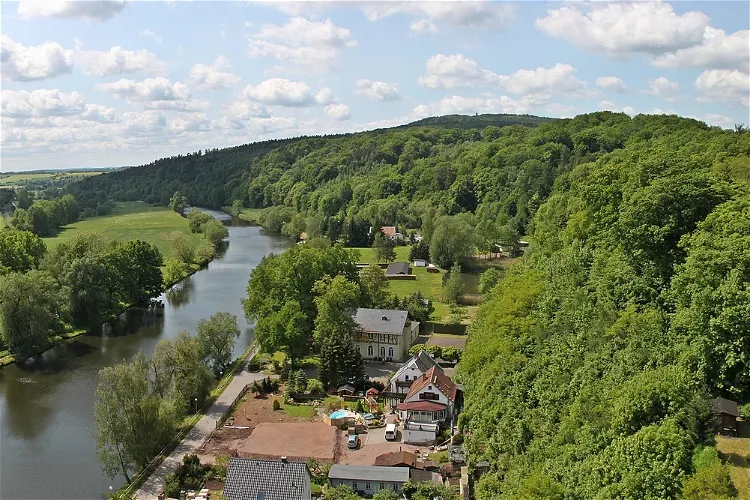
Rochlitz Palace
RochlitzRochlitz Castle, also known as Rochlitz Palace, is situated in the western part of the town of Rochlitz, within the county of Mittelsachsen in the Free State of Saxony. This historic site offers visitors a glimpse into the past, with its rich history dating back to the 10th century.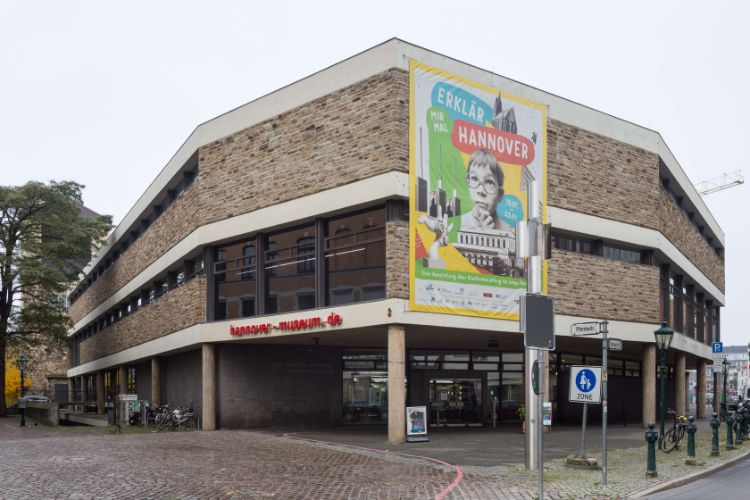
Historisches Museum Hannover
HanoverThe Historisches Museum Hannover (Historical Museum Hannover) collects and exhibits objects related to the history of the city of Hannover and today's Lower Saxony. The museum is divided into the following departments: "From the Principality to the Kingdom" with the development of the Principality o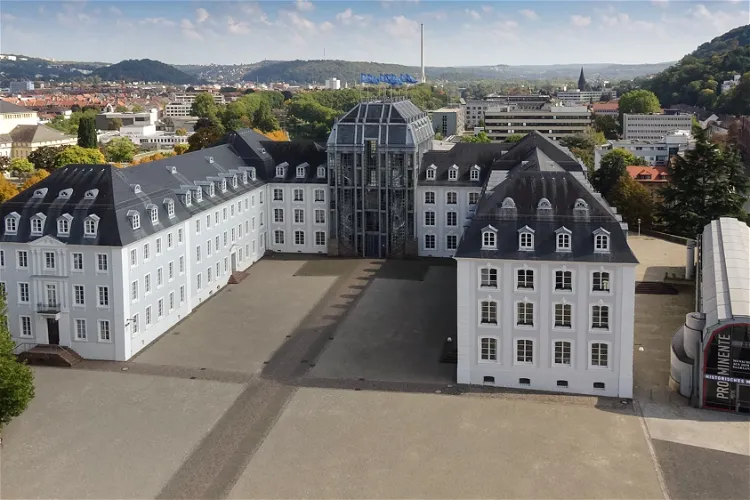
Saar Historical Museum
SaarbrückenThe Saar Historical Museum, located at the Saarbrücken Castle Square, is dedicated to the history of Saarland. It provides a comprehensive overview of the region's past, making it an ideal destination for history enthusiasts and curious tourists alike.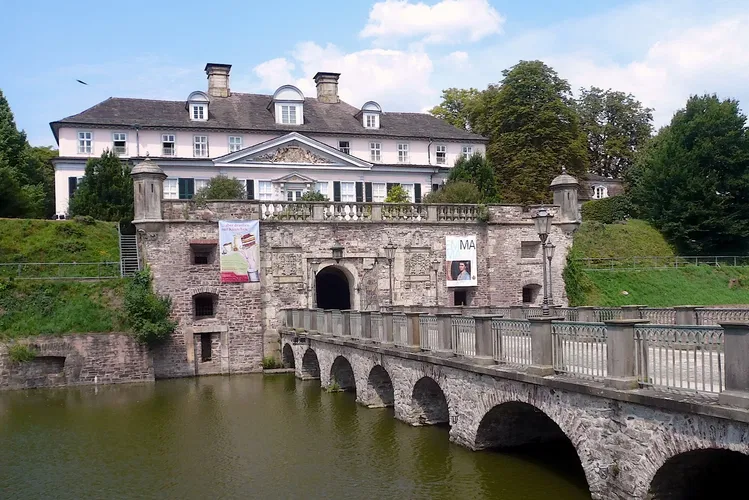
Schloss Pyrmont
Bad PyrmontThe current structure of Schloss Pyrmont dates back to the 18th century. Today, it houses a museum that showcases the history and culture of the region. Visitors can explore the museum to gain a deeper understanding of the castle's past and the people who lived there.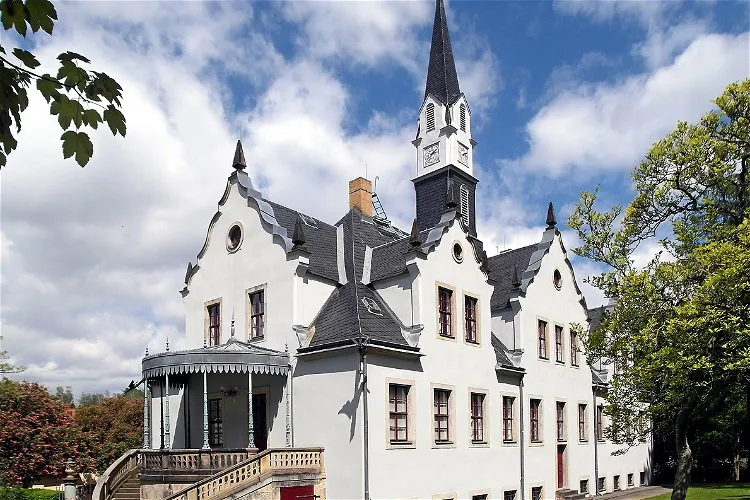
Städtische Sammlungen Freital auf Schloss Burgk
FreitalSchloß Burgk is a Saxon castle located in Burgk, which is part of the municipality of Freital, in the district of Saxon Switzerland-East Ore Mountains. This historical site offers a glimpse into the architectural style of the Renaissance period, with its characteristic scroll gables. The castle has been restored in the 19th century, preserving its historical charm and significance.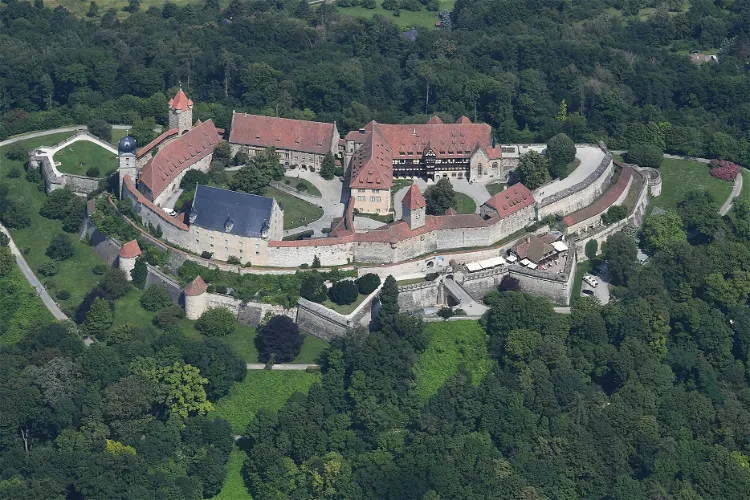
Veste Coburg
CoburgVeste Coburg, often referred to as the 'Franconian Crown', is a significant historical site in Germany. It is one of the largest and best-preserved castles in the country. The castle is strategically located on a hill, providing a panoramic view of the city of Coburg. It is situated on the border of Bavaria and Thuringia, adding to its historical and geographical significance.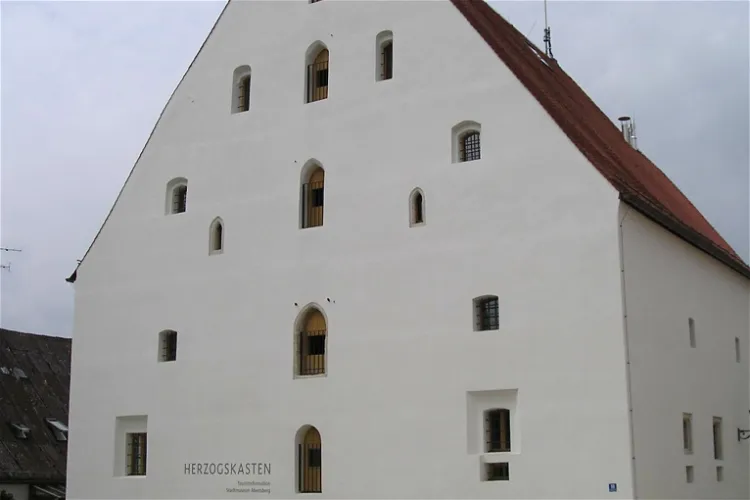
Herzogskasten Stadtmuseum Abensberg
AbensbergThe Herzogskasten in Abensberg is a significant historical site that has been repurposed for modern use. This Gothic secular building, which was originally used as a grain store and warehouse, now houses the Stadtmuseum Abensberg and the tourist information center. Located at Dollingerstraße 18, it offers visitors a glimpse into the city's past while providing useful information for their stay.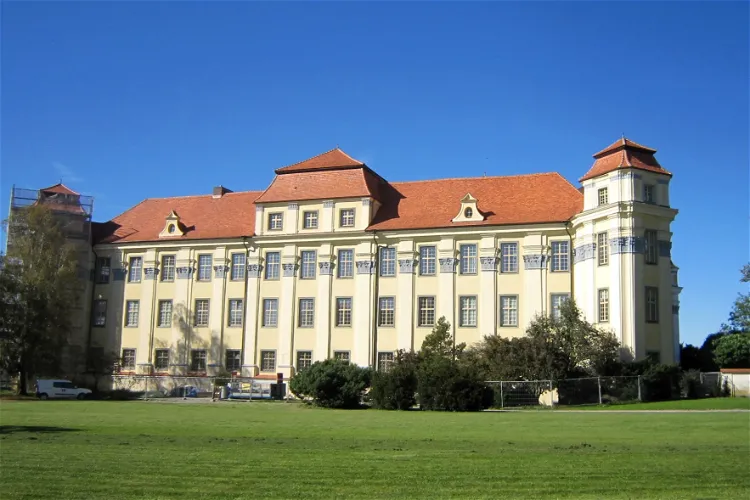
Tettnang New Palace
TettnangTettnang Castle, also known as the Tettnang New Palace, is a significant historical site in the German town of Tettnang. It is one of three castles in the town, making it a key part of the local heritage and a point of interest for visitors.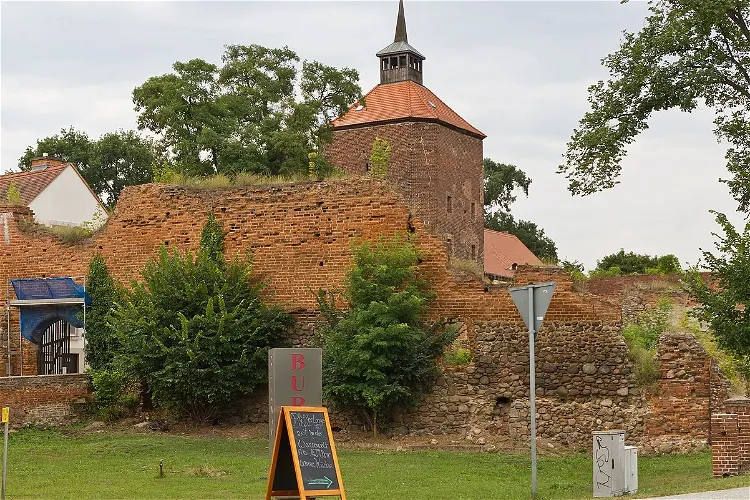
Burg Beeskow
BeeskowBurg Beeskow is not just a historical site, but also a cultural hub. It houses a regional museum that showcases historical, ethnographic, and ecological themes of the Beeskow-Storkow region. Additionally, it features a medieval magazine with a torture cellar. The castle also hosts changing exhibitions, primarily focusing on the art of the German Democratic Republic.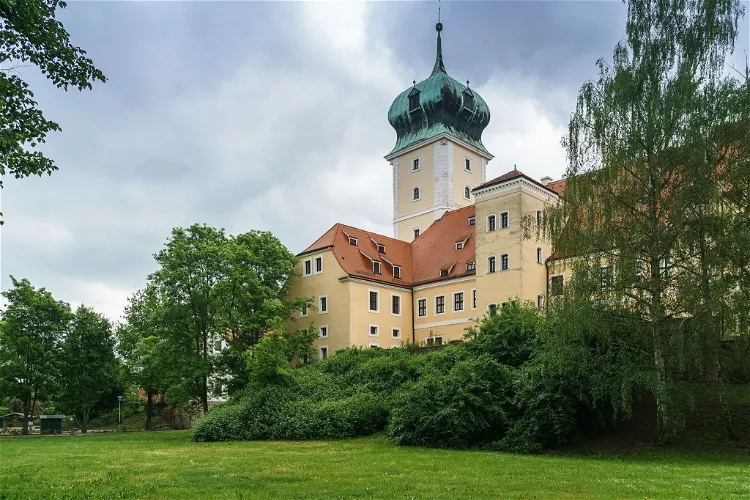
Barockschloss Delitzsch
DelitzschBarockschloss Delitzsch, situated in the city of Delitzsch, is one of the oldest castles in the northwest of Saxony. Its history dates back to the early 12th century, with only the foundations of the original building remaining. The castle has undergone several architectural changes over the centuries, with the last major external alterations giving it its baroque appearance in the late 17th century.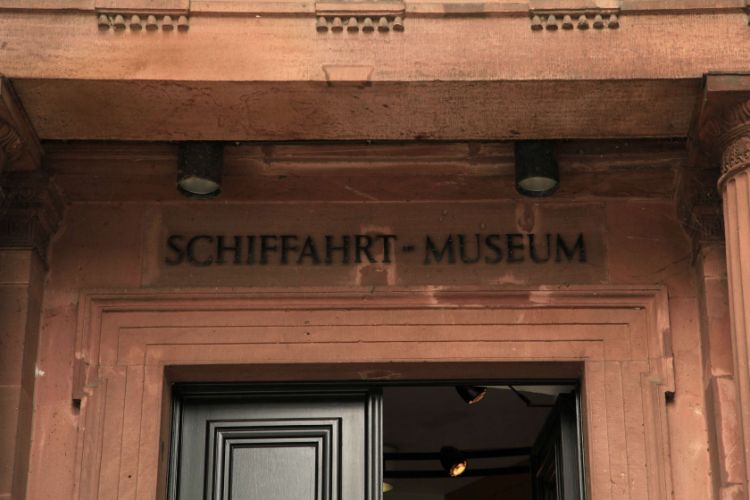
Schifffahrtmuseum Düsseldorf
DüsseldorfThe Maritime Museum in Dusseldorf (Schifffahrtmuseum Düsseldorf ) is one of the oldest inland navigation museums in Germany and is housed in the castle tower on the banks of the Rhine. The museum features exhibits on the ecology of the Rhine, the history of shipbuilding, and trade and travel on the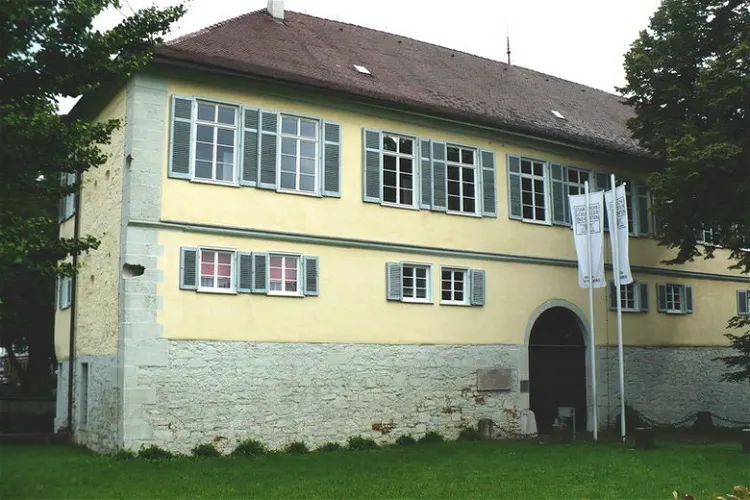
Schloss Kirchheim (Teck)
Kirchheim unter TeckSchloss Kirchheim, a well-preserved Renaissance fortress, is situated on the edge of the old town of Kirchheim unter Teck. This historical site offers a glimpse into the past, showcasing the architectural style of the Renaissance period. The castle's location, on the edge of the old town, provides a picturesque setting that enhances the overall experience for visitors.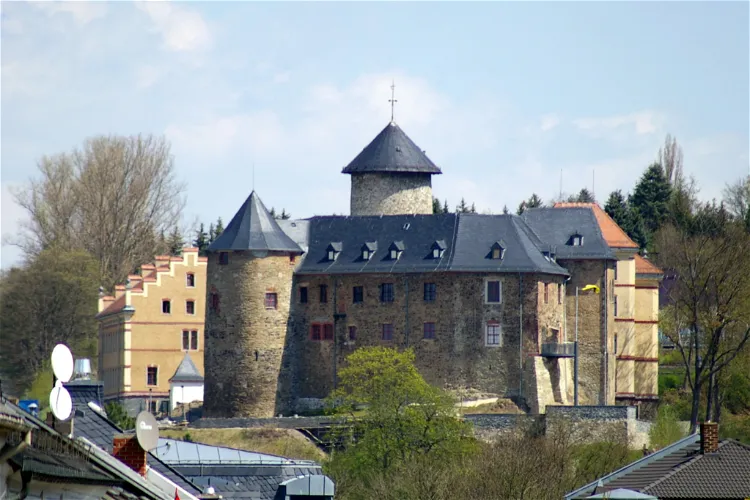
Schloß Voigtsberg
OelsnitzThe Voigtsberg Castle, which was later renamed Schloss Voigtsberg, is a typical high medieval castle. It was significantly damaged during the Thirty Years' War and was subsequently rebuilt into a castle. This transformation has given the structure a unique blend of architectural styles, making it a fascinating site for history and architecture enthusiasts.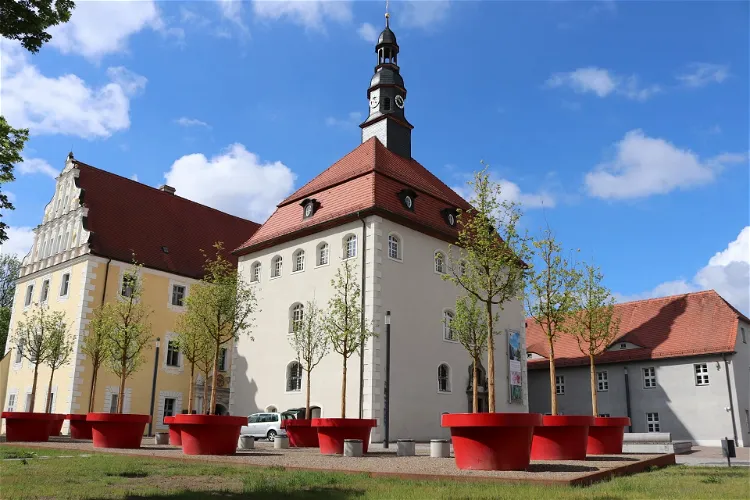
Museum Schloss Lübben
Lübben (Spreewald)The Museum Schloss Lübben is a city and regional museum that is situated in the castle of Lübben, in the Brandenburg district town of Lübben (Spreewald). The museum is under the municipal ownership of the city of Lübben, making it a significant cultural and historical site for the region.
European Museum of Modern Glass
RödentalThe European Museum of Modern Glass is situated in the scenic Rosenau Castle Park in Rödental, Germany. This location not only offers a unique setting for the museum but also provides visitors with the opportunity to explore the beautiful park and castle grounds. The museum is easily accessible and offers ample parking for visitors.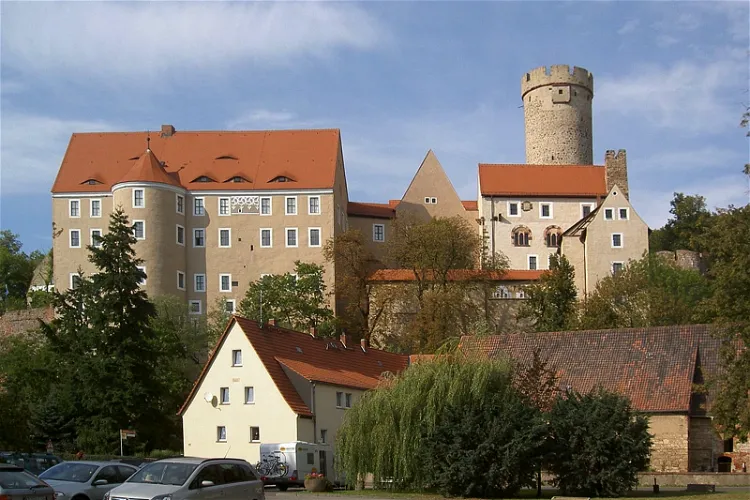
Gnandstein Castle
FrohburgBurg Gnandstein, situated above the Wyhra river in Gnandstein, a district of the city of Frohburg, in the Leipzig district in Saxony, is a significant historical site. It is recognized as Saxony's best-preserved Romanesque fortress, offering a unique glimpse into the region's past.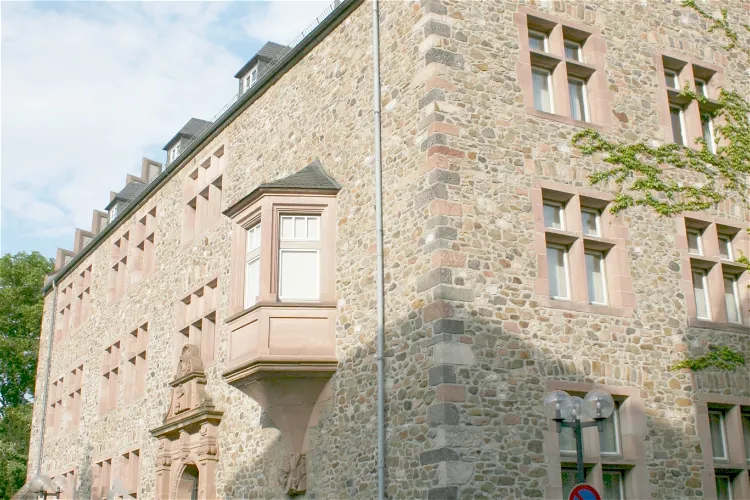
Oberhessisches Museum
GießenThe Oberhessisches Museum, a universal museum, is situated in the central Hessian city of Gießen. It is housed in three distinct locations: the Old Castle Gießen, the Wallenfels'schen Haus, and the Leib'schen Haus. Each of these locations offers a unique perspective on the rich history and culture of the region.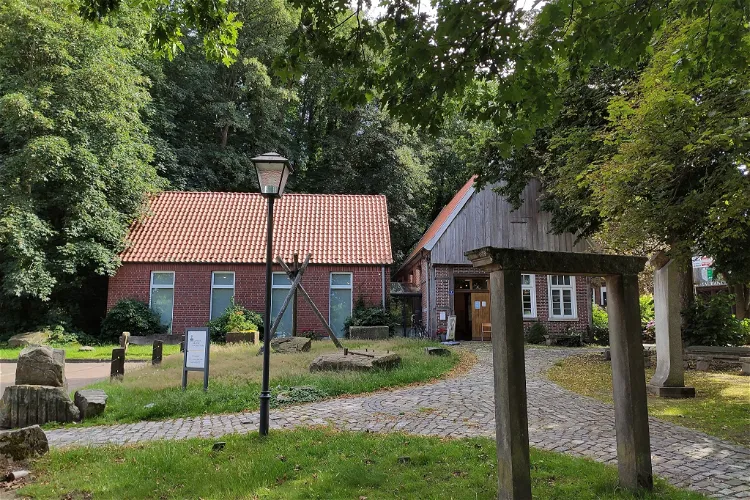
Sandsteinmuseum
Bad BentheimThe Sandsteinmuseum Bad Bentheim, opened in the summer of 1999, is situated in a historic anchor beam house with a modern extension. This unique location is nestled in the castle park below the Bentheim Castle in Bad Bentheim, Lower Saxony. The museum's location offers visitors a chance to explore the rich history of the area while enjoying the beautiful surroundings.
State Museum for Art and Cultural History
OldenburgThe State Museum for Art and Cultural History in Oldenburg is a unique cultural institution located in the city of Oldenburg in Lower Saxony. The museum is spread across three closely situated sites: the Castle, Augusteum, and Prinzenpalais. Each of these sites offers a distinct collection and experience, making the museum a diverse and enriching destination for art and history enthusiasts.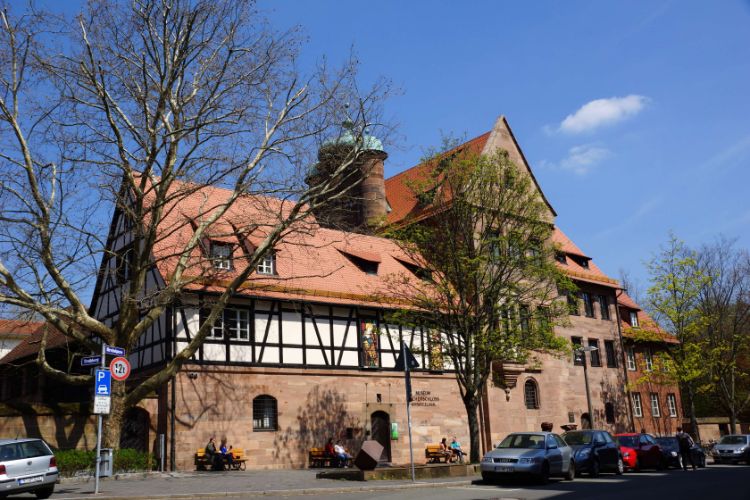
Tucher Mansion Museum and Hirsvogel Hall
NurembergThe Tucher Mansion Museum and Hirsvogel Hall is a museum in Nuremberg. The Tucherschloss was built as a city palace of the Nuremberg Patrician Tucher family. It is now a museum with exhibits on the history of the Tucher family and shows what was life like for the 16th century merchants. In addition
Kallmann-Museum
IsmaningThe Kallmann Museum, situated in the Ismaning Castle Park in Ismaning near Munich, is a destination for those interested in modern and contemporary art. The museum's location offers a serene environment that complements the artistic experience within its walls.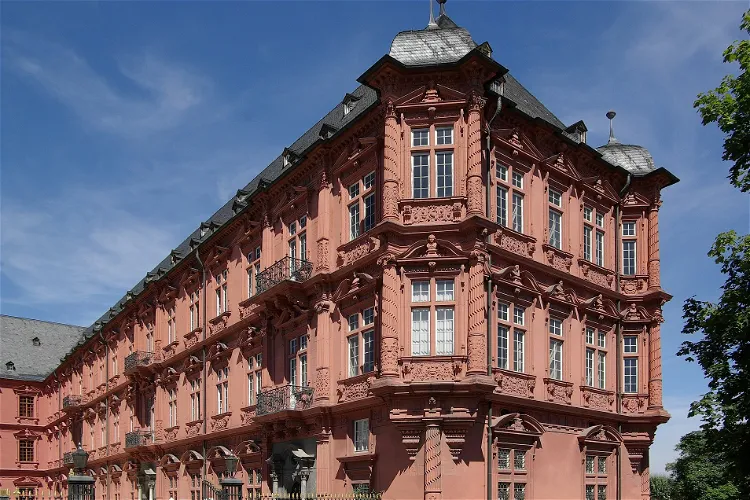
Leibniz Research Institute for Archaeology
MainzThe Römisch-Germanisches Zentralmuseum (RGZM), or the Roman-Germanic Central Museum, is a significant archaeological institution located in Mainz, Rhineland-Palatinate, Germany. Established in 1852, the museum is housed in the Elector's Castle and offers a systematic overview of Europe's history, covering periods from the Paleolithic to the High Middle Ages.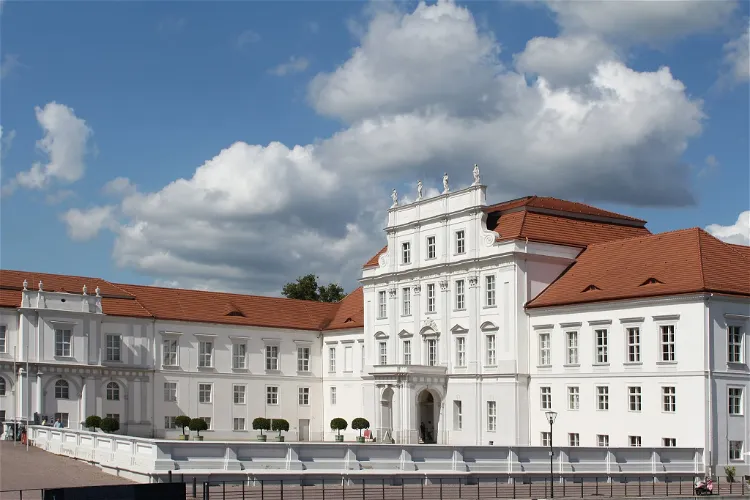
Oranienburg Palace
OranienburgOranienburg Palace, situated in the town of Oranienburg in Germany, holds the distinction of being the oldest Baroque Schloss in the Margraviate of Brandenburg. This historical monument was constructed between 1651 and 1655 by Louise Henriette of Orange-Nassau, the first wife of Frederick William, Elector of Brandenburg. The palace's architecture, designed by Johann Gregor Memhardt, reflects the Dutch classicism of the time, with a vertical orientation and turrets on the side wings.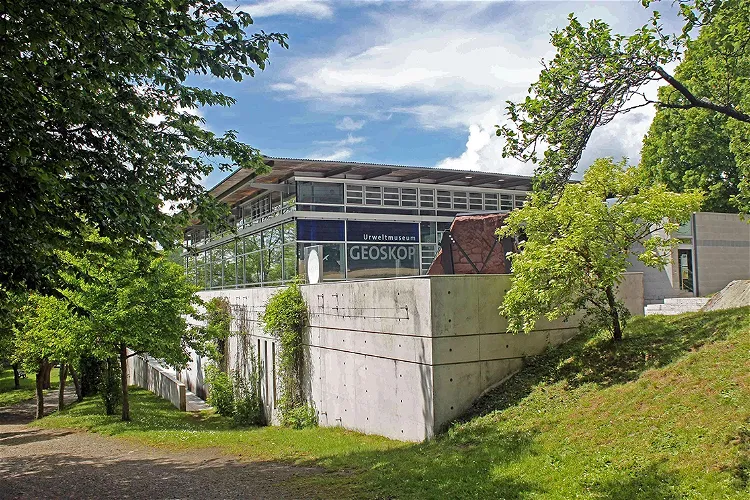
Urweltmuseum Geoskop
ThallichtenbergThe Urweltmuseum Geoskop is a natural history museum that focuses on the geological history of the Palatinate region. It is situated at Burg Lichtenberg near Thallichtenberg, in close proximity to the western Palatinate county town of Kusel in Rhineland-Palatinate. Since its opening in 1998, it has become the largest information center for the geology of this region.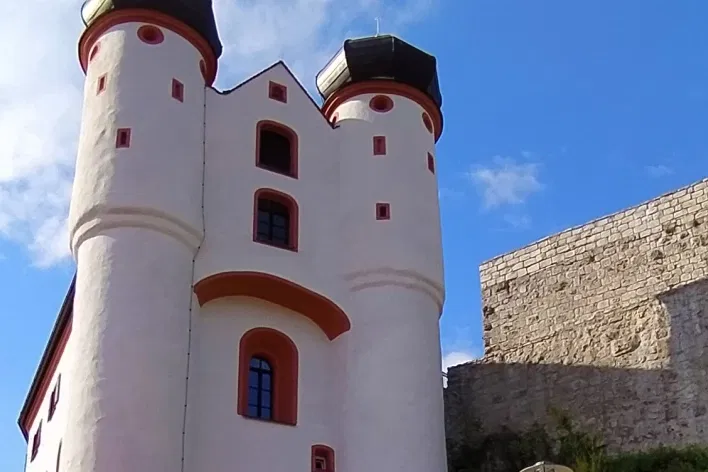
Burgmuseum Parsberg
ParsbergThe Parsberg Castle is a hilltop castle located on a limestone spur in the city center of Parsberg in the district of Neumarkt in Upper Palatinate, Bavaria. The complex has a long construction history that dates back to the 13th century. The castle museum, located in the lower castle, presents the h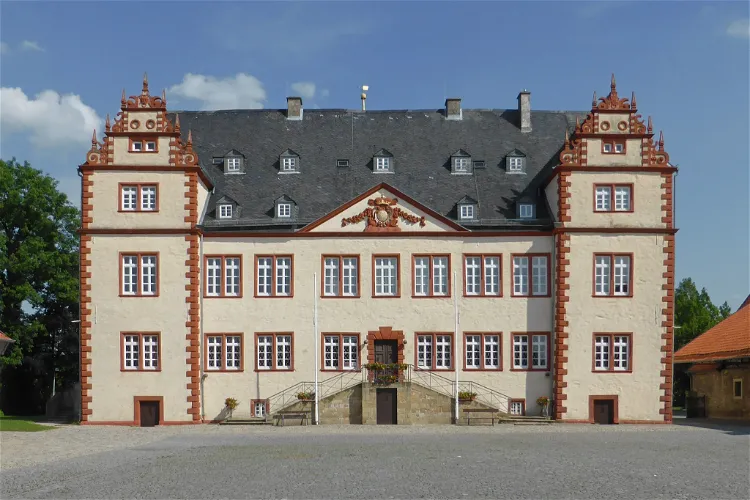
Städtisches Museum Schloss Salder
SalzgitterThe Städtisches Museum Schloss Salder is the main museum of the city of Salzgitter, located in Lower Saxony, Germany. It is situated in the historic Schloss Salder and its associated outbuildings, offering a unique blend of history and culture in a picturesque setting.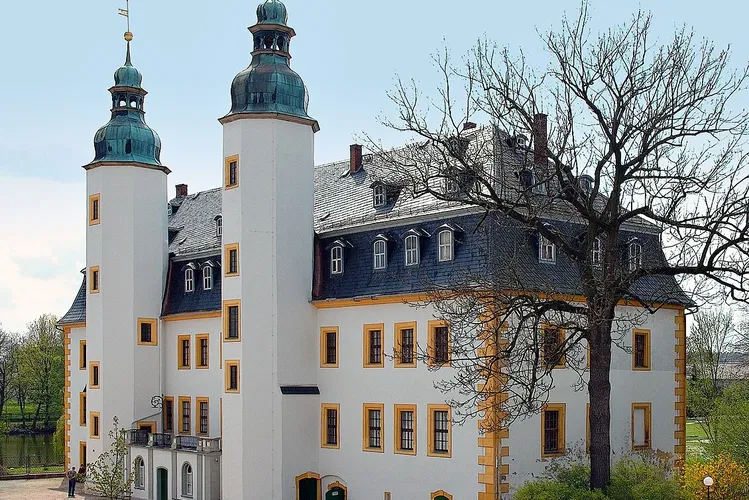
Blankenhain Castle
CrimmitschauBlankenhain Castle, situated near Crimmitschau, is a historical site that was once part of a knight's estate. Today, it houses the German Agricultural Museum, making it a unique museum complex in Germany. This combination of history and agriculture provides a fascinating insight into the country's past and its agricultural practices.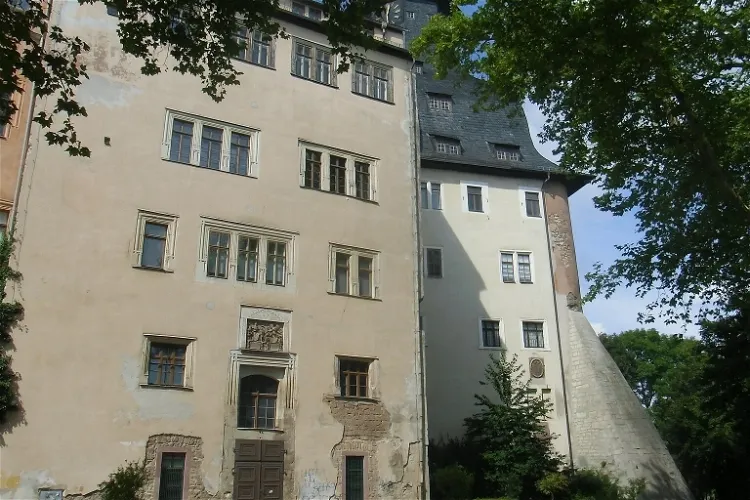
Sondershausen Palace
SondershausenOver the centuries, Sondershausen Palace has undergone numerous architectural transformations, reflecting influences from various periods. The Renaissance influence is evident in the south, east, and old north wings of the palace, which were built between the 1530s and the 1550s. The Baroque style is seen in the alterations and enlargements made to the three Renaissance wings in the 1680s. The Rococo influence is seen in the new west and north wings, which were started in 1764.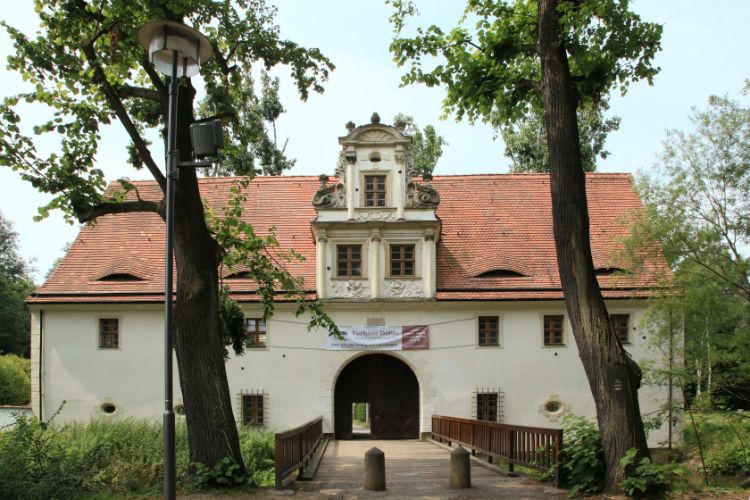
Torhaus Dölitz
LeipzigThe Torhaus Dölitz (Gatehouse Dölitz) is the remnant of a noble residence, the castle Dölitz. Large parts of Dölitz Castle and with it the gatehouse were built in the 17th century. The gatehouse contains a tin figure museum, the collection is one of the three largest publicly accessible worldwide wi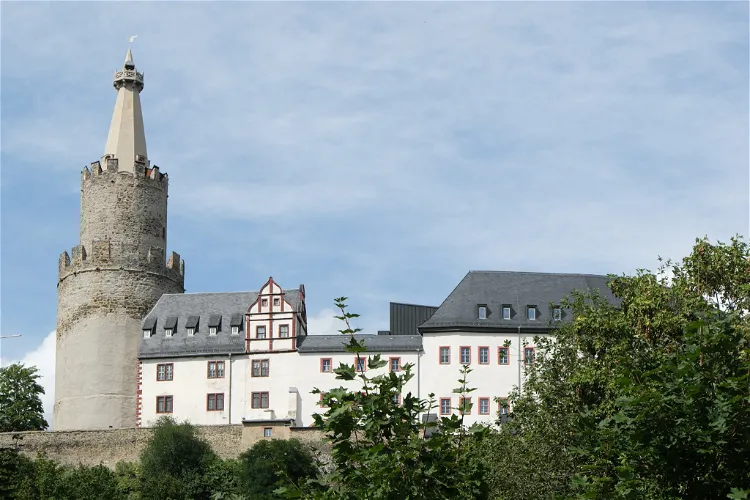
Osterburg (Weida)
WeidaThe Osterburg is a historical castle located on a hill in the center of the city of Weida, in the Thuringian district of Greiz. Its strategic location offers a panoramic view of the city, making it a popular spot for tourists. The castle's history and architecture also provide a glimpse into the region's past.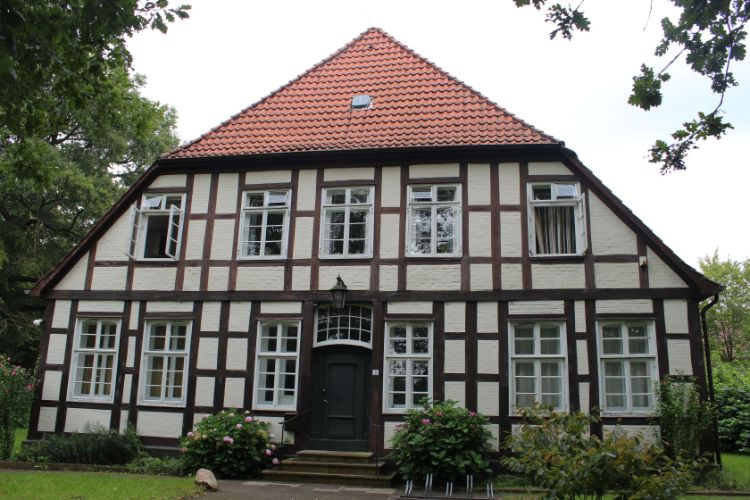
Heimatmuseum Schloss Schönebeck
BremenHeimatmuseum Schloss Schönebeck is a musuem in Bremen that is housed in the Schönebeck Castle, a moated castle built in North German half-timbering. Special exhibitions cover the topics of the history of the former port city of Vegesack, including topics such as sailing, steamboats, herring loggers,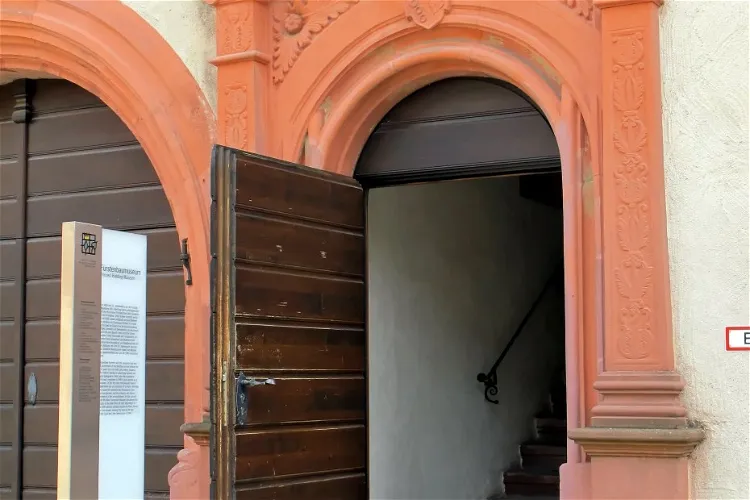
Fürstenbaumuseum
WürzburgThe Fürstenbaumuseum is a component of the Museum for Franconia. It is situated in the eastern wing, known as the Fürstenbau, of the Marienberg Fortress which is located above the city of Würzburg. This location provides a unique setting for the museum and offers visitors a chance to explore the fortress as well.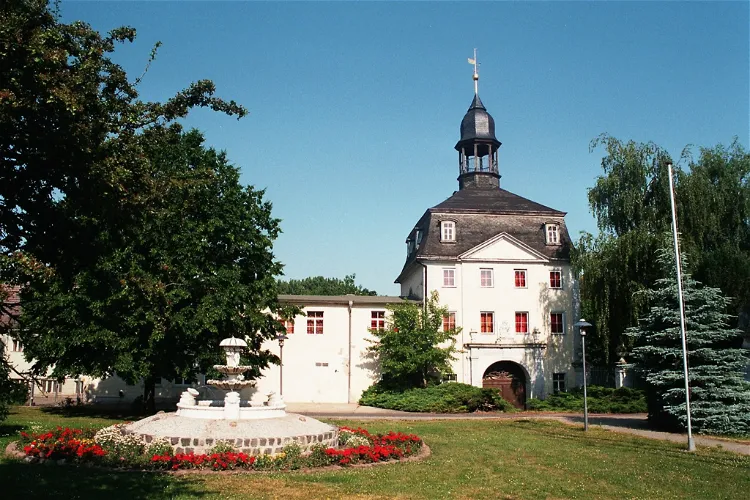
Van de Merwe Museum im Biendorfer Schloss
Bernburg (Saale)Schloss Biendorf is a historical site located in Biendorf, a district of the city of Bernburg in the Salzlandkreis in Saxony-Anhalt. The castle was initially built around 1720 and later expanded in the late Baroque period between 1759 and 1784. This historical monument offers a glimpse into the architectural styles and cultural heritage of the period.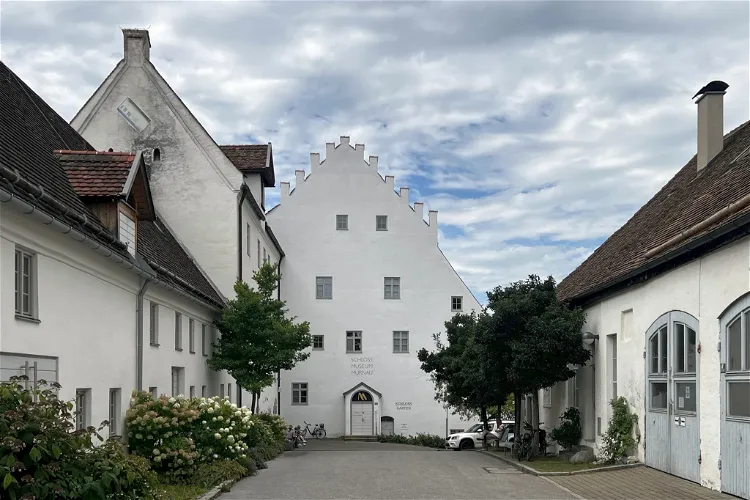
Schlossmuseum Murnau
Murnau am StaffelseeThe Schlossmuseum Murnau is a museum situated in the Bavarian town of Murnau am Staffelsee. It is housed in the Murnau Castle, a structure with a rich history dating back to the Middle Ages. The museum is part of the MuSeenLandschaft Expressionismus, a network of museums dedicated to the Expressionist art movement.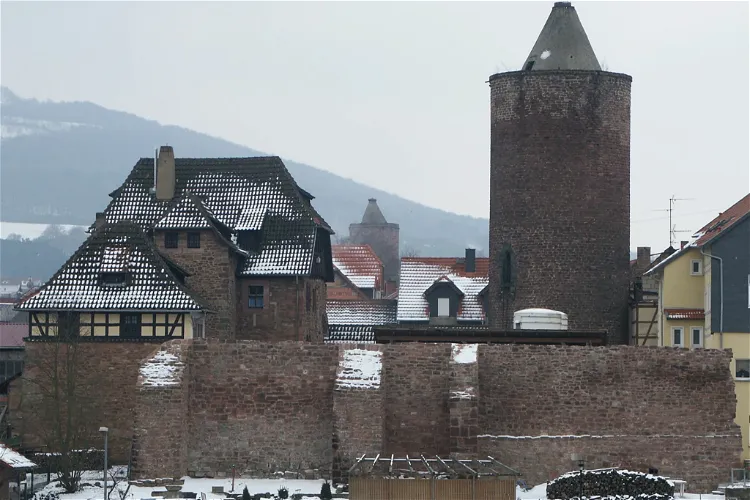
Museum Burg Wendelstein - Vacha
VachaBurg Wendelstein is a castle that was built during the medieval period and is situated in the city of Vacha, in the Wartburgkreis district of Thuringia, Germany. The castle was converted into a city museum in 1986, making it a significant historical and cultural site for visitors to explore.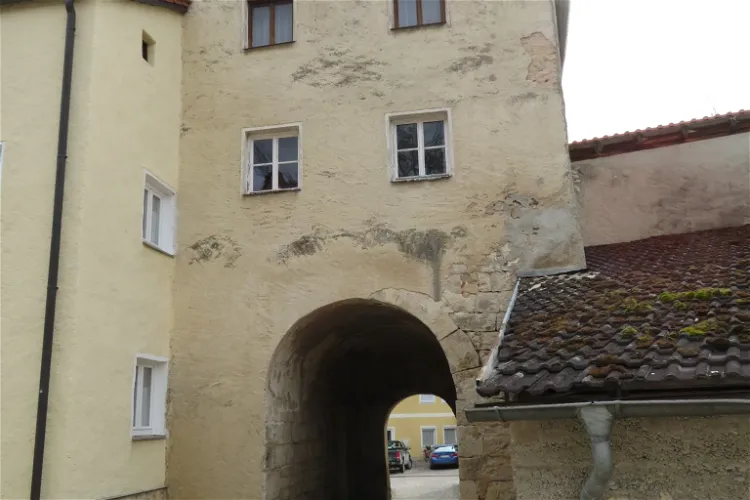
Altmühlzentrum
DollnsteinThe Altmühlzentrum is a museum situated within parts of the Dollnstein Castle and its adjoining open-air area. The museum is dedicated to the history of the location and the surrounding landscape, providing visitors with a comprehensive understanding of the region's past. The museum is accessible through the lower castle courtyard, which is enclosed by a ring wall, and entry is only possible through a medieval gate tower.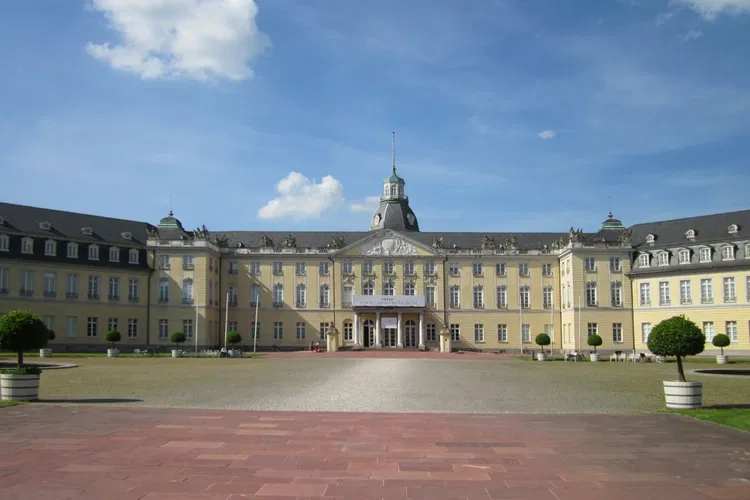
Badisches Landesmuseum
Staufen im BreisgauThe Badisches Landesmuseum, also known as the Baden Regional Museum, is a significant historical and artistic institution in Baden-Württemberg. Established in 1919, the museum is situated within the castle in Karlsruhe, which has been its home since 1921. This museum offers a unique opportunity to delve into the rich history and art of the region.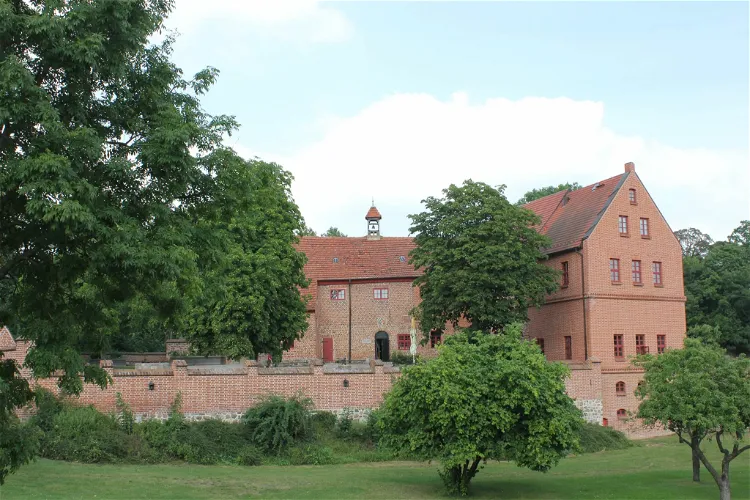
"Old Castle" Penzlin
PenzlinThe Old Castle Penzlin, situated in the city of Penzlin, southwest of Neubrandenburg in Mecklenburg-Vorpommern, is a historical site with a rich past. It offers a unique opportunity for visitors to explore the history of the region and the castle itself.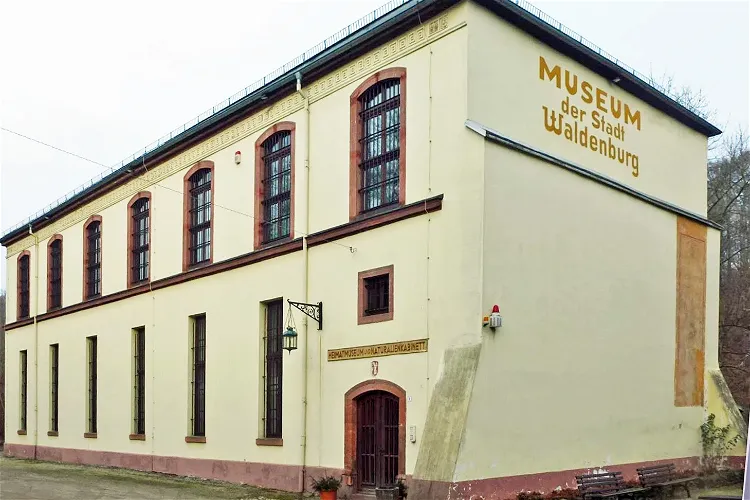
Museum - Natural History Collection Waldenburg
WaldenburgThe Museum – Naturalienkabinett in Waldenburg (Saxony) is home to the Naturalienkabinett of the Princes of Schönburg-Waldenburg. This collection has been housed in the outdoor area of Waldenburg Castle since the 1840s, making it a significant part of the region's history.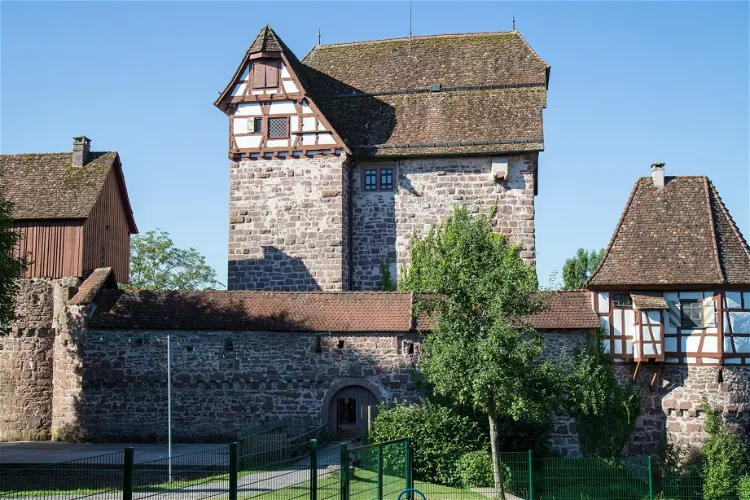
Museum im Alten Schloss
AltensteigSchloss Altensteig is a castle complex situated on the northern edge of the old town of Altensteig, in the Calw district of Baden-Württemberg. This location offers visitors a unique opportunity to explore the historical architecture of the region, while also enjoying the picturesque views of the surrounding area.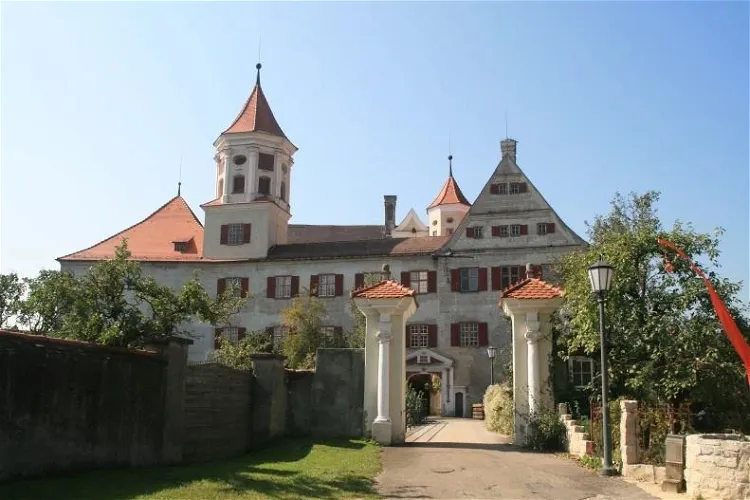
Brenz Castle
Sontheim an der BrenzBrenz Castle, a Renaissance castle, is situated in the Brenz an der Brenz borough of Sontheim in the Heidenheim district of Baden-Württemberg, Germany. This historical structure offers a glimpse into the architectural style of the Renaissance period and is a significant landmark in the region.
Princely Treasury Thurn und Taxis
RegensburgThe Princely Treasury Thurn und Taxis, which was inaugurated in 1998, is a branch of the Bavarian National Museum. This museum is located in the former Marstall of the St. Emmeram Castle in Regensburg. It was established to preserve and display the significant art objects of the Thurn und Taxis house, which were acquired by the Free State of Bavaria in 1993 as a way to settle inheritance taxes.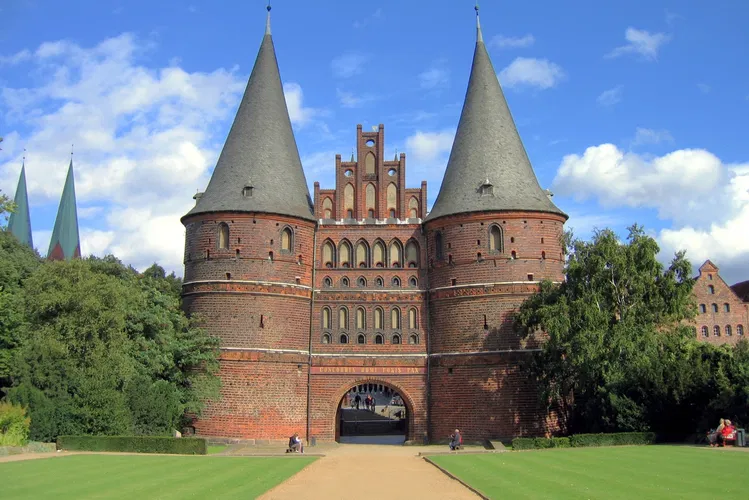
Holstentor
LübeckThe Holstentor is a city gate in Lübeck and is considered one of the most famous landmarks in Germany. This medieval gate is one of the two remaining in the city, the other being the Burgtor. It stands by the Trave river in the middle of Lübeck and was the western gate of the old city walls. The gate is not just an ordinary city gate, but a proper fortification, with high towers and smaller ones in between.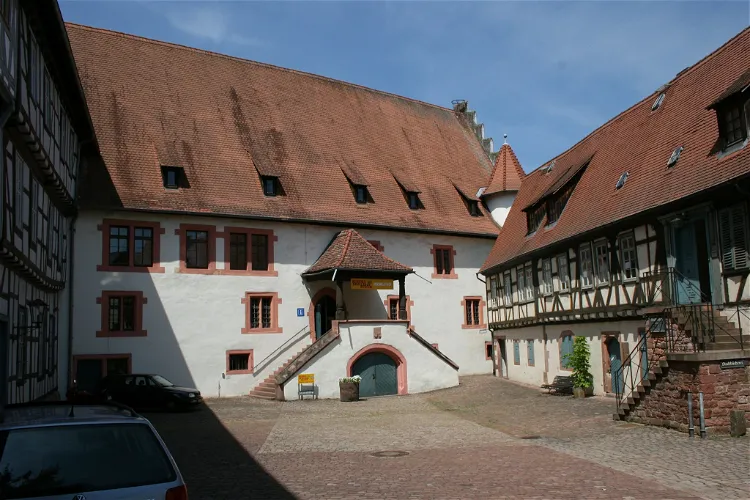
Stadtmuseum Michelstadt
MichelstadtThe Stadtmuseum Michelstadt, previously known as the Odenwald and Toy Museum, is located in a storage building that was part of the former cellar of Michelstadt Castle. This building, which dates back to 1517, provides a historical setting for the museum's exhibits.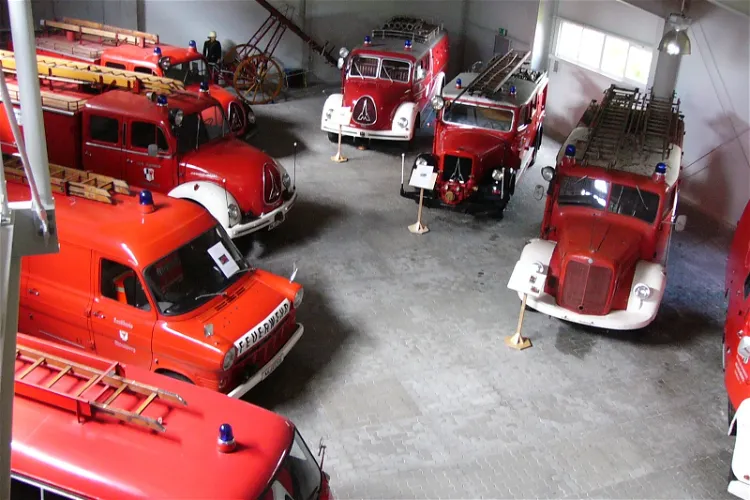
Oberfränkisches Feuerwehrmuseum
SchauensteinThe Oberfränkisches Feuerwehrmuseum is situated in the Schauenstein Castle in the small town of Schauenstein in Upper Franconia. This location provides a unique setting for the museum, combining historical architecture with the rich history of firefighting in the region.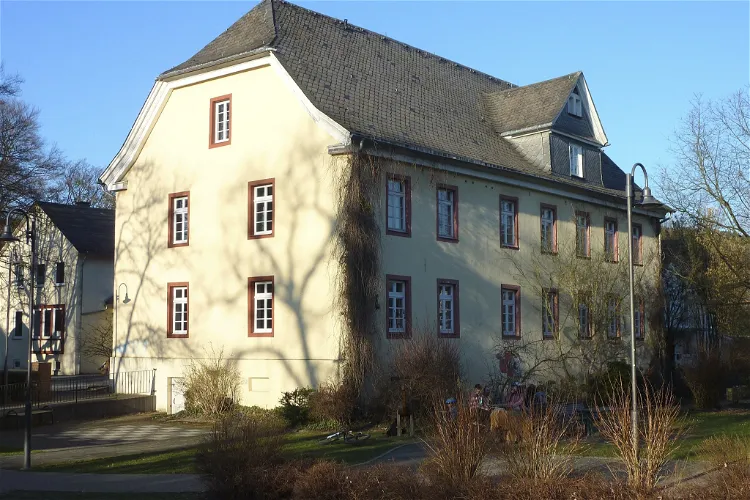
Wilhelmsburg
HilchenbachWilhelmsburg, located in Hilchenbach, is a former Nassau residence and summer palace that was converted into an administrative building in 1776. This well-proportioned, massive Baroque building was constructed on older foundations and features a plastered facade with mineral paint, a slate-covered roof, and wooden mullioned windows. The building's history dates back to 1365, when it was a fortified house, and it was later named Wilhelmsburg after its new owner, Count Wilhelm of Nassau-Siegen-Hilchenbach.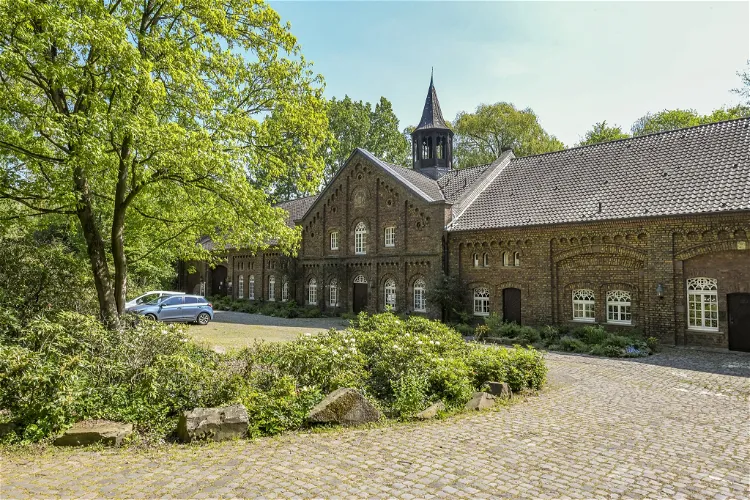
Museum der Stadt Lünen
LünenThe Museum der Stadt Lünen is a city institution located in Lünen, North Rhine-Westphalia, Germany. It displays its collections in over 500 square meters in the former economic building of Schwansbell Castle. The museum offers a wide range of exhibits, including five living rooms from the period between 1840 and 1930, a cast iron collection, a toy and doll collection, a ceramics department, and agricultural and craft tools.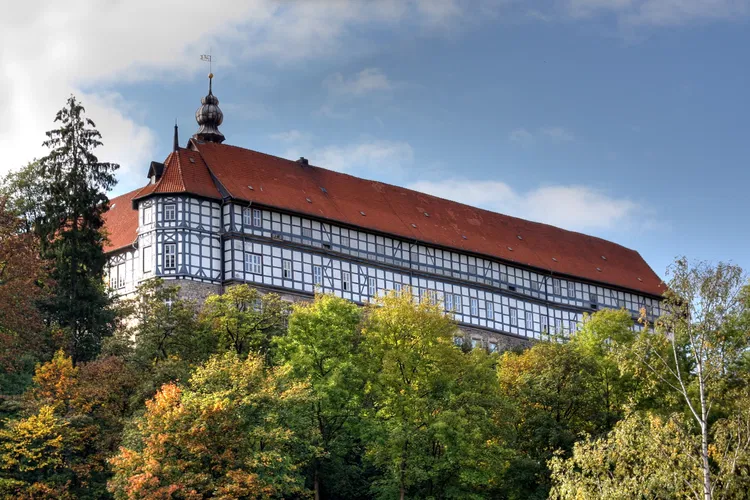
Herzberg Castle
HerzbergHerzberg Castle, situated in Herzberg am Harz, in the district of Osterode am Harz, Lower Saxony, Germany, is a significant historical site. The castle, originally a fortress in the 11th century, has been reconstructed after a major fire in 1510. Today, it consists of four wings and is the largest timber-framed castle in Lower Saxony.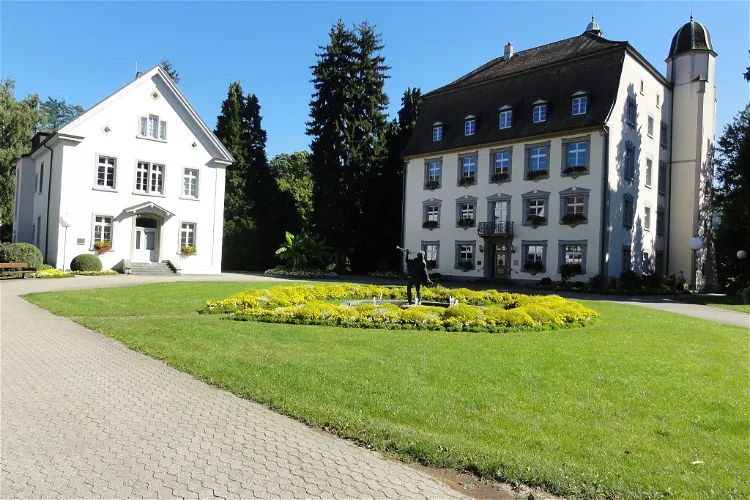
Trompetenmuseum
Bad SäckingenSchloss Schönau, also known as Schönauer Schloss, Schloss Säckingen or Trompeterschlößchen, is a castle located in the spa town of Bad Säckingen in the Waldshut district in Baden-Württemberg. The castle was built from 1600 to 1680 by Hans Kaspar von Schönau and has largely remained intact despite numerous renovations in later years. This historical building offers a glimpse into the architectural style of the 17th century and the changes it underwent over the centuries.
Schlossmuseum Ellwangen
Ellwangen (Jagst)Schloss ob Ellwangen, located in the east of Württemberg, has a rich history dating back to 1460. It served as the residence and seat of power for the Prince-Provosts of the Prince-Provostship of Ellwangen. From 1802/1803 to 1842, it was used as the electoral and royal residence. This historical significance adds to the charm and allure of the castle, making it a fascinating destination for tourists interested in history and architecture.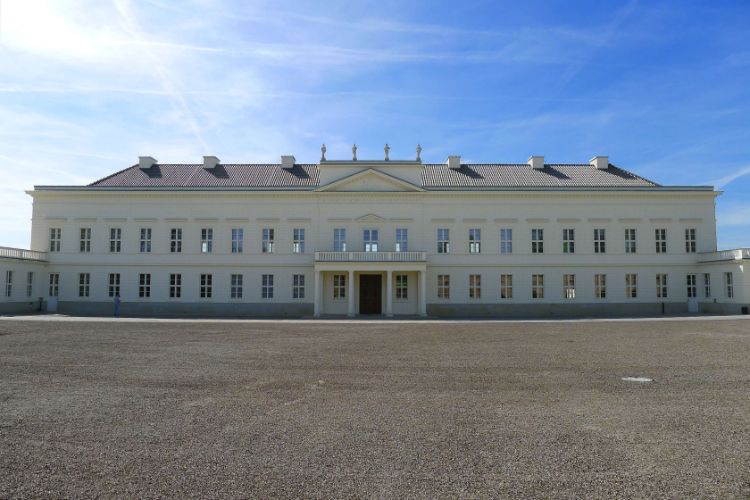
Museum Schloss Herrenhausen
HanoverHerrenhausen Palace was originally a Baroque building from the 17th century. As a result of the air raids on the city of Hannover during the Second World War, the main building burned down completely. The façade of the classical castle was reconstructed and a convention center and museum were establ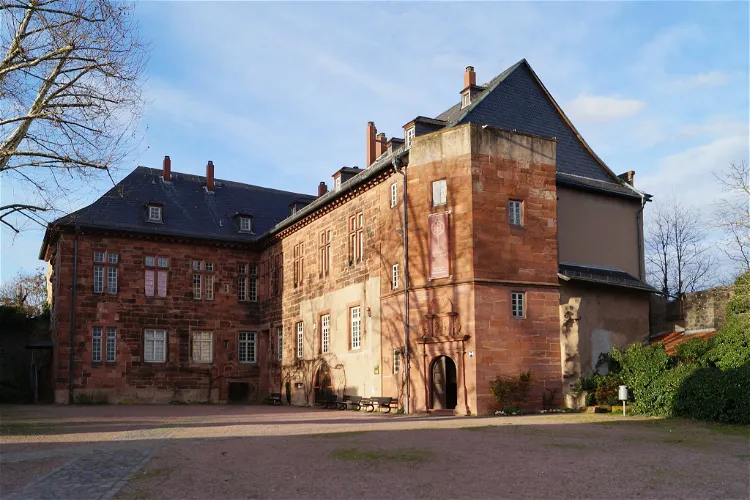
Museum Schloss Steinheim
HanauThe Museum Schloss Steinheim is a historical-archaeological museum situated in the Steinheim Castle in the old town of Hanau-Steinheim. This museum is part of the city of Hanau's museum landscape and is dedicated to the regional prehistory, Roman times, and the history of Steinheim city.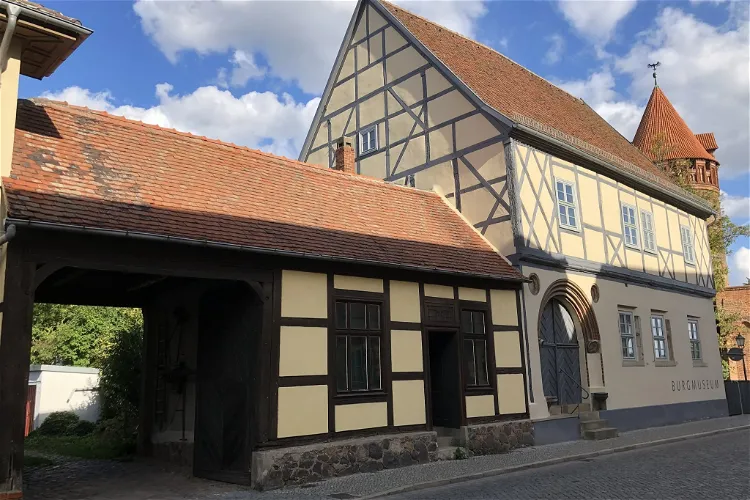
Burgmuseum Schloßfreiheit
TangermündeThe Burgmuseum Schloßfreiheit, located in Tangermünde in Saxony-Anhalt, is a protected former residence that now serves as a museum. It provides a detailed history of the neighboring Tangermünde Castle, making it a significant site for those interested in the region's past.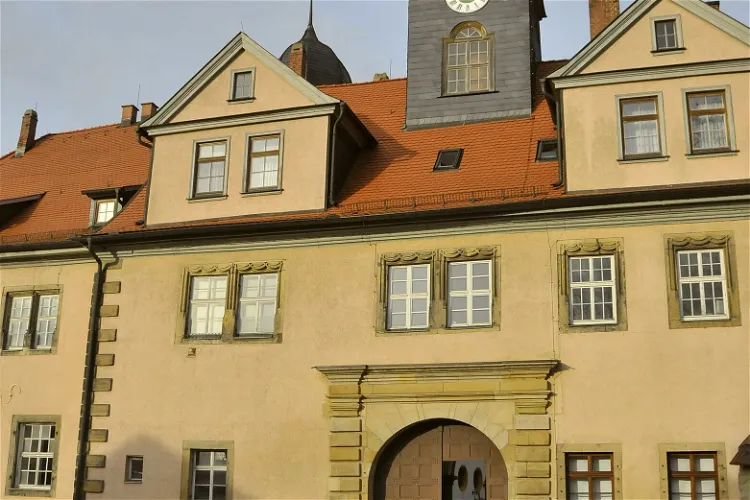
Museum Schloss Tenneberg
WaltershausenSchloss Tenneberg, located in the city of Waltershausen in Thuringia, is a medieval castle that has seen multiple transformations over the centuries. Today, it serves as a museum, offering a unique glimpse into the region's rich history. The castle's strategic location on the northern edge of the Thuringian Forest made it an important stronghold in the past. Now, it offers visitors a chance to step back in time and explore the various facets of its past.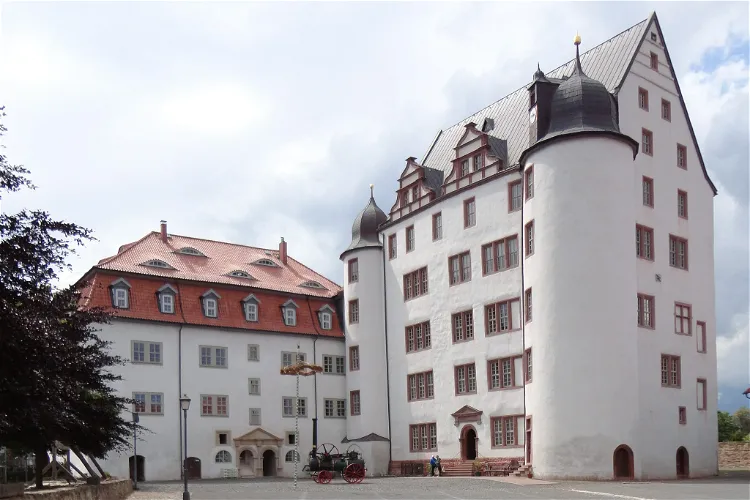
Schloss Heringen
Heringen/HelmeSchloss Heringen is a significant historical site located in the Thuringian town of Heringen/Helme. The castle complex, which dates back to the Renaissance period, was first mentioned in a document from the Fulda Monastery in 1155. This makes it a site of considerable historical interest, offering visitors a glimpse into the region's past.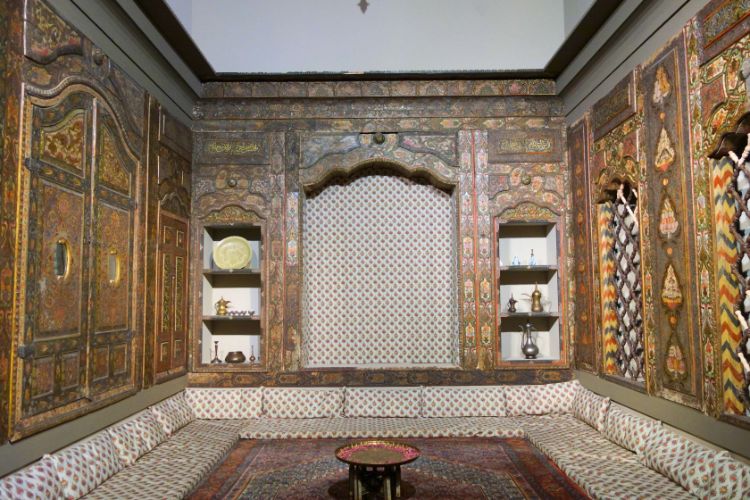
Dresden Museum of Ethnology
DresdenThe Dresden Museum of Ethnology (Museum für Völkerkunde Dresden) is a museum in Dresden in Germany that holds and exhibits an ethnographic collection with more than 90,000 pieces from all over the world, including numerous precious, irreplaceable testimonies of long-lost cultures. The museum present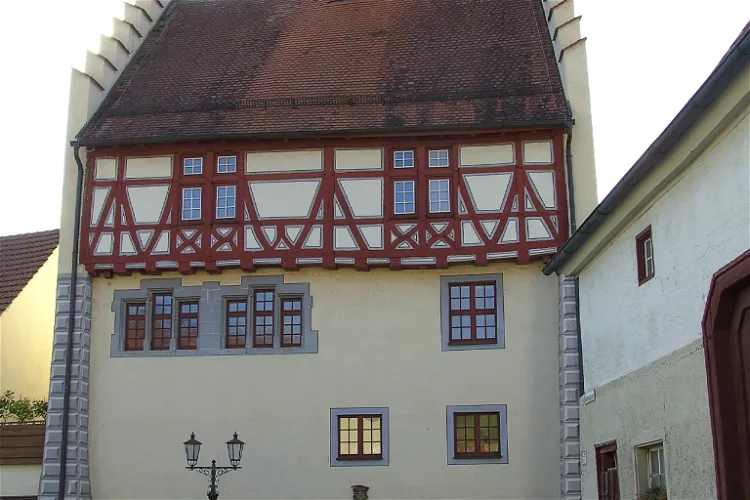
Museum Oberes Donautal im Ifflinger Schloss
Fridingen an der DonauThe Ifflinger Schloss, located in the municipality of Fridingen an der Donau, is a residential tower castle with a rich history. It was constructed around the year 1330 by Heinrich von Hohenberg, complete with an enclosure and a moat. This historical structure offers a glimpse into the architectural styles and defensive strategies of the Middle Ages.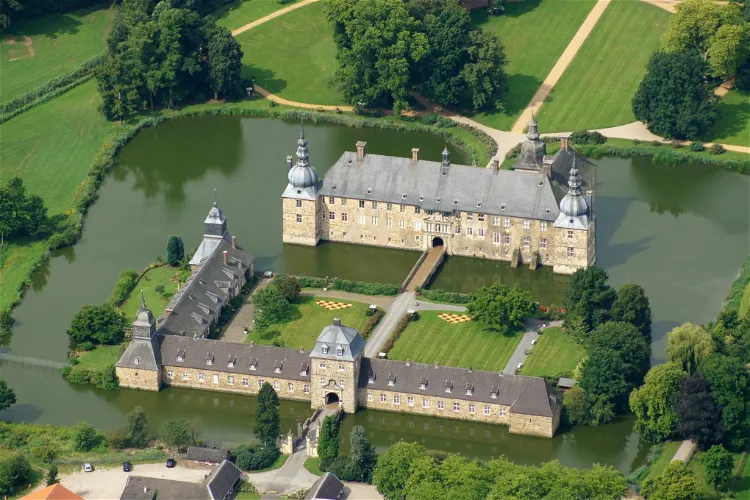
Lembeck Castle
DorstenLembeck Castle, also known as Slot Lembeck, is a moated castle located in the town of Dorsten in the German state of North Rhine-Westphalia. It is situated in the Kreis Recklinghausen, on the western edge of the Naturpark Hohe Mark, a forested area between Dorsten and Haltern am See. The castle is surrounded by a moat, making it a Wasserburg, and consists of a main building and an L-shaped outer bailey (Vorburg).
Ostholstein-Museum
EutinThe Ostholstein-Museum Eutin is a significant art museum located in the district of Ostholstein, Schleswig-Holstein. It is housed in the former Marstall building, which is situated at the castle square of the Eutin Castle. This location adds a historical charm to the museum, making it an interesting destination for tourists who appreciate both art and history.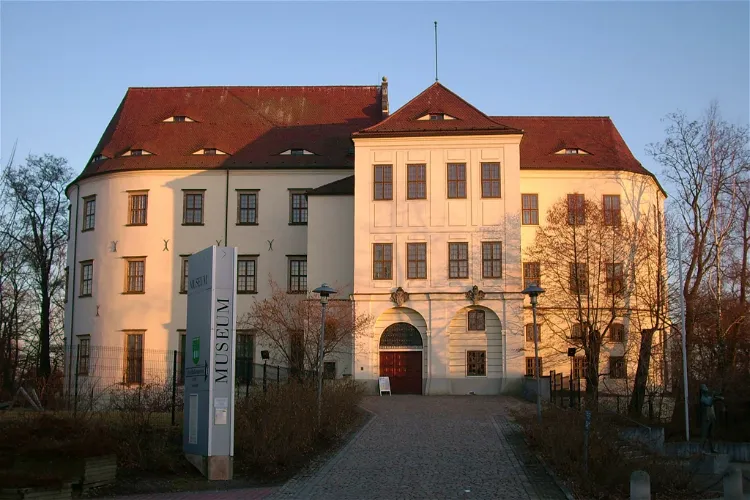
Stadtmuseum Hoyerswerda
HoyerswerdaThe Hoyerswerda Castle, situated in the heart of Hoyerswerda's old town, has been primarily used as the Stadtmuseum since the 1950s. This historic building, which has undergone several transformations since its original construction in the 13th century, now serves as a repository of the city's history and culture. Visitors can explore the museum's permanent exhibition, which sheds light on the city's past and the artistic work of honorary citizen Jürgen von Woyski.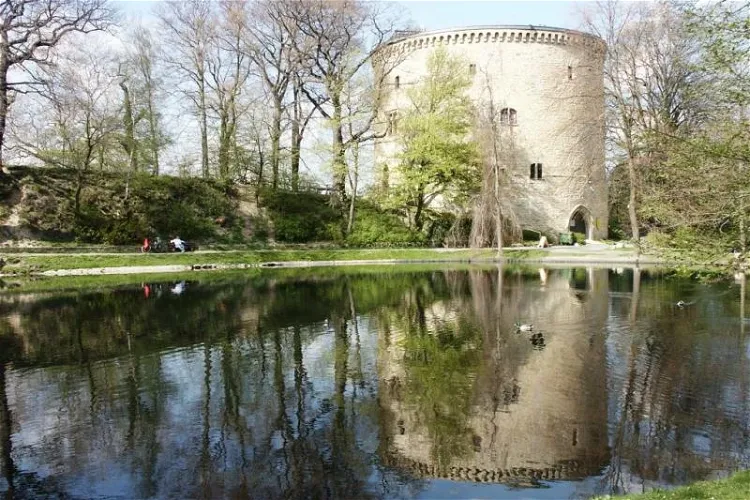
Zwinger
GoslarThe Zwinger in Goslar, Germany, is a significant historical site, serving as a battery tower that was part of the fortifications of the old imperial city. Constructed in 1517, this tower stands as a testament to the city's rich history and architectural prowess of the time.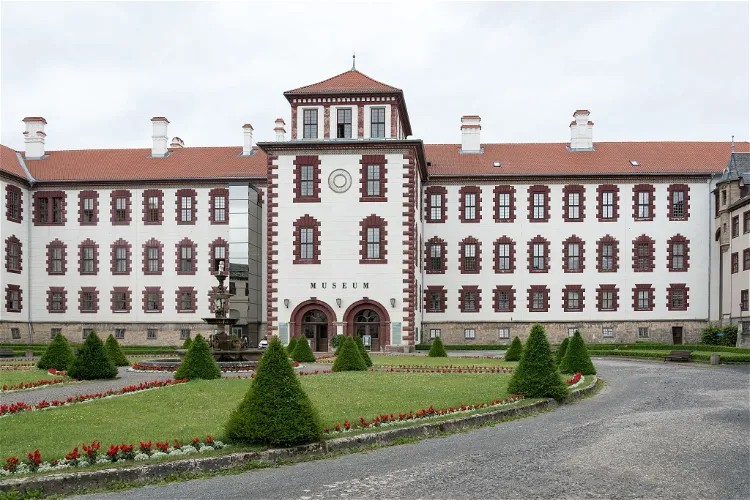
Meininger Museen
MeiningenThe Meininger Museen is a combination of three cultural-historical museums located in the district town of Meiningen. It is the largest museum in southern Thuringia and houses the most extensive art collection in Thuringia. The main part of the museum, divided into four sections, is located in Elisabethenburg Castle, the former residence of the Dukes of Saxe-Meiningen.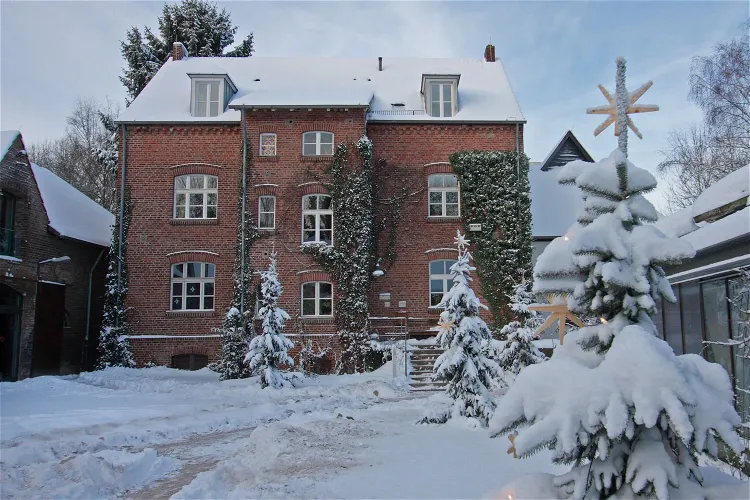
NaturGut Ophoven
LeverkusenNaturGut Ophoven, located in Leverkusen, is an environmental education center that caters to both children and adults. The center was established in 1984 on the grounds of an old manor in the Opladen district. This location offers a unique blend of history and nature, making it an interesting destination for tourists.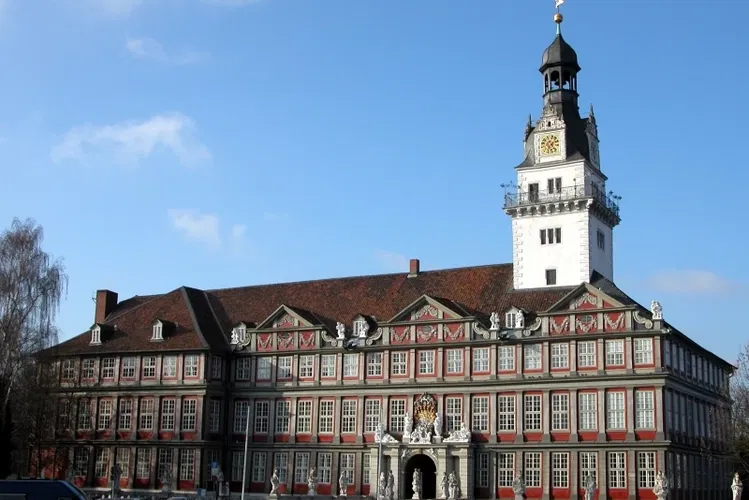
Schloss Wolfenbüttel
WolfenbüttelSchloss Wolfenbüttel, located in Lower Saxony, is the second largest castle in the region. The castle is characterized by its four wings that are arranged around a central courtyard. This architectural feature provides a unique layout that is both visually appealing and historically significant.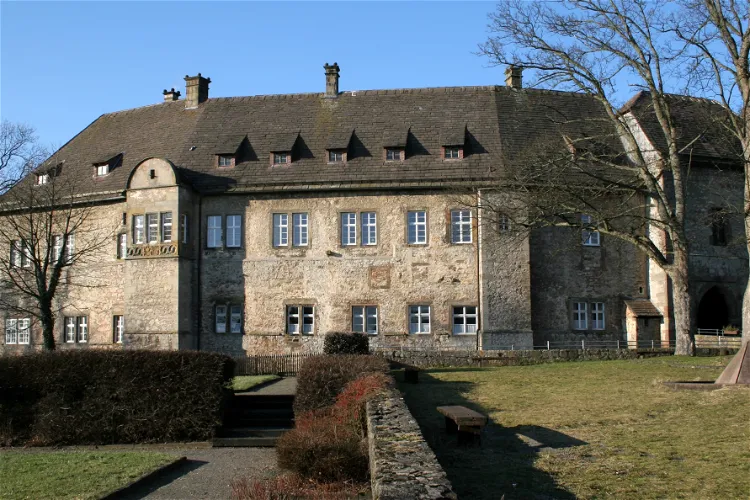
Burg Dringenberg
Bad DriburgBurg Dringenberg is a significant historical site located in Dringenberg, in the Höxter district of North Rhine-Westphalia. This medieval castle was one of the most important national castles of the Paderborn bishopric, playing a crucial role in the region's history. Visitors can explore the castle's robust defensive wall and tower, known as the 'Hungerturm', and enjoy the panoramic views of the valley below.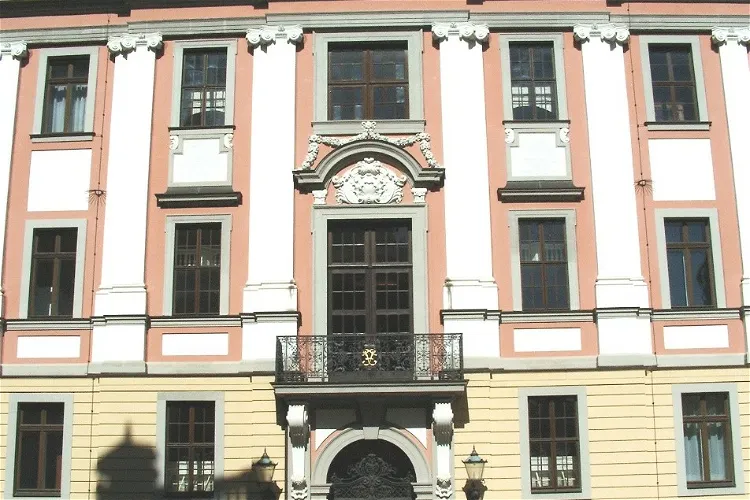
Castle and playing card museum
AltenburgThe Altenburg Castle, known in German as Schloß Altenburg, is a historic monument located in the city of Altenburg, in the Thuringia region of Germany. This castle is a significant part of the city's history and offers a glimpse into the past.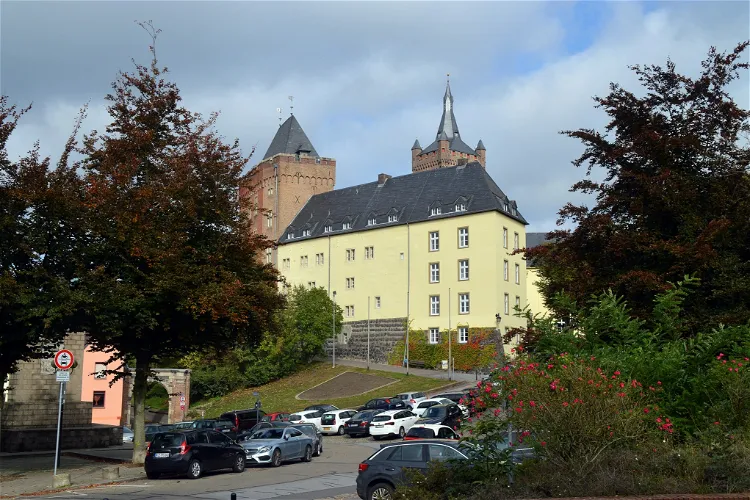
Swan Castle
ClevesSchwanenburg, also known as Swan Castle, is a significant landmark in the city of Cleves, situated in North Rhine-Westphalia, near the Dutch border. This location makes it easily accessible for tourists from both Germany and the Netherlands. The castle's rich history and its emblematic status in the city make it a fascinating destination for those interested in architecture, history, and culture.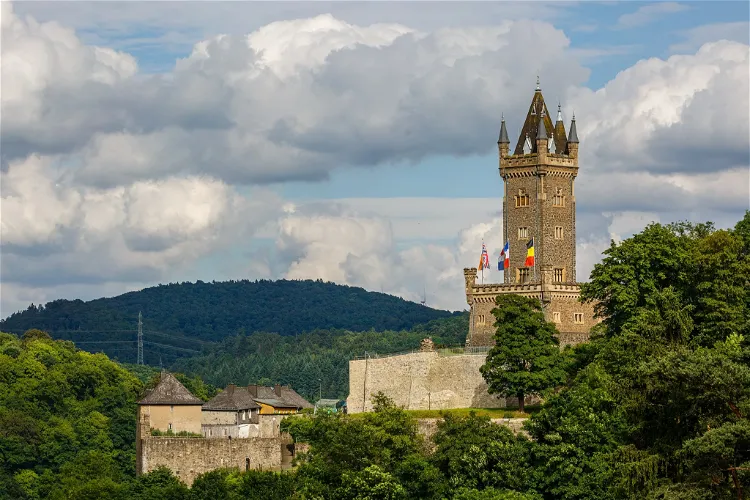
Wilhelmsturm
DillenburgThe Wilhelmsturm, standing at a height of 37 meters, is the present-day landmark of the city of Dillenburg, located in the Lahn-Dill district of central Hesse. This tower, named after Wilhelm I of Orange, is prominently visible on the approximately 270-meter high Schlossberg, which rises southwest of the old town of Dillenburg.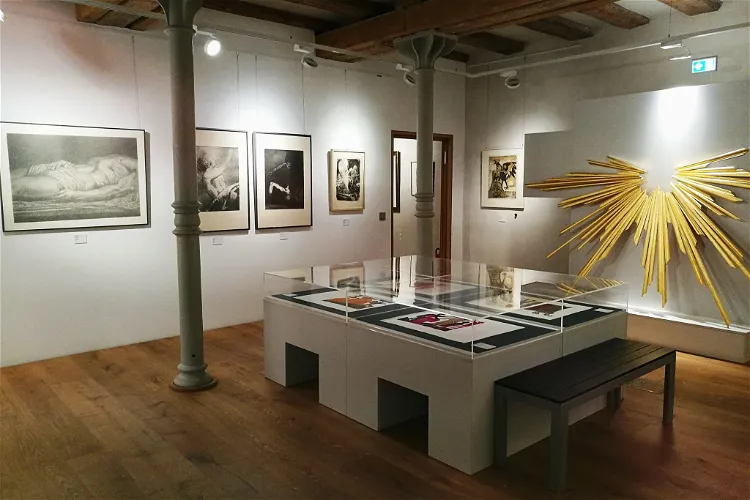
Christian Art Foundation
WittenbergThe Christian Art Foundation Wittenberg is home to a significant collection of Christian art graphics. These works, which contain religious-existentialist content, are by internationally renowned artists from the 20th century to the present. This collection provides a unique opportunity for visitors to explore the intersection of faith and art through the works of some of the most influential artists of the past century.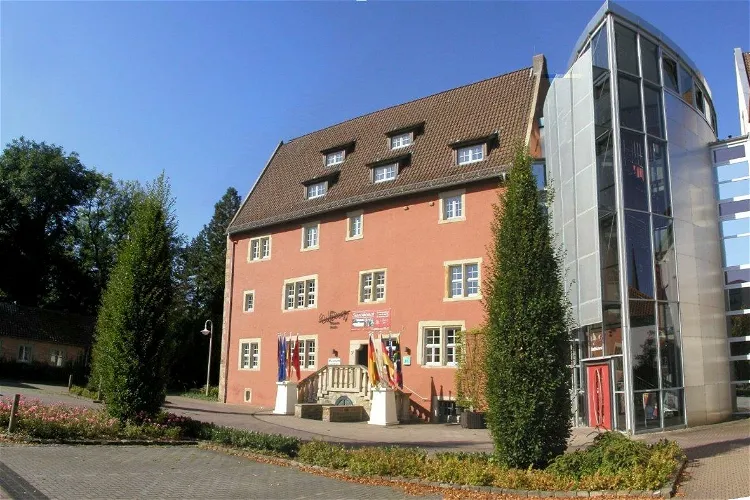
Die Eulenburg. Museum Rinteln
RintelnDie Eulenburg in Rinteln is a historic building with a rich history. It is believed to have originated from a medieval residential tower from the time of the city's foundation in the 13th century. This makes it one of the oldest and most significant buildings in the city, offering a unique glimpse into the past.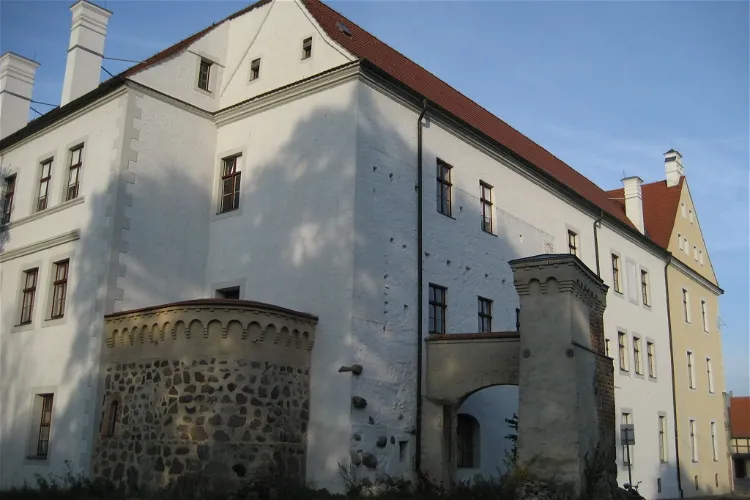
Museum und Schloss Penkun
PenkunSchloss Penkun is a castle and manor house situated in the northwest of the city, nestled between the Landesstraße 283 and the Schlosssee. This location offers a picturesque setting for visitors, with the castle's grandeur complemented by the surrounding natural beauty.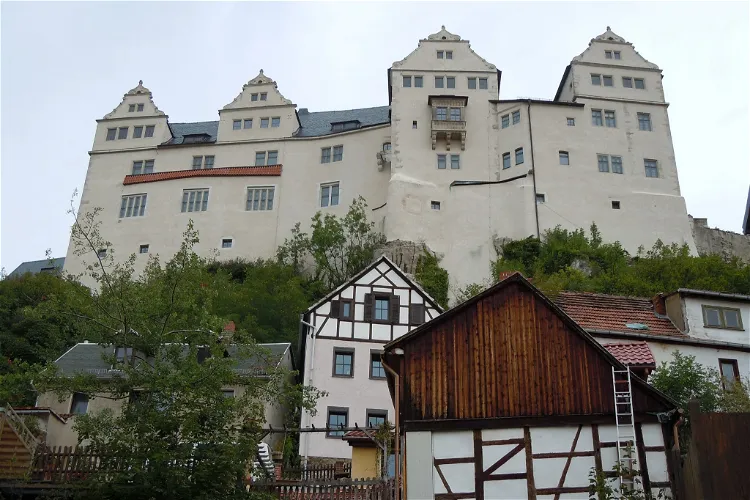
Museum Burg Ranis
RanisBurg Ranis is a castle situated on a ridge near the Thuringian city of Ranis, a short distance from Pößneck. This location offers a unique vantage point and a scenic view of the surrounding area, making it an interesting destination for tourists who appreciate historical architecture and natural beauty.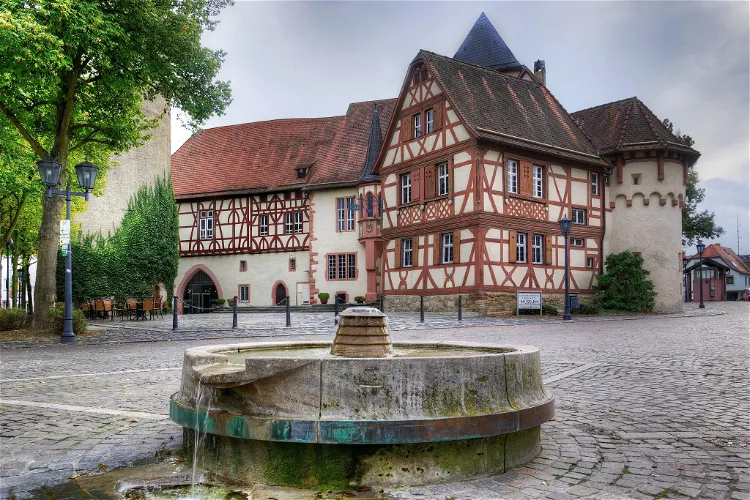
Tauberfränkisches Landschaftsmuseum
TauberbischofsheimThe Tauberfränkisches Landschaftsmuseum, located in the Kurmainzisches Schloss in Tauberbischofsheim in the Main-Tauber district, has been a significant cultural institution since 1970. This historic castle setting provides a unique backdrop for the museum's diverse exhibits.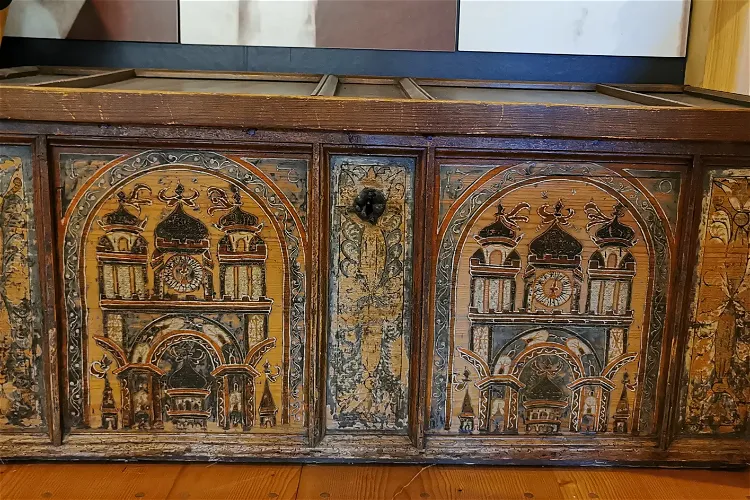
Prientalmuseum im Schloss Hohenaschau
Aschau im ChiemgauThe Priental Museum, situated in Hohenaschau Castle in Chiemgau, is a local history museum. It provides a unique opportunity for visitors to delve into the rich history of the region. The castle itself is a significant historical site, adding to the overall experience of the museum visit.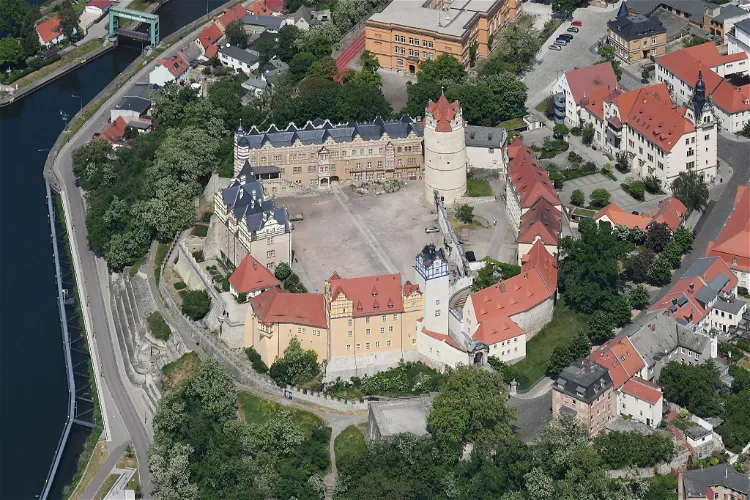
Museum Schloss Bernburg
Bernburg (Saale)Schloss Bernburg, also referred to as the 'Crown of Anhalt', is a Renaissance castle situated in Bernburg (Saale), Saxony-Anhalt. The castle is perched on towering sandstone cliffs above the eastern bank of the Saale, marking the location of a former ford. This historic site offers a unique blend of natural beauty and architectural grandeur, making it a fascinating destination for visitors.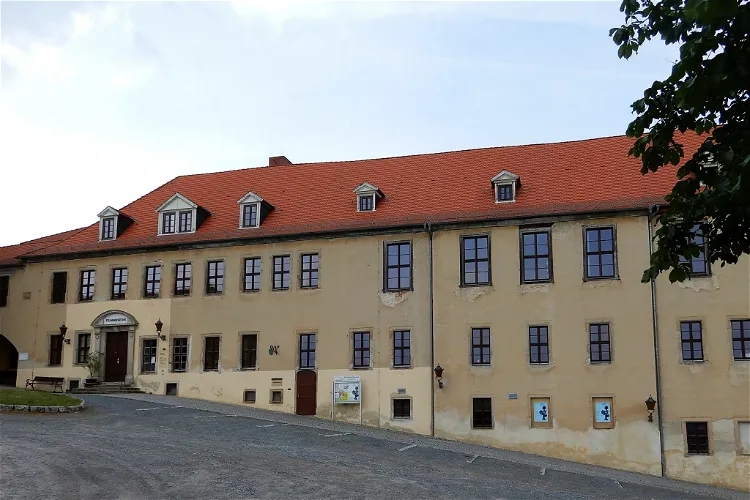
Filmmuseum Schloss
BallenstedtThe Filmmuseum Schloss Ballenstedt is a unique film museum situated in the city of Ballenstedt in Saxony-Anhalt, Germany. It offers a deep dive into the history of film, making it an interesting destination for film enthusiasts and history buffs alike.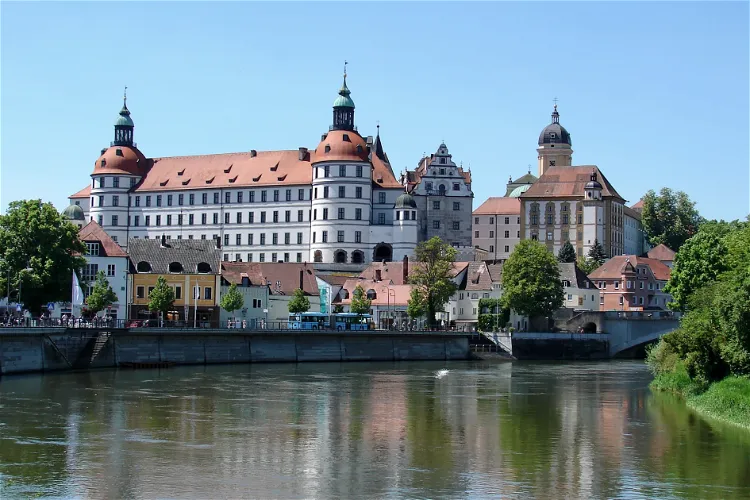
Neuburg Castle
Neuburg an der DonauIn 1527, Count Palatine Otto Henry initiated a significant transformation of the Neuburg Castle. He ordered the castle to be redesigned into a Renaissance palace, aiming to elevate its artistic quality and status. As a result, the castle became one of the most important palaces in Germany during the first half of the 16th Century.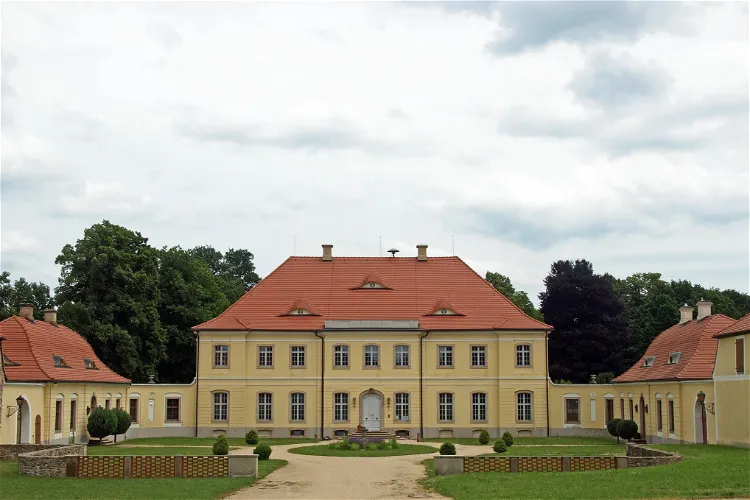
Barockschloss Königshain
KönigshainThe Barockschloss Königshain, also referred to as Neues Schloss Königshain, is one of two castles located in the community of Königshain, situated in the Görlitz district. This region is part of Upper Lusatia, an area in eastern Saxony. The castle is a significant part of the local history and architecture, offering visitors a glimpse into the past.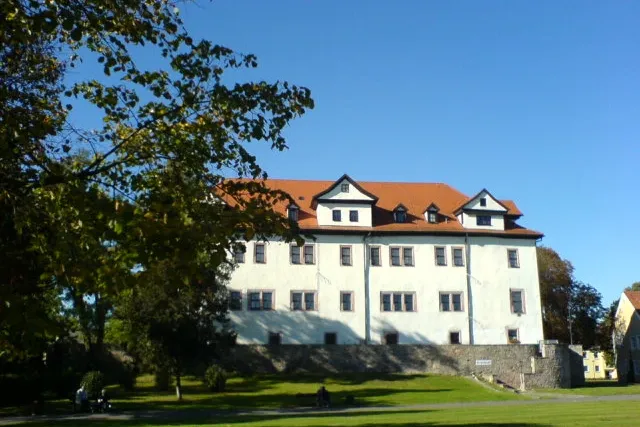
Regionalmuseum im Schloss zu Bad Frankenhausen
Bad Frankenhausen/KyffhäuserThe castle in Bad Frankenhausen, located in Thuringia, was once a secondary residence of the House of Schwarzburg-Rudolstadt. Today, it serves as the home of the Kyffhäuserkreis Regional Museum. This historical site offers a glimpse into the past, showcasing the rich history of the region.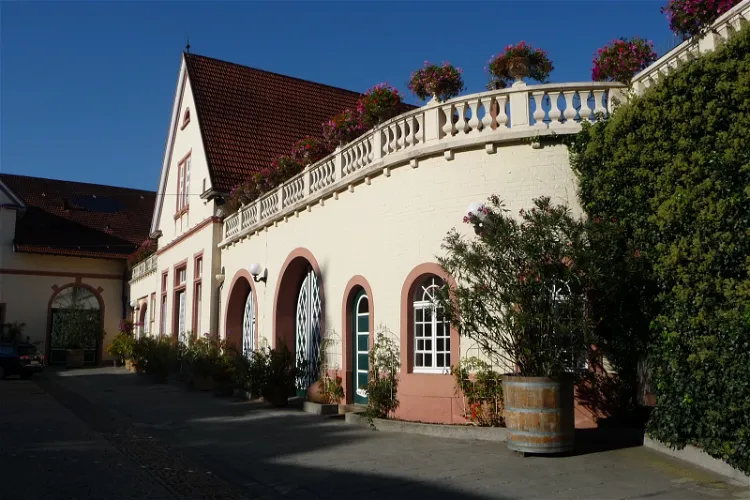
Schloss Wachenheim
Wachenheim an der WeinstraßeSchloss Wachenheim is a castle situated in the small town of Wachenheim an der Weinstraße. It is recognized as a cultural monument, making it a significant historical site for visitors interested in the rich cultural heritage of the region.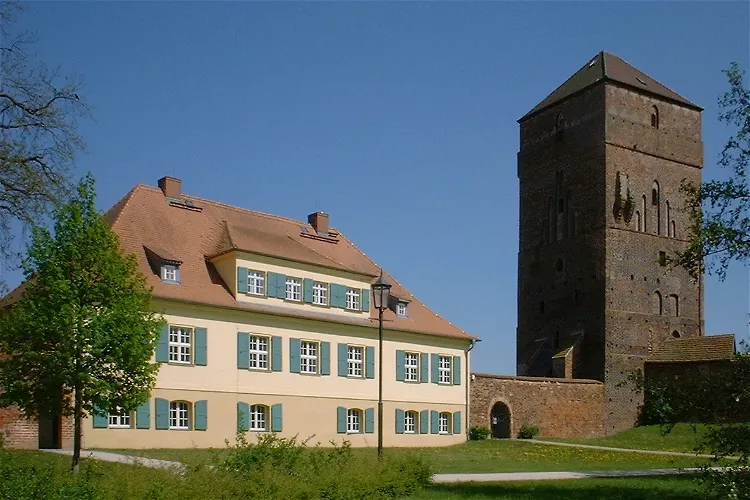
Museum des Dreißigjährigen Krieges
Wittstock/DosseThe Museum of the Thirty Years' War is situated in the seven-story tower of the late medieval Old Bishop's Castle in Wittstock an der Dosse. This location is significant as it was one of the scenes of the Thirty Years' War, which took place from 1618 to 1648.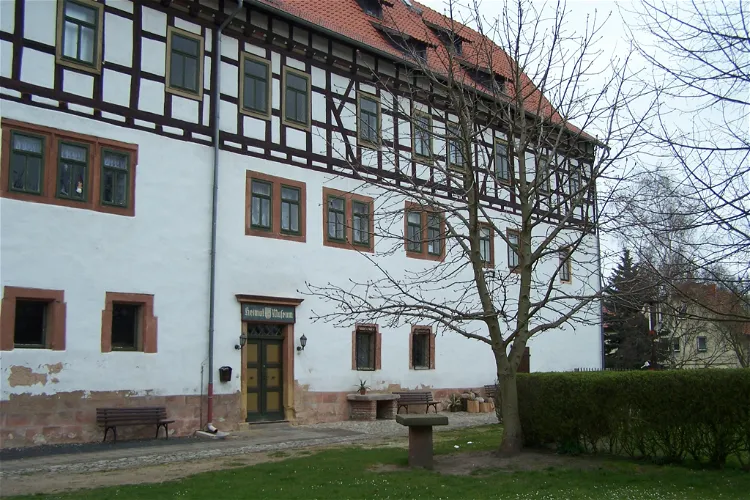
Werratalmuseum
GerstungenThe Werratalmuseum Gerstungen is a regional museum that was established in 1932. It is situated in the premises of a former castle in the municipality of Gerstungen, located in the Wartburgkreis in Thuringia. This museum offers a unique opportunity to explore the rich history and culture of the region.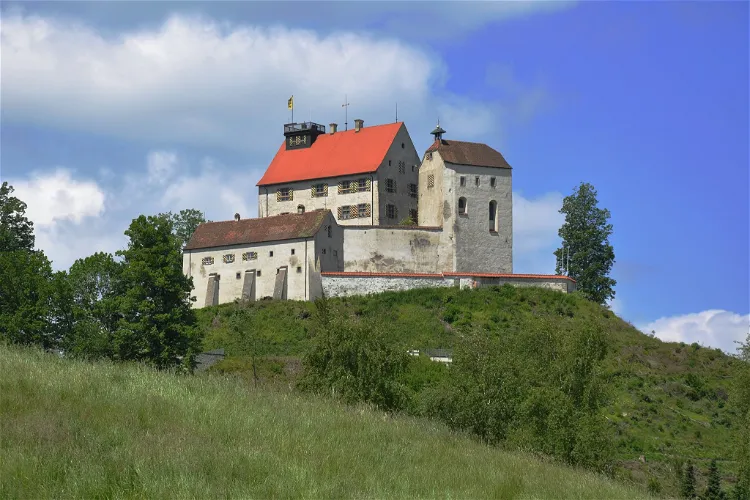
Waldburg Castle
WaldburgWaldburg Castle, a 12th-century structure, is the ancestral home of the House of Waldburg. It is recognized as one of the best preserved medieval buildings, offering a unique glimpse into the past. The castle's rich history and architectural grandeur make it a fascinating destination for history enthusiasts and architecture lovers alike.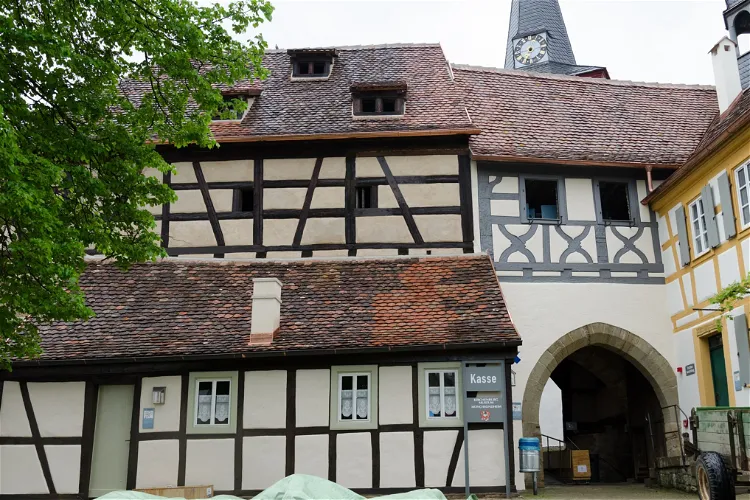
Freilandmuseum Kirchenburg Mönchsondheim
IphofenThe Kirchenburg Museum is an open-air museum situated in the charming town of Mönchsondheim, nestled in the southeastern part of the Kitzingen district in the Steigerwald foothills. This location offers a unique blend of cultural heritage and natural beauty, making it an ideal destination for those interested in history, architecture, and nature.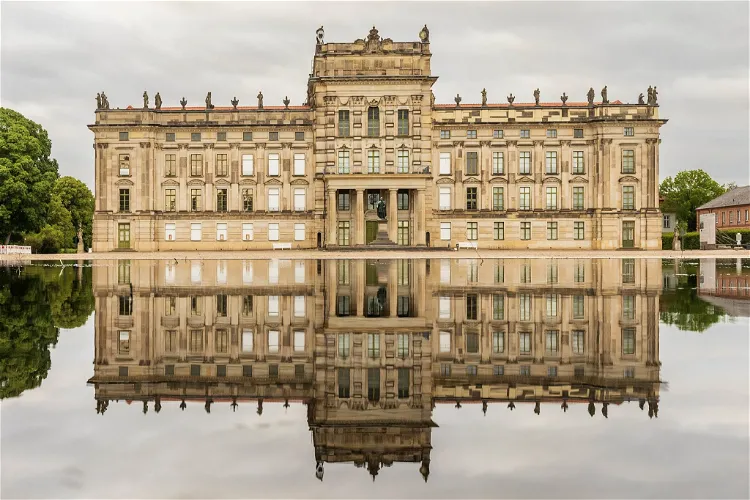
Ludwigslust Palace
LudwigslustLudwigslust Palace, situated in the city of Ludwigslust in Mecklenburg-Western Pomerania, Northern Germany, has a rich history that dates back to its original use as a hunting lodge. This historical context adds a unique charm to the palace, making it an interesting destination for tourists who appreciate history and architecture.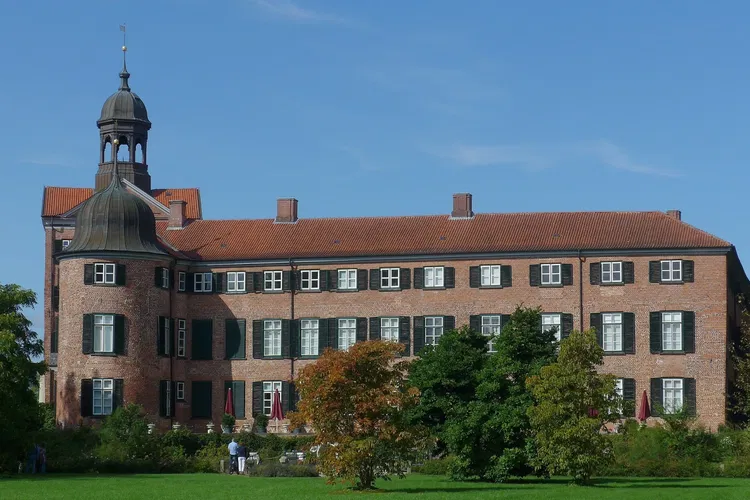
Eutin Castle
EutinSchloss Eutin, also known as Eutiner Schloss, is a castle located in the town of Eutin in the state of Schleswig-Holstein, Germany. It is situated to the east of the town, on the Großer Eutiner See. The castle has a rich history dating back to the 12th century, with its construction being a result of disputes between the city of Lübeck and its citizens, and the bishops of Lübeck.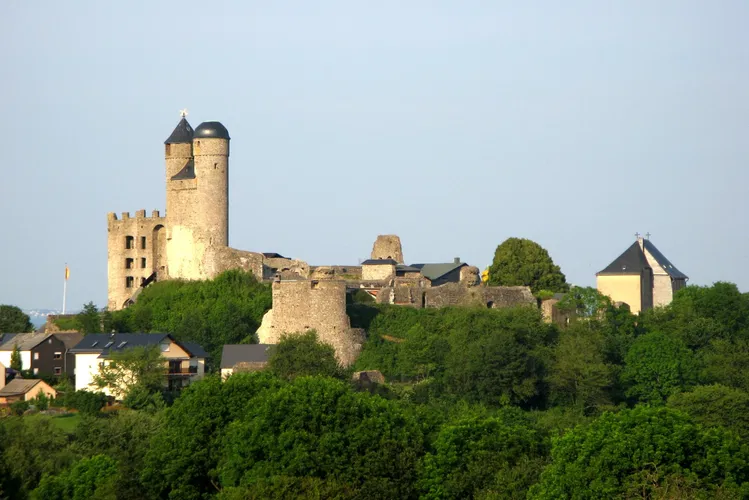
Greifenstein Castle (Hesse)
GreifensteinGreifenstein Castle, situated in the village of Greifenstein in the county of Lahn-Dill-Kreis in Middle Hesse, Germany, is a significant landmark. It is a geo point in the national geopark of Westerwald-Lahn-Taunus and stands on a hill in the Dill Westerwald, offering a splendid view over the Dill valley. At 441 m above sea level, it is the highest castle in the county of Lahn-Dill and is easily visible from the A 45 motorway.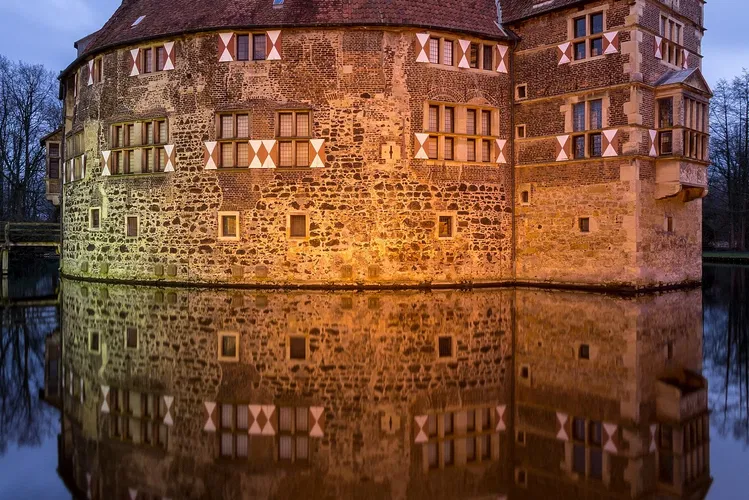
Vischering Castle
LüdinghausenVischering Castle, located in the German town of Lüdinghausen in North Rhine-Westphalia, is a Wasserburg type castle. It was constructed in 1271 with the primary purpose of defense. This historical structure offers a glimpse into the architectural style and defensive strategies of the 13th century, making it a fascinating destination for history enthusiasts.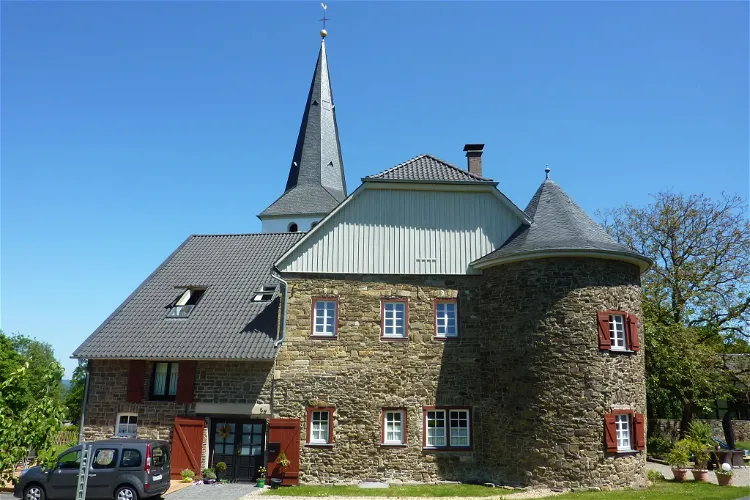
Burg Honrath
LohmarBurg Honrath is a historical site located in the city of Lohmar, within the Rhein-Sieg district of North Rhine-Westphalia. This castle house is nearly completely preserved, offering a glimpse into the architectural style and history of former hilltop castles in the region.
German Ivory Museum Erbach
ErbachThe German Ivory Museum in Erbach, located in the Odenwald region, is dedicated to the art and craft of ivory and ivory carvings. This museum is a testament to the long-standing tradition of ivory craftsmanship in the town, offering visitors a unique insight into this intricate art form.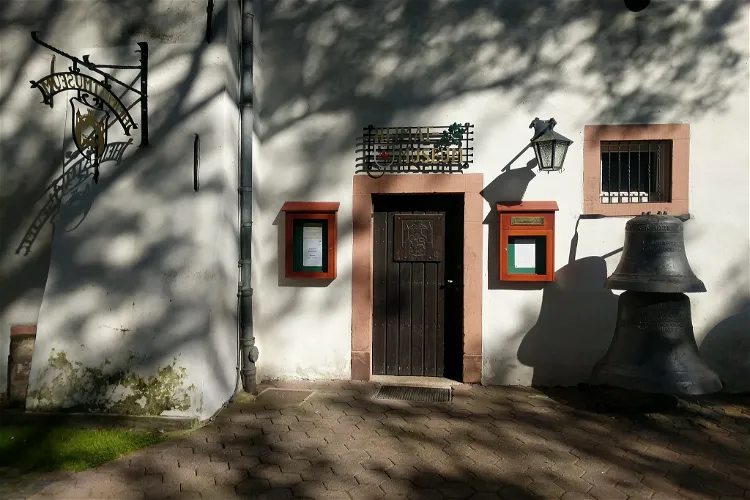
Heimatmuseum Moringen
MoringenThe Heimatmuseum Moringen is a local history museum situated in the town of Moringen, within the district of Northeim in Lower Saxony, Germany. This museum is a great place to learn about the local history and culture of the region.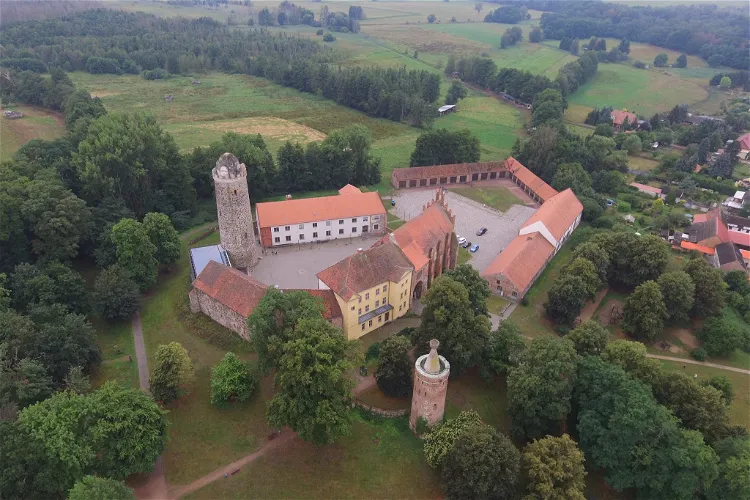
Bischofsresidenz Burg
ZiesarBurg Ziesar is a significant historical site, being one of the few preserved bishop's residences in Brandenburg. It is situated on the eastern bank of the Kobser Bach, offering a picturesque setting for visitors. The castle's location and its historical significance make it a fascinating destination for those interested in history and architecture.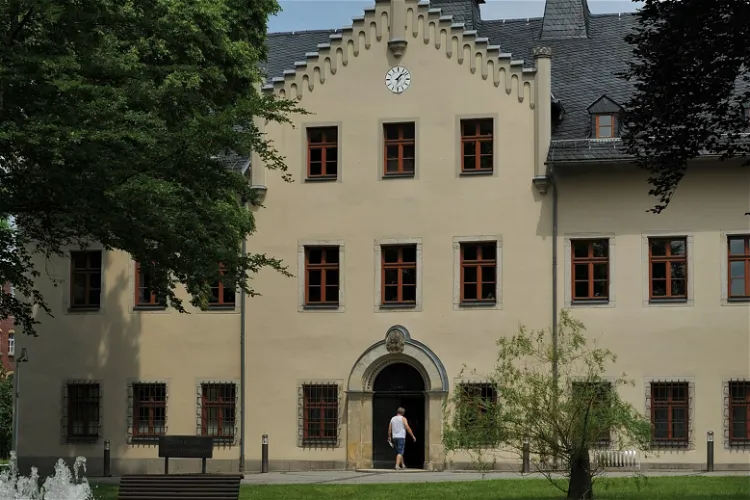
Heimatmuseum Falkenstein
Falkenstein/VogtlandThe Heimatmuseum Falkenstein is a museum with a regional focus, situated in the city of Falkenstein, within the Vogtland district of the Free State of Saxony. This location makes it a central point of interest for visitors interested in the history and culture of the region.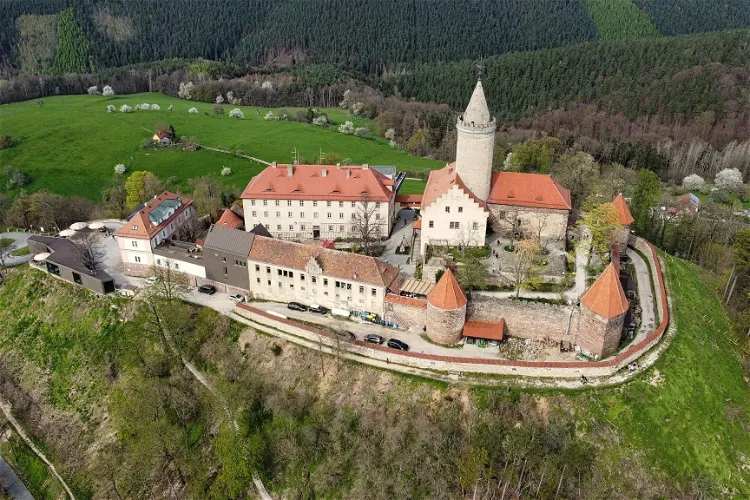
Museum Leuchtenburg
SeitenrodaLeuchtenburg is a castle situated in Seitenroda, Thuringia. This castle, known as the 'Queen of the Saale Valley', is a popular tourist destination. It offers a panoramic view of the Middle Saale Valley and the Thuringian Woodland from its location on a visible mountain cone with a height of 395 meters above sea level. The castle has a long and varied history, serving as a medieval administrative seat, a poorhouse, a madhouse, and a prison. It has been used for tourism since the late 19th century.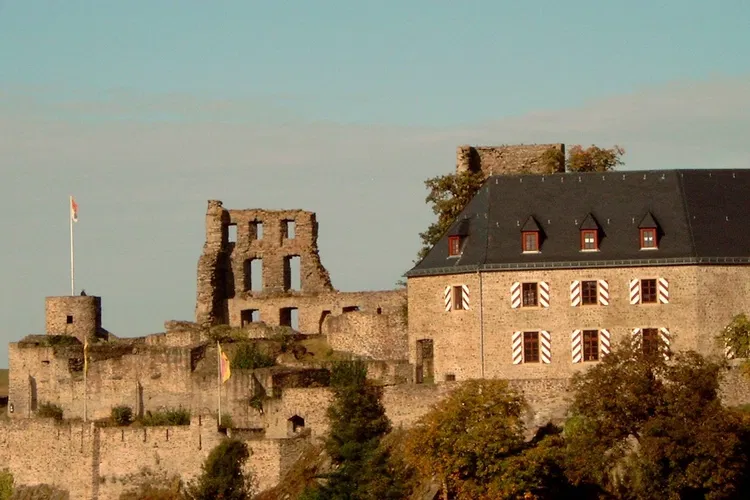
Kastellaun Castle
KastellaunKastellaun Castle, located in Kastellaun, Germany, is a medieval castle that dates back to the 13th century. The castle, which is now in ruins, was first mentioned in historical records in 1226. Despite its ruined state, the castle still stands as a testament to the architectural prowess of the medieval period and offers a glimpse into the region's rich history.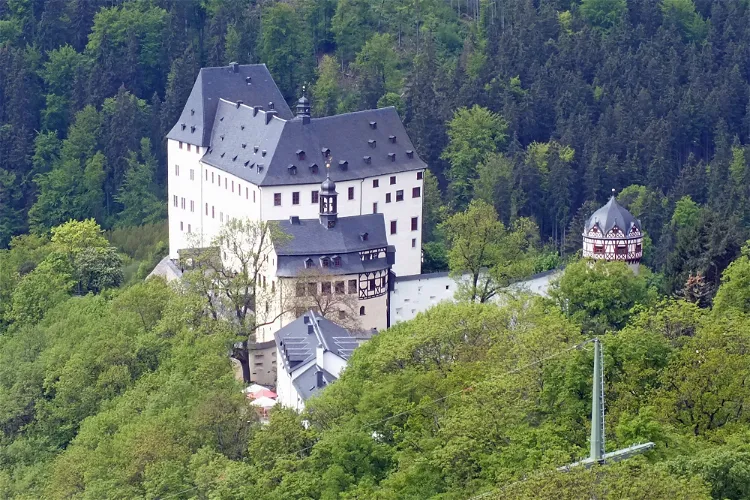
Burgk Castle
BurgkThe castle is now home to a museum that provides a detailed portrayal of the princely lifestyle of the past. Visitors can explore various exhibits that showcase the opulence and grandeur of the era, offering a unique insight into the history and culture of the time.